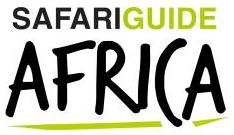
- South Africa
- Cape Winelands
- Garden Route
- Kwazulu Natal
- Ngorongoro Crater
- Beaches of Kenya
- Victoria Falls
- South Luangwa
- Okavango Delta
- Chobe National Park
- South Africa Hotels
- Mauritius Beach Hotels
- Kenya Beach Hotels
- Mozambique Beach Hotels
- Lake Malawi Hotels
- Let Us Help

Tipping Advice in South Africa
For many people traveling overseas, tipping can be somewhat confusing. We have created a tipping guide that will alleviate the confusion every time you reach for your wallet. Tipping is commonplace in South Africa: People working in the service industry in South Africa often rely heavily on tips to make ends meet. Often these people earn either minimum wage, or no wages at all, making tips a big part of their monthly income.
The below guide will show you who to tip and how much.
1: Restaurants
Tipping is standard practice in South Africa to tip your waiter or waitress 10 to 20 % of the total bill. Most waiters and waitresses earn a minimum wage, but they do rely heavily on their tips to make a living. Some restaurants will automatically add a standard service charge of 10% too big groups, but check this with the manager. If a standard service charge is charged, it is up to the patron to decide whether or not to add to the tip depending on service.
Barmen and women also rely heavily on tips. Tipping them works the same as with restaurants, where 10 to 20 % is of the total bill is acceptable.
Rangers and trackers more often than not play a big role in making your safari special and memorable: The trackers help find animals such as the Big 5, and it becomes apparent how useful their tracking skills are during a safari. Rangers don’t just keep you safe, but also share valuable and entertaining information with you. Tipping is not compulsory, but if you feel that the ranger did a good job, then it is recommended that you tip R200 to R300 per family (or couple) per day. Tips for trackers are usually R100 to R200 per family (or couple) per day.
Most lodges have tipping advice and guidelines, so do feel free to ask them more about this.
4: Airport Porters
It is standard practice to tip airport porters R3 to R5 per piece of luggage.
5: Petrol (Gas) Station Attendants
South Africa still offers the luxury (and much-needed employment) of petrol attendants. These petrol attendants fill up your vehicle, take the payment, and will clean your windscreen, check the oil, water and tire pressure. Petrol attendants also function as South Africa’s back- up GPS systems: If you get lost, or the GPS is not working, you can always stop at your nearest petrol station to get directions. The average tip can be anything from R2 and up.
6: Car Guards
Travelers can expect to find car guards just about anywhere you park. These guards will offer to watch your car and help you park in exchange for a tip of R2 and up. Do be aware however that the guards must wear a reflective vest (usually bright yellow or orange) to indicate that the city employs them, and not just begging.
7: Health and Beauty services
The standard tipping fee for a massage and beauty therapist is 10 to 20% of your total payment. The same applies to hair stylists. Do however remember to leave a small tip for the person who washed your hair: usually R10 to R15.
8: Tour Guides and drivers
The standard practice in South Africa is to tip the tour guide and coach driver at the end of your tour. If you are doing a group tour, then we recommend tipping anything from R20 to R50 per person. You may tip more if you are pleased with the service.
If you are taking a private tour, i.e., only one couple or a family, then we recommend you tip the driver (who will usually also be your guide) anything from R100 and up. Guests are welcome to tip more if they feel that the driver/guide made their trip enjoyable.
9: Accommodation
Each establishment has their in-house policy, and you are welcome to check with them, but usually, a standard tip of 10% of your total bill can be paid upon check- out. This will then be divided between the staff, including cleaners, waiters, porters, kitchen and garden staff and in some cases reception and management. If there is a specific staff member you would like to tip more, you are can either give it to them personally or leave it in a marked envelope at reception or with the concierge. If you wish to tip the porter directly, they would usually expect R10 to R20.
Below is a quick reference guide for when you are on the go (feel free to print it out and keep it in your wallet)
20 thoughts on “ Tipping Advice in South Africa ”
This blog is super helpful, especially for first-timers. Though tipping is completely voluntary in Africa, it’s highly suggested as it can be a huge help to the locals and people in the country who are earning a minimum wage. But since different countries have different perspectives in tipping, an informative post like this helps people know how much we can give as tips to people. I liked that it highlighted tipping in different industries/jobs too. Great work! This is a must share.
After minimum wage bill was passed, should tipping still continue in south Africa
The tipping culture in the travel related field in Africa has affected the overall wage where employers take into consideration tipping before setting out the minimum wage. I think tipping should be left at the discretion of the traveler and should they feel the services provided is worth the penny, then go ahead and leave some tip at their discretion.
It is called respect, to tip a cab driver, since it is a stressful occupation.
Thank you for sharing.
I feel this business of tipping should be stopped, you are paying for the service then why tip is a must? This culture is not good. Let it come from the heart if you feel you have some coin and wants to offer.
You might be wondering what the local tipping culture involves. First, tipping in Africa and especially in Kenya or Tanzania is not a compulsory affair and it is only done on the merit of a good service. It is simply an appreciation of the guides, drivers or game wardens involved in the Safari for a well-done job. It is not really expected of you to tip and you are not obliged to tip. However, if you are pleased with the people who served you, it is totally p to you to tip them or not.
While on safari you might be asking yourself how do you give appreciation to your guide or after service at your camp or lodge. It’s not compulsory though it’s appreciated when you that. Guideline on tipping for guides in Tanzania. 1) Safaris Guide $ 10-15 Per day per person. 2) Porters to your room $ 2-5 3) Waiters $ 3-5 per day
worth Reading It. Hope oneday after a Covid19 i will set my foot on this beautifull country. Thanks For Sharing This.
YOU NEED QUALITY VISITORS FOR YOUR: safariguideafrica.com ?
WE PROVIDE HIGH-QUALITY VISITORS WITH: – 100% safe for your site – real visitors with unique IPs. No bots, proxies, or datacenters – visitors from Search Engine (by keyword) – visitors from Social Media Sites (referrals) – visitors from any country you want (USA/UK/CA/EU…) – very low bounce rate – very long visit duration – multiple pages visited – tractable in google analytics – custom URL tracking provided – boost ranking in SERP, SEO, profit from CPM
CLAIM YOUR 24 HOURS FREE TEST HERE=> [email protected]
Thanks, Manie Lilley
One of the help ful article. Visiting Africa for first time is my dream after Covid 19 hope we make it and achieve what we had plan. Thank you for sharing such nice blog.
kind of kak. We don’t tip that much. 10% restaurant/bar and thats it really.
I plan to visit Africa and when I do I plan on tipping the folk who service me! It’s a priceless experience I will honor it and be generous to those who assist me!
Pingback: 7 things to know before visiting South Africa - My Pink Passport
Thank you for sharing, i think is a great idea to know more about tipping culture of a place prior visiting
I completely agree with the notion that tipping should be at the discretion of the traveler. It’s true that tipping cultures differ across countries and industries. While tipping is not mandatory, it certainly does make a significant difference in the lives of those who rely on it. This guide is a valuable resource for travelers, offering clarity on when and how much to tip across various services.
Hi – It was great for us and very useful – also some useful links for you
Tipping on a safari is optional, not mandatory. However, it is a very common practice and a way to show appreciation for good service from your guide, driver, and other staff.
In Kenya tipping is not mandatory, it all comes from you as a person and what you feel the services, that you were given are!! Normally and especially at restaurants, I always recommend anything between 10% of my total bill to the waiter and not below that, although this, we leave it, at the discretion of the client. If it is standard wise tipping in a restaurant, I would recommend 5-20$ depending on the group size and services offered.
Leave a Reply Cancel reply
Your email address will not be published.
Username or email address *
Password *
Remember me Log in
Lost your password?
This website uses cookies to ensure you get the best experience on our website. Learn more
- Australian Dollars
- British Pounds
- Namibian Dollars
- New Zealand Dollars
- South African Rands
- U.S. Dollars
Talk to an expert +44 203 405 6666 Lines open now
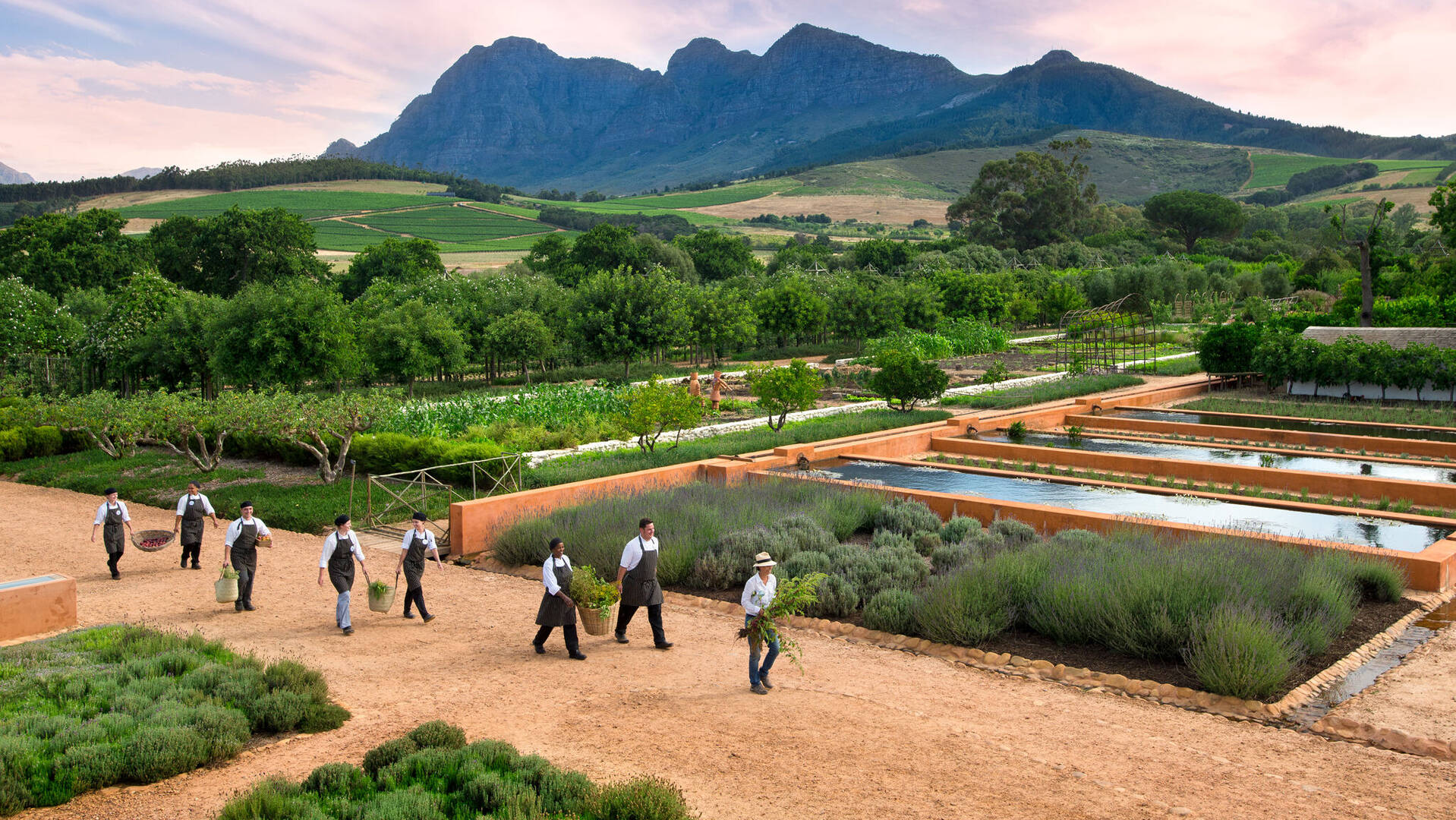
Tipping in South Africa
Tipping in south africa explained.

South Africa’s economy: issues around tipping
Who to tip when on holiday in south africa.
- Tipping safari guides If your holiday with us includes a safari lodge, then your safari guide will be one of the most important people in making your holiday a success. As such, many places suggest tipping him/her separately, to ensure that they get the tip they deserve.
- Tipping guides on day tours During your holiday you may take a day tour and your guide can be integral to your enjoyment. Thus we suggest tipping him/her appropriately to the level of knowledge they imparted and their overall involvement.
- Tipping the back-of-house team Many people work behind the scenes to help you make the most of your holiday, including the chefs, the kitchen team and the housekeeping staff. To cover all of these ‘back of house’ people, camps/hotels often have a general staff tip box – the proceeds of which are divided equally between these members of staff.
- Tipping the managers Camp managers are of course important, but should you tip them? In our opinion, this is a similar situation to that of a restaurant owner. Although they are clearly important, you wouldn’t normally tip them. Similarly, we wouldn’t usually recommend that you tip the camp/hotel manager. Of course, if the manager helped you with something outstanding or very extraordinary, you may want to make an exception to this rule.
When to tip
- After each activity
- At the end of each day
- At the end of your stay
How much to tip
- At the airport: Only use the baggage assistants in uniform (normally orange overalls). They have a fixed rate of ZAR10 per bag and a sign of US$2 fixed to their carts.
- On safari: You will usually be assigned a guide and a tracker. A good tip indication is an average of ZAR120–250 per person per day for the guide, and ZAR60–120 for the tracker. If you only participate in a half-day activity (morning or afternoon excursion) then we recommend half of the above sums to each of the tracker and guide. If you have a private guide for a full day then we would suggest a tip of ZAR200–300 per guest per day. Most safari lodges also have a general staff gratuity box (for waiters, chambermaids etc) and ZAR50–150 per guest per day is a suggested tip guideline.
- At your city or town hotel: Porters – generally around ZAR20 a bag. Doormen can be tipped about the same, if they perform a service such as sourcing a cab. ZAR20 is pretty handy as a general tip and is safe to fall back on if in doubt.
- Day tours: For a full-day tour, we suggest ZAR100 per person.
- Restaurants: A 10% tip is acceptable for good service – or more if you consider the service to have been exceptional.
- In bars: Tips are the exception rather than the norm, and even then, the loose change from your drink is generally acceptable.
- Filling stations: All filling stations (petrol garages) in South Africa have attendants who will fill your tank and wash your windscreen. A tip of about ZAR5 is welcomed.
- Car guards: Whenever you try to park in urban centres, car guards will assist you (not always competently) to park and then watch over your vehicle while you are away, with a view to deterring vehicle-related crime. Some belong to more formal security companies than others and where possible we recommend using these. A ‘donation’ of ZAR5 usually suffices.
- Note: Tips are not normally expected for transfers.
Tipping is a sensitive issue, but there is no need to feel awkward. It’s a normal part of a service industry in South Africa, as it is in many countries. Just remember that thoughtless tipping by relatively affluent visitors can have a big impact on the local economic and social balance – so please keep that in mind when you tip the staff during your holiday in South Africa.
Our top picks for holidays to south africa.
We'll always tailor-make your Town for you. Here are some of our favourites to inspire you.
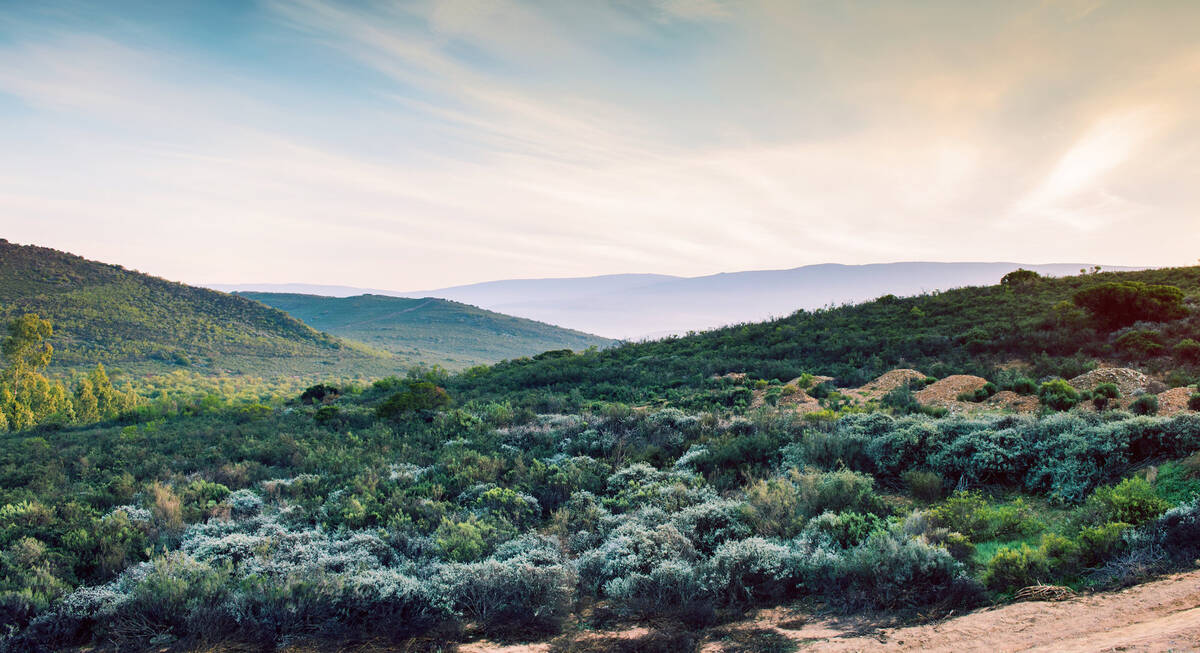
Cape Genet Self-drive Safari
20 days • 8 locations CAPE TOWN AIRPORT TO CAPE TOWN AIRPORT
Enjoy fine-dining in Cape Town, whale-watching in Hermanus, and a range of walking and water-based activities throughout De Hoop’s Nature Reserve, the Klein Karoo and Plettenberg. This relaxed self-driven safari concludes with stays in The Winelands and Namaqualand.
US$2,870 - US$3,790 per person
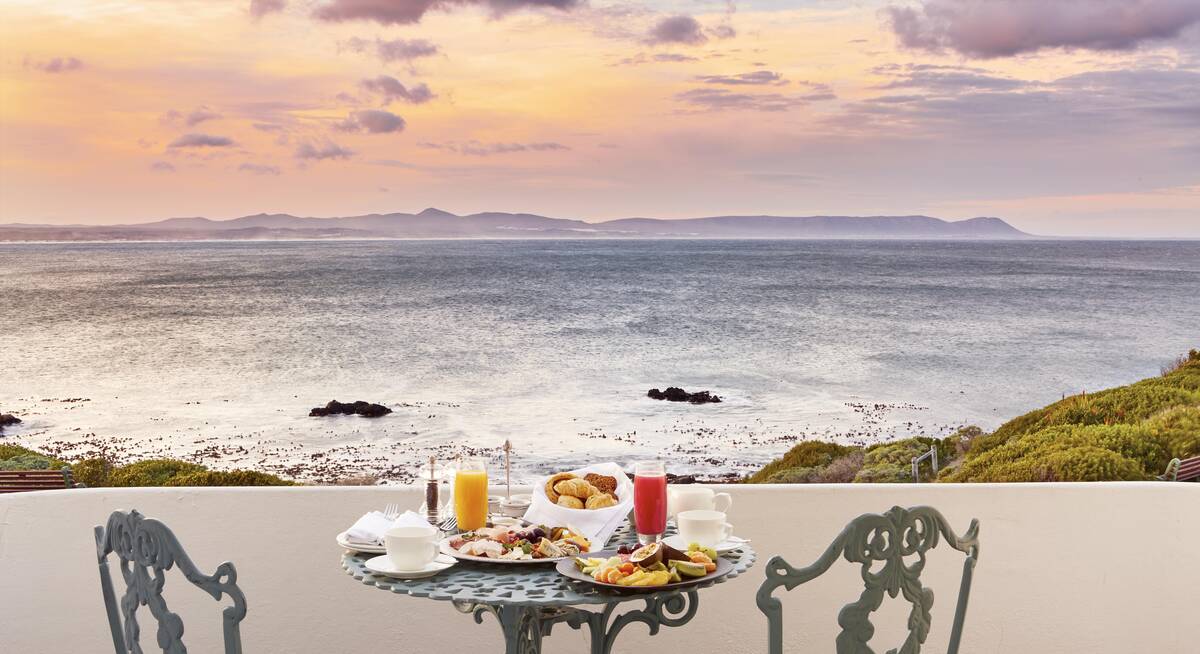
Cape Grysbok Self-drive Safari
Explore Cape Town, Hermanus, Franschhoek and Namaqualand, amongst other memorable destinations, during this leisurely self-driven safari. Fine dining, varied activities and impressively comfortable lodges, estates and country houses await.
US$3,790 - US$6,270 per person
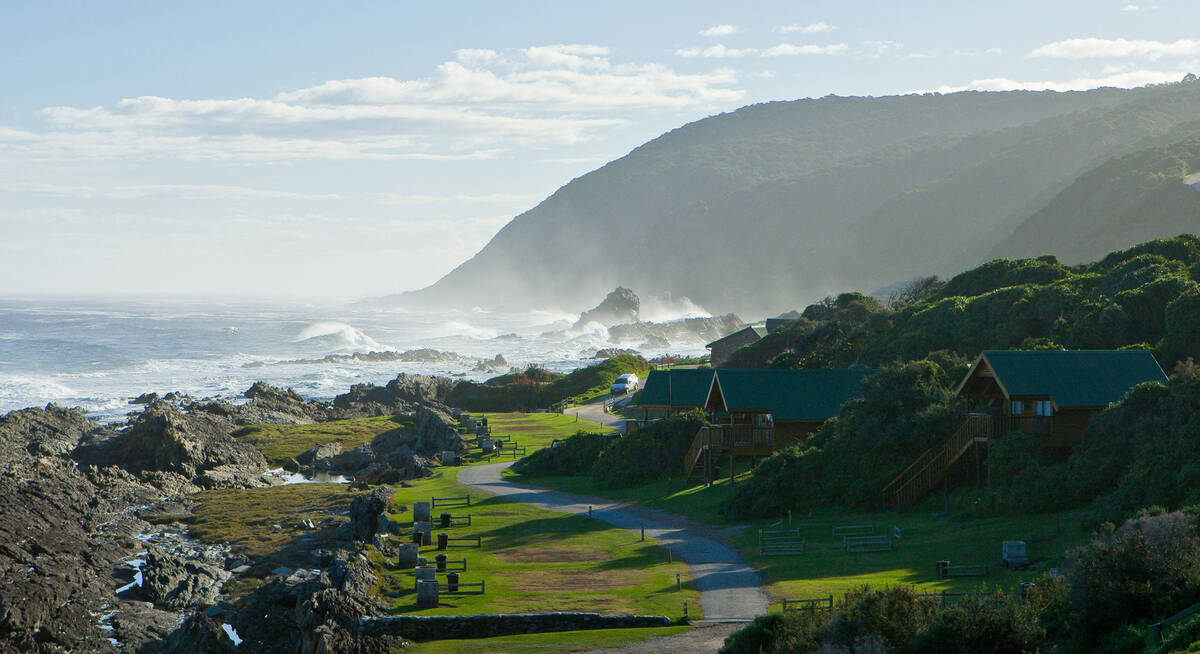
Bontebok Self-drive Safari
12 days • 5 locations CAPE TOWN AIRPORT TO PORT ELIZABETH AIRPORT
This varied and great-value self-drive trip visits Cape Town, the Winelands and diverse sections of the Garden Route, staying at great places with real local character. It’s ideal for active couples and families who want to explore the Cape’s stunning locations.
US$1,370 - US$1,680 per person
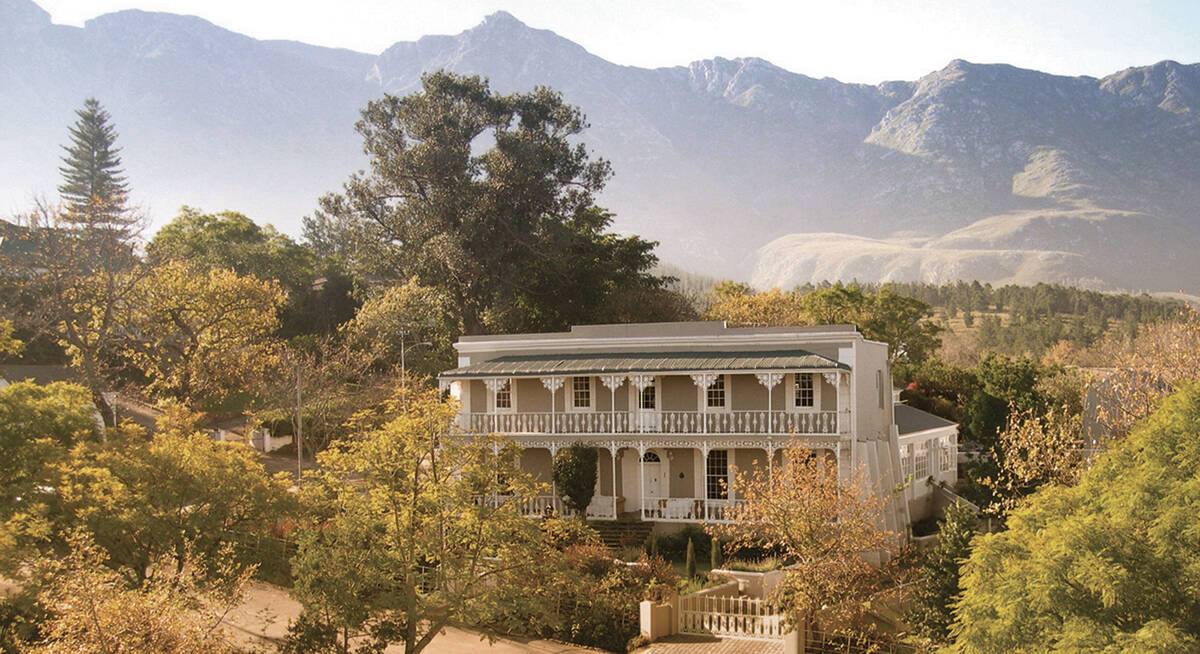
Waterbuck self-drive
12 days • 6 locations CAPE TOWN AIRPORT TO PORT ELIZABETH AIRPORT
A classic Cape and Garden Route self-drive taken at a leisurely pace and staying in charming boutique hotels. Great food and wine paired with spectacular scenery and an exciting array of activities.
US$2,350 - US$2,920 per person
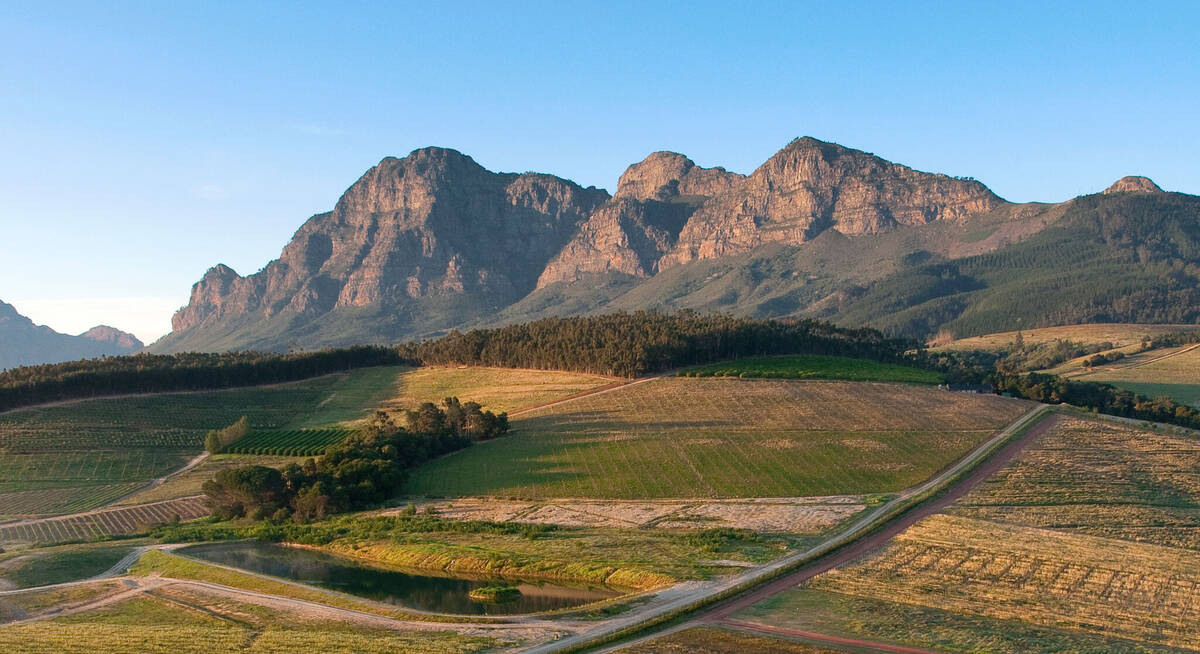
Cape Mountain Zebra Self-drive Safari
12 days • 4 locations CAPE TOWN AIRPORT TO CAPE TOWN AIRPORT
Fine dining, luxurious accommodation and a wide of range of leisurely activities make this a superbly comfortable self-driven safari. Visit the cosmopolitan Cape Town, tranquil coastal retreats, stylish wine farms and spectacularly peaceful nature reserves.
US$3,560 - US$6,610 per person
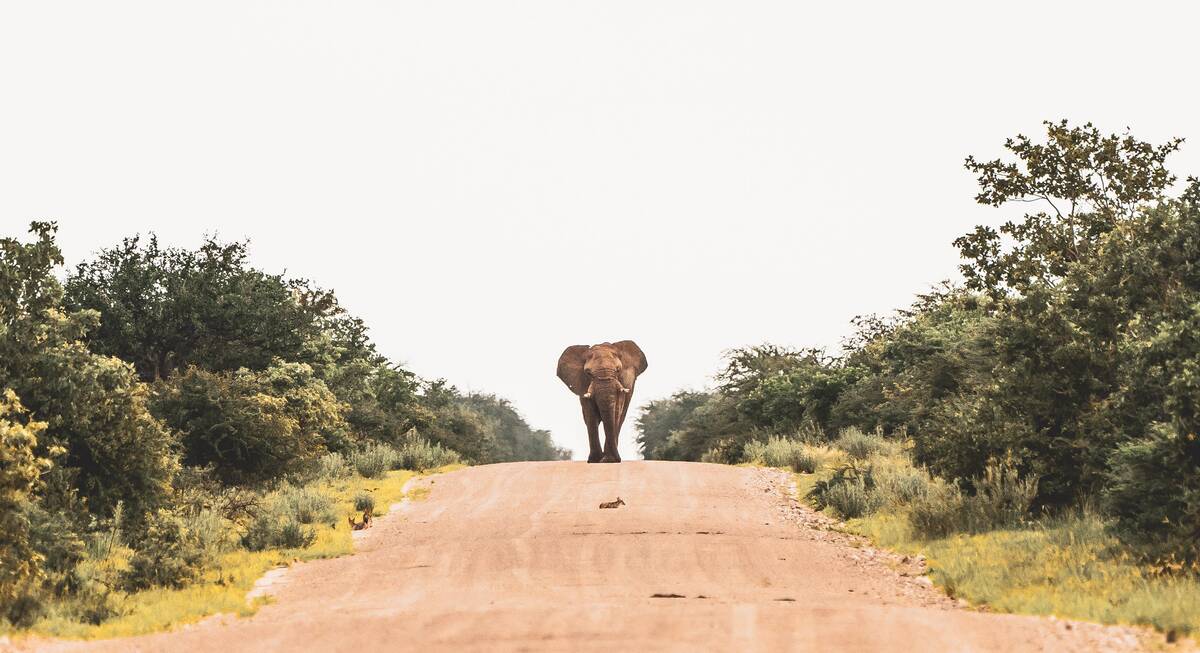
Black Wildebeest Self-drive Safari
19 days • 10 locations CAPE TOWN AIRPORT TO WINDHOEK AIRPORT
Journey from South Africa’s cosmopolitan Cape Town to central Namibia’s Okonjima Nature Reserve during this self-driven safari. The route passes through a stunning variety of landscapes, offering access to this beautiful continent’s rich diversity.
US$3,200 - US$3,680 per person
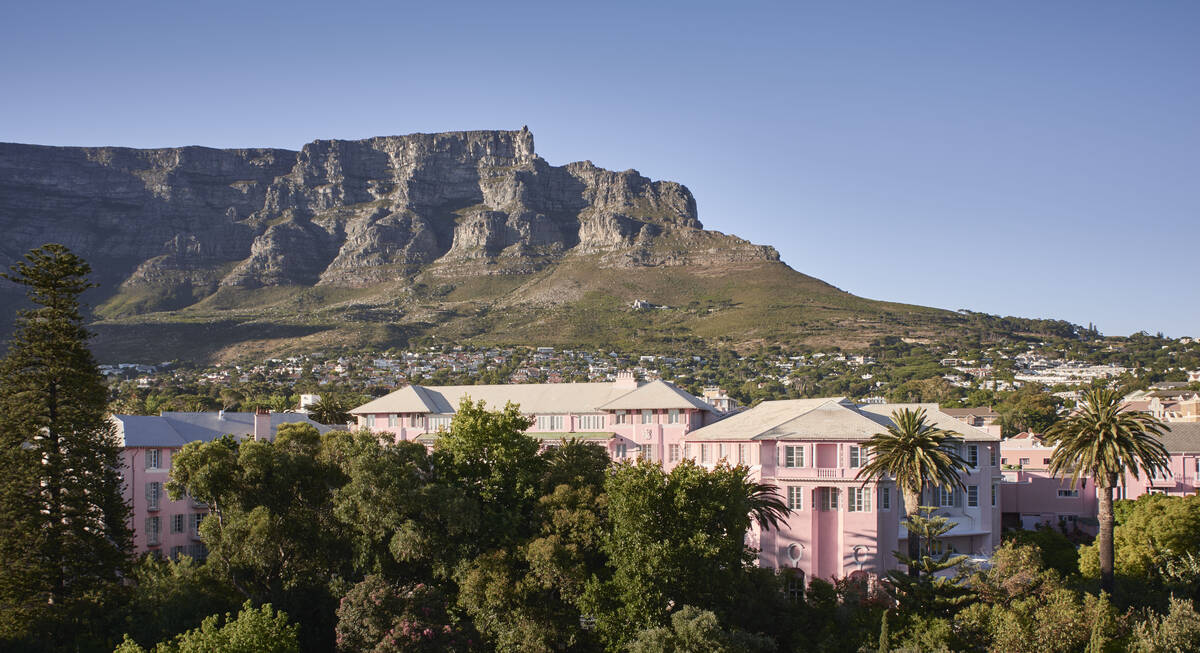
The Highlights of Africa
17 days • 7 locations CAPE TOWN AIRPORT TO KIGALI AIRPORT
An epic adventure taking in some of Africa’s most incredible sights and wildlife experiences, from Cape Town to the Okavango Delta, Victoria Falls, the Maasai Mara and an encounter with mountain gorillas.
US$14,330 - US$18,200 per person
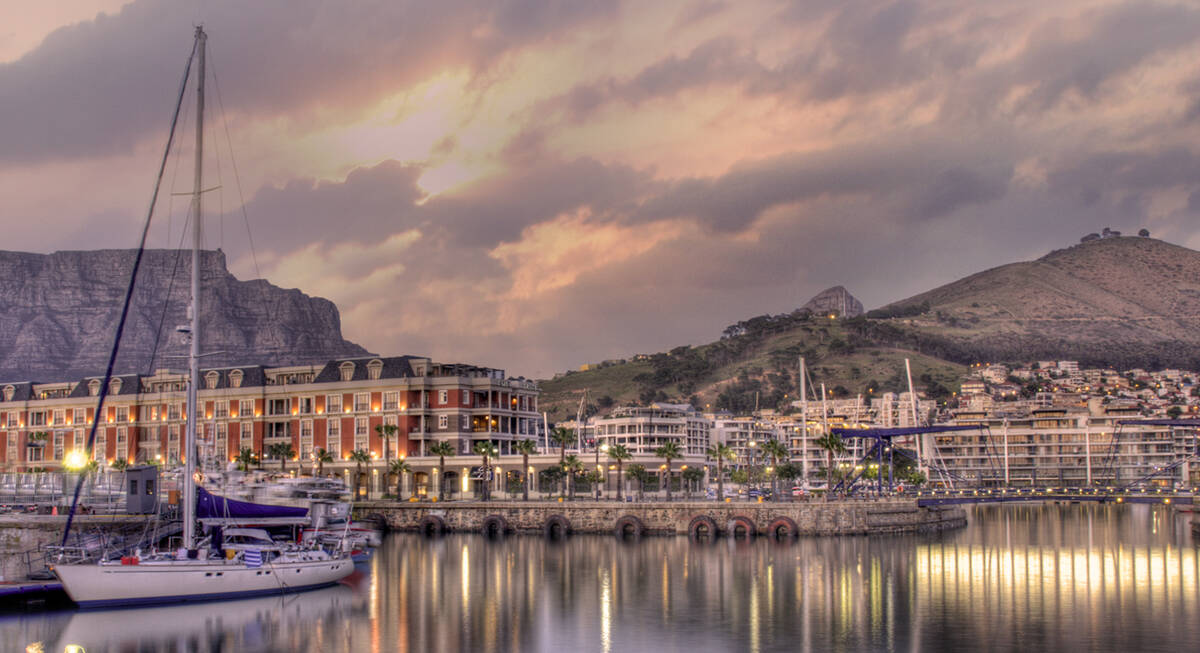
Leopard Safari
13 days • 4 locations VICTORIA FALLS AIRPORT TO CAPE TOWN AIRPORT
Victoria Falls, Botswana and Cape Town – a classic southern African itinerary combining luxury, wilderness, safari and culture. We can't think of a better way to spend two weeks.
US$9,240 - US$13,070 per person
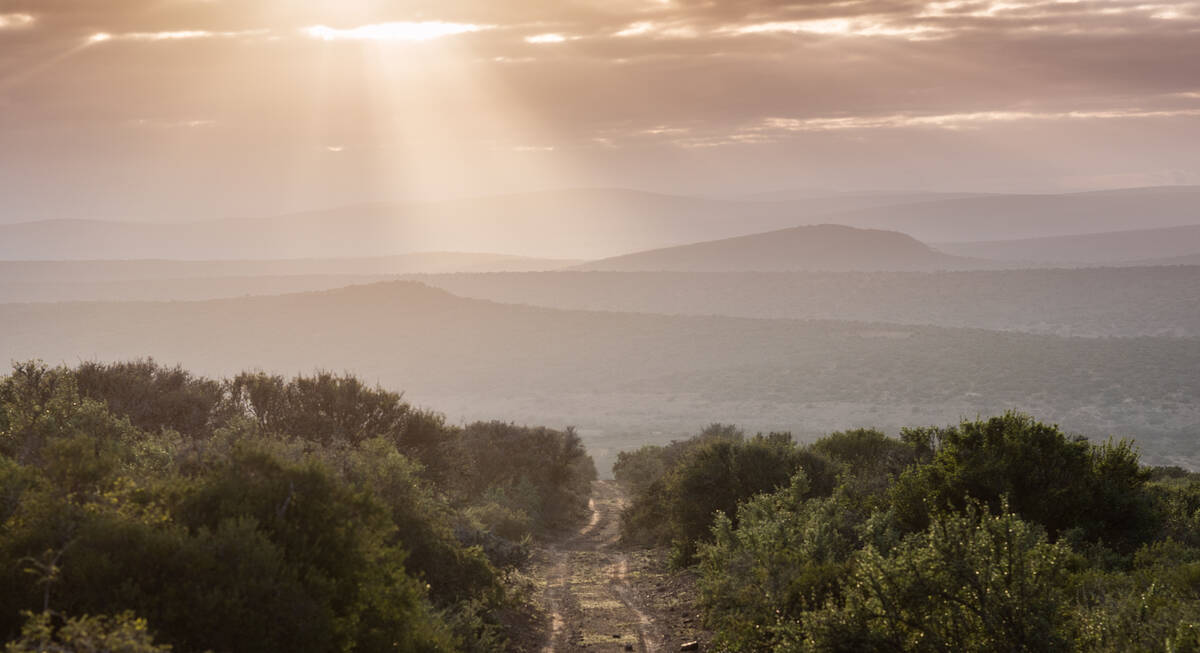
Kwandwe Self-drive Safari
3 days • 1 locations PORT ELIZABETH AIRPORT TO PORT ELIZABETH AIRPORT
An elegantly stylish lodge that is well suited to families, Kwandwe offers a range of safari activities and the chance to sight all of the "Big 5" during exploration of the Eastern Cape.
US$2,440 - US$4,030 per person
View all holidays in South Africa

Need inspiration?
Let our trip chooser narrow down the options for you
Login to Expert Africa
Sign in with password
Sign in with email link
New to Expert Africa? Create an account
Forgotten your details?
It's free & quick to set up
- Save your wish-list
- Send us an enquiry
- Pay online for your trip
- Subscribe to our newsletter
- Give us feedback on your trip
- Full site benefits of the site
Need some help? Talk to our team
STAY IN TOUCH

Things to Do
Accommodation, capetownmagazine.com, guide to tipping in south africa.
- All Contact Details
Unwrapping Cape Town with you
There's something exciting going on in Cape Town every week. Be the first to know what's new with our newsletter:
Car guards, petrol attendants, safari rangers and trackers, and other service industry workers
Travel introduces you to a whole new world of culture and history, and without a little background on the place you’re visiting it can be tough to know what’s expected of you as a guest. Tipping is one of those things that is different all over the world, and it can be awkward trying to figure out etiquette and local customs.
We asked some local experts to weigh in, and provide the official guide to tipping in South Africa.
SOME BROAD RULES FOR TIPPING South Africa has a tipping culture, and the general rule is we start at 10%. Many people who work in the service industry rely on these tips to make a living wage, so often tips are higher than 10%.
TO TIP OR NOT TO TIP? You’re not obliged to leave a tip if the service provider was unprofessional, rude, intoxicated or has provided inadequate service, says Kane William Pretorius, Etiquette Consultant at The South African School of Etiquette in Sandton, Johannesburg. “For example, if you did not receive what you were promised in an acceptable time frame and there was no preemptive attempt to salvage the situation, you do not need to leave a tip,'' he says.
Tip with cash, if you can, says Riandi Conradie, Founder of The South African Etiquette Academy. “Tipping by card is also appreciated, but the service staff member only receives it by the end of the week or month.”

CAR GUARDS There are different kinds of car guards, so it can be tough to figure out what’s going on. Here’s the lowdown.
Some car guards are self-appointed and informal, and are trying to eke out a living; they usually wear a yellow or orange vest. They often also help with packing of cars and finding parking spaces, and this is worth a tip. Others work at the open parking lots of shopping centres as mandated guards, and have a uniform and code of conduct. Some shopping-centre guards pay a fee for their spot, and rely on tips to cover that cost and only then make a living.
In the Cape Town City Bowl, the City of Cape Town employs parking attendants to collect payment for parking. They’re easy to spot with their bright vests and parking meters. They are not usually tipped.
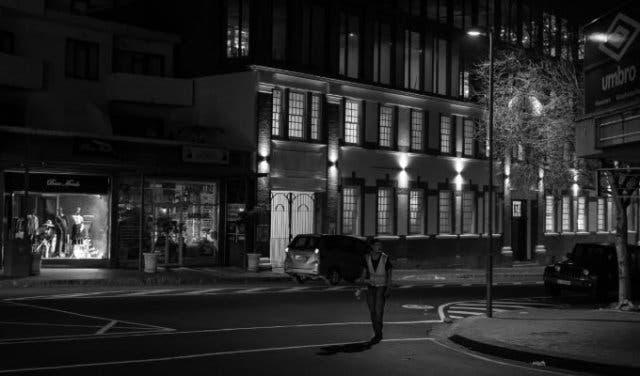
Love Cape Town? Here’s how you can live and work in South Africa on a visa .
Add this iconic spot to your Cape Town bucket list: Try djembe drumming and African food at Mama Africa .
Experience Africa through food, song and dance at Gold Restaurant . Check out this guide to navigating Table Mountain during peak season .
Find out all there is to know about the local phenomenon of car guards in Cape Town .
If you want to learn more about how to take control of your money while visiting the country, have a look at our traveller’s guide to money and currency in South Africa .
Discover what we've been doing with #CapeTownMagNew over the years: find hundreds of exciting new restaurants and experiences .
Use our events sectio n for an up-to-date overview of what’s happening in the city, ‘burbs and dorpies. Join our newsletter and get quick access on the go by adding us to your mobile home screen for the ultimate guide to discoveries in Cape Town . Follow and like us on Twitter ❤ Facebook ❤ LinkedIn ❤ Instagram ❤ Pinterest for updates.
- Show Large Map
- Events Today
Join us in creating a DNA-changing impact on the province
Reach people in the mood to discover. We're in it for you.
Rooftop social, Eid market, tattoo convention and more
Ramen bar, pizza & wine eatery and 28+ more
Biltong-spiced lamb chops, melktert ice cream & live music
CapeTownMagazine.com in the Media
From braids to dreads, balayage to blonde, kids salons...
The street you think you know...
Eat like a king in slops
You’ll fall in love with the picture of Lady Dia
Cape Town now has its own ring; the Cape Town Ring
10 reasons to buy an apartment in Sea Point right
Hot tip: go get a koesister before 12pm. They sell
The quaint café with a rich history
The Taj is luxurious and is built on history
Best Burger Spots in Cape Town
Tip off the boss: ultimate year-end party options
Rockin’ October: Here’s What To Get Up To In T
Get more of MOLO
Every month something you do not want to miss.
- In the Media
- Work with us
- Submit events
- Advertising
- Privacy Policy
- Terms of use
© 2005 - 2024 Cape Town Magazine PTY Ltd. All rights strictly reserved [2005 - 2024].
Curious to make exciting discoveries in Cape Town every day? "LIKE" us for a daily hidden gem. ▼

How to Tip in Africa on Safari
For many people on safari in Africa, tipping can be confusing. Gratuity is one of those things that is different all over the world, and it can be awkward trying to figure out etiquette and local customs – especially in a continent as diverse as Africa.
With over 3,000 different ethnic groups speaking more than 2,000 different languages, traveling in Africa introduces you to a whole new world of culture and history. Without a bit of research into the specific country you’re visiting, it can be tough to figure out what is expected of you as a guest. There are plenty of things you need to know before you go on an overland tour in Africa – especially when it comes to tipping. With this in mind, we’ve created a complete guide to tipping in Africa to help you better plan and budget for your safari.
If you need more budgeting tips for your trip to Africa, read our guide on How to budget for a saf ari in Africa . And, if you want to do more than give an amazing tip, check out our guide on how to travel responsibly in Africa to have a positive impact while exploring this exciting continent.
Tipping etiquette in Africa
Tourism is a key driver of the African economy accounting for 8.1% of the GDP with many people in the industry relying quite heavily on gratuity. Tipping is firmly entrenched in the tourism industry in Africa and you shouldn’t have to feel awkward about it at all. Gratuity contributes a substantial amount toward ensuring that those working behind the scenes to make your travels a success earn a livable wage. But you should never feel obliged to leave a tip if the service you received was unprofessional or inadequate.
Who do you tip while on safari and how to determine how much to tip in Africa
Who to tip in Africa is not very different from other continents. Generally speaking, you should tip back of house staff such as cooks, porters, and cleaners, as well as the front of house staff such as guides, spotters or trackers, waiters and waitresses, and transfer drivers. 10% gratuity is a great starting place when determining how much to tip on safari.
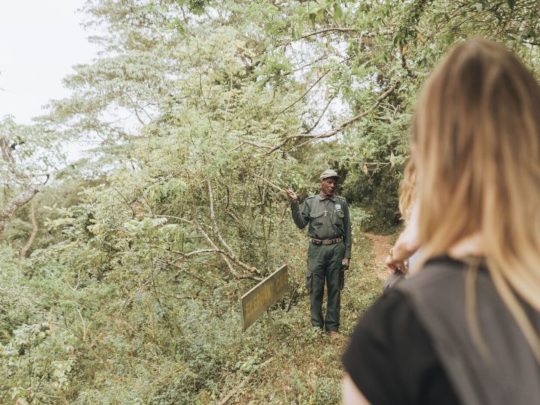
The tipping jar or kitty while on a group tour
How to give tips is another ticky and often awkward experience. From leaving money in your room when you check out to handing cash to individuals and adding on something extra to your credit card on your final bill – every camp or lodge has its system that you have to navigate.
While these are easy to do, it can still be uncomfortable for some. Thankfully, most camps and lodges will have a tipping jar or kitty which eliminates any awkwardness and does not allow staff to know how much specific guests tipped them. These tipping jars are either separated for guides, back of house, and front of house or accumulated together and shared out at the end of the trip when everyone has departed.
Tipping on Safari considerations:
Guide to Tipping at safari lodges
At every safari lodge, there are many people hard at work behind the scenes to make your stay as comfortable as possible. Most lodges have tipping advice and guidelines, so feel free to ask the reception or manager about their tipping policy. Generally speaking, there is often a communal tip ‘jar’ for this and a reasonable rate to go on is USD10 to 20 per person per day.
Tipping safari guides
Your safari guide will be your go-to person while on a game drive in Africa and are essential to the success of your safari. They’re responsible for keeping you safe in the wild, point out the often near-hidden animals that you traveled all this way to see and are chock full of interesting information about the wildlife and region. It is customary to leave a USD10 tip per person per day for your safari guide and is usually given at the end of your safari.
About Tipping safari trackers
Safari trackers accompany rangers on game drives and are the eyes and the ears of your safari. In other words, all those epic wildlife photos you’ve captured are largely thanks to these guys and tipping is always a great way to show appreciation. Tips for trackers are usually USD 5 per person per day.
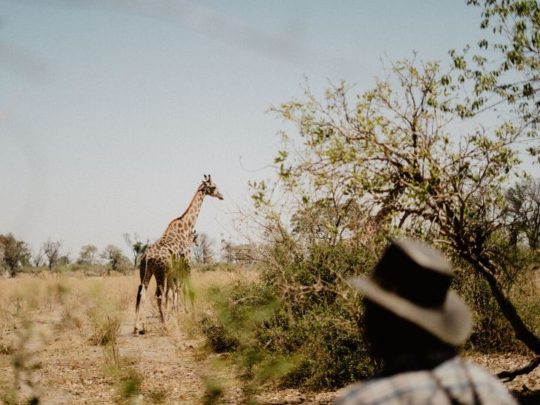
Tipping in restaurants and bars
Tipping in restaurants and bars is considered the norm in Africa and waiters still rely on gratuity to make a livable income. For waiters, a 10-15% tip on the bill total is considered normal. Some restaurants may automatically add on a service charge for larger tables so it’s important to check your bill before adding on a tip. For bartenders, it is recommended to tip at least 10% of the bill for large orders. If you’re paying per drink then 1 to 2 USD should be sufficient.
Details on Tipping at the airport and hotels in Africa
At hotels and airports, 1 USD per item of luggage is an appropriate tip for porter service, but consider tipping more for awkward or really heavy loads. If you wish to tip the hotel maids, around 3-5 USD is a suitable amount.
Tipping drivers and transfers
In Africa you’ll generally find two types of taxis; kombis and metered taxis. It’s not usually customary to tip both types of taxi drivers. But a small gratuity of +- 1 USD for longer rides is always welcomed, especially if your final destination is way out of town. Uber is also common in major cities and tips are not customary in this instance.
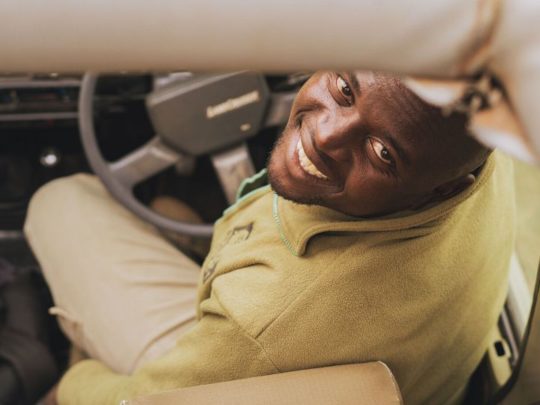
About Tipping at petrol stations
Petrol (gas) attendants are pretty unique to Africa. These unsung heroes fill up your vehicle, clean your windscreen, check the oil, water and tire pressure. While a tip is not compulsory, a small tip is welcomed, preferably in local currency (e.g. ZAR5 in South Africa)
Guide to Tipping car guards
Car guards are another fairly unique African feature. Some of these guards are hired by the city and others are others may be doing it of their own accord and their tips may be their sole income. When it comes to tipping car guards, a small tip in local currency should be sufficient and it is recommended to only tip when you return to your car.
Tipping Guidelines by Country in Africa:
About tipping on safari in tanzania.
Tipping is customary on a safari in Tanzania. For those working in the service industry, including waiters, guides and trackers, tips can form a significant part of their income.
Currency to tip in: It’s most common to tip in cash, both Tanzanian shillings and US dollars are accepted.
How much to tip in Tanzania: We recommend tipping +- 8–10 USD per guest per day for a group guide, about 5–10 USD per guest per day for a safari chef, +- 2 USD per guest per day for the general staff and +- 3USD per city transfer.
Tipping Kilimanjaro: Tipping while climbing Kilimanjaro is usually done as a group rather than per person. The recommended tipping amount for Kilimanjaro is as follows:
- Per guide – US$20-25 per day
- Per assistant guide – US$15-20 per day
- Per cook – US$15 per day
- Per porter – US$10 per day
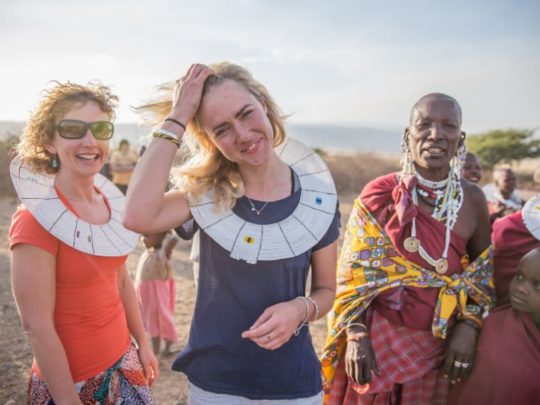
Tipping Kenya
Tipping in restaurants and bars isn’t customary everywhere in Kenya, but in Nairobi and on the coast a gratuity culture has been well established. Still, the choice of how much to tip is all yours.
Currency to tip in: Tipping in local currency (Kenyan Shillings) is preferred as the currency exchange is expensive.
How much to tip in Kenya: For Kenya safari and tour guides at camps and lodges, a tip of 10 to 15USD per person per day is recommended, and tip half that amount for half-day activities. Porters at hotels usually tipped 50-100 shillings (+- 1 USD). And, hotel maids are accustomed to receiving 200-500 shillings (+- 1 to 3 USD) for a whole week of service.
Guide to Tipping in Uganda
Tipping in Uganda is firmly entrenched in the tourism and service industry and helps boost local income. Generally speaking, workers in the industry earn very low wages, and gratuity forms a big part in helping them provide their family’s necessities.
Currency to tip in: The local currency is the Ugandan shilling (USh), though USD is widely accepted. In remote areas, it’s recommended to tip in local currency as foreign exchange can be difficult and costly.
How much to tip in Uganda: In restaurants, it is common to tip USh1000 to USh1500 in Uganda. Tips for safari rangers and guides in national parks are usually between USh5000 to USh10,000.
Tipping on a gorilla trek: It is not obligatory to tip on your gorilla trek in Uganda, but leaving a tip is usually a sign of appreciation of good service given to you by your guide. For gorilla trekking guides, we recommend tipping between 5-10 USD per person per day at the end of your tour.
Tipping on Safari in Botswana
Tipping in Botswana is always voluntary and should depend on the quality of service received. However, gratuity can be a significant part of the income of those in service industries, including waiters, guides and trackers.
Currency to tip in: We recommend you tip in Botswana Pula (BWP) in remote areas and while on tour however US dollars are widely accepted at lodges.
How much to tip in Botswana: It is customary to tip guides/drivers 10 USD per person per day, camp or lodge staff 10USD per guest per day (usually placed in a communal box) and transfer drivers and porters 3USD.
Tipping your mokoro poler in the Delta: It’s common to tip mokoro polers and 50 Pula (5USD) is considered the norm.
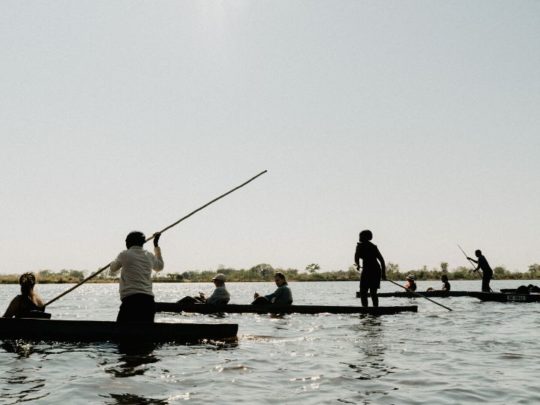
About Tipping in South Africa
Tipping is widely practiced and expected in South Africa, both by locals and tourists. However, you should never feel obliged to tip if the service you received is poor.
Currency to tip in: Tips should be done in Rands and cash is preferred. Tipping by card is also appreciated, but the service staff member usually only receives it by the end of the week or month.
How much to tip in South Africa: As a rule of thumb, a 10% tip is a good starting point in restaurants and bars. On safari, it is customary to tip guides between R100 to R200 per day depending on the size of your group.
Tipping in Cape Town: Tipping in Cape Town follows the same process as the rest of South Africa. 10% of the bill is usually standard, however, if the service has been outstanding then higher percentages are always appreciated.
Tipping on Safari in Zimbabwe
Tipping in Zimbabwe is not compulsory but always appreciated, and the amount generally depends on your satisfaction with the service provided.
Currency to tip in: As of June 2019 the US dollar, South African rand and all other foreign currencies are no longer considered legal tender throughout Zimbabwe. The only accepted currency is the Zimbabwe Dollar.
How much to tip in Zimbabwe: It’s customary to tip waiters in restaurants 10 to 15% of the bill amount and to give car guards who watch over your car in supermarket or shopping mall car parks US$1.
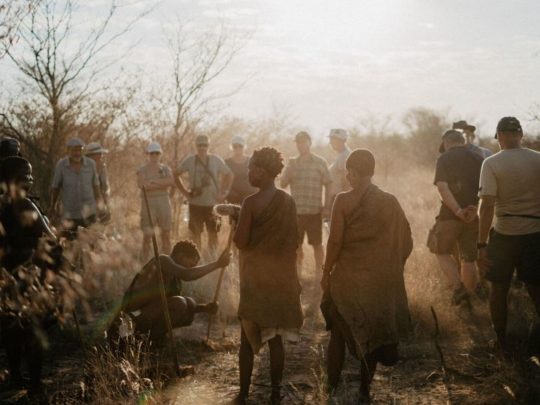
Guide to Tipping on Safari in Zambia
Tipping is not as expected in Zambia as it is in most parts of the world. However, we encourage rewarding great service with a gratuity as tips make a significant positive impact on the salary of those working in the service industry.
Currency to tip in: The preferred currency to tip in is USD, and cash is generally the most accepted method.
How much to tip in Zambia: As a rough guideline, we suggest tipping 10USD per person per day for your ranger and tracker and 25USD to be divided amongst the rest of the lodge staff. When it comes to restaurants, some establishments will add a service charge for your bill; if not, 10% is standard.
Tipping on Safari in Namibia
Tipping is not compulsory in Nambia but recommended. Most lodges will suggest tipping amounts for guides, trackers and housekeeping staff which is usually an amount per day. It’s customary to leave a tip at the end of your stay, especially for guides and trackers.
Currency to tip in: The currency of Namibia is the Namibia Dollar. This is tied to the South African Rand and 1 ZAR = 1 N$ and both are used freely in Namibia.
How much to tip in Namibia: As a rule of thumb, a specialist safari guide is tipped from N$100 per guest per day. It is also a nice gesture to tip general camp/lodge staff; here we recommend about N$30 per guest per day. Like South Africa, Namibia also has car guards and petrol attendants, we recommend tipping them between 2 to 3 Namibian Dollars.

About Jodi Lucas

- First-hand experience
- Advice and guidance
- We're passionate travelers
Enquire Now
- Hidden Tour Title Hidden
- Hidden Tour Length Hidden
- Hidden Tour URL Hidden
- Hidden Tour Price Hidden
- Hidden Tour Style Hidden
- Hidden Compared Tours Hidden URLs
- Your name * First Last
- Your email address *
- Hidden Alternative Email (deprecated)
- The tour you're intested in
- The tours you're interested in Please do not edit these tour names so we can assist you with your choices.
Please enter your number below.
- When would you like to travel? Jan 2024 Feb 2024 Mar 2024 Apr 2024 May 2024 Jun 2024 July 2024 Aug 2024 Sep 2024 Oct 2024 Nov 2024 Dec 2024 Jan 2025 Feb 2025 Mar 2025 Apr 2025 May 2025 May 2025 Jun 2025 Jul 2025 Aug 2025 Sep 2025 Oct 2025 Nov 2025 Dec 2025
- 26 - 40 Days
- 15 - 25 Days
- 8 - 14 Days
- How many travelers? * Select... 1 2 3 4 5 6 7 8 9 10
- 12 - 17 years
- 18 - 39 years
- 0 - 11 years
- 0 - 7 years
- 8 - 9 years
- 10 - 11 years
- South Africa
- What travel style in Africa would you prefer? * Not Sure Accommodated Tour Camping Adventure Small Group Safari
- Your question or query Feel free to ask us anything! We can advise on breathtaking scenery, colourful cultures, local cuisine and of course, amazing wildlife!
- By submitting your enquiry you agree to our terms of service .
- Name This field is for validation purposes and should be left unchanged.
FEATURED POSTS
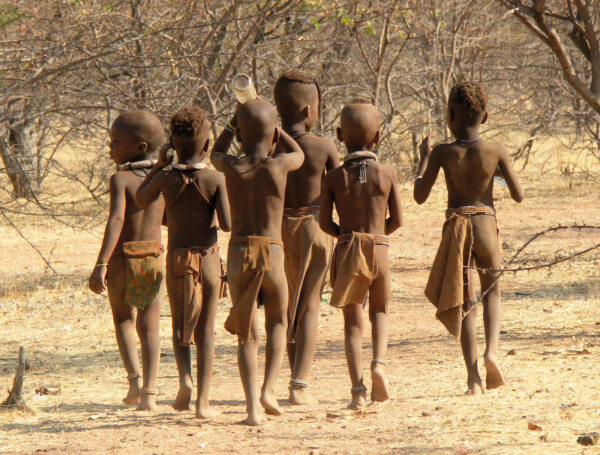
The San Bushmen
The San Bushmen were traditionally hunter-gatherers obtaining there food from wild plants and animals. These days, however, this tradition has mostly been replaced with farming or pastoralist...
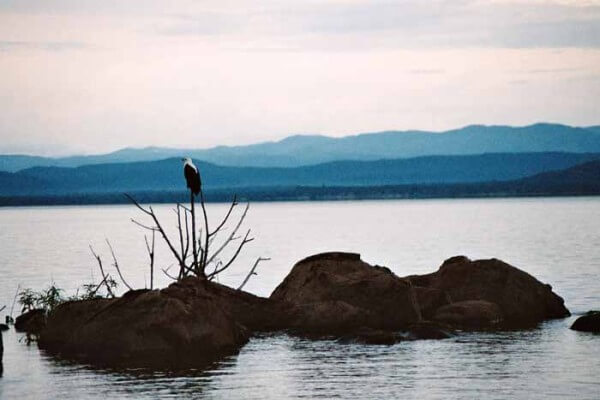
The African Fish Eagle
Embarking on a safari adventure in Africa offers a kaleidoscope of wildlife experiences, but few are as awe-inspiring as witnessing the African Fish Eagle in its natural habitat. Known for its...
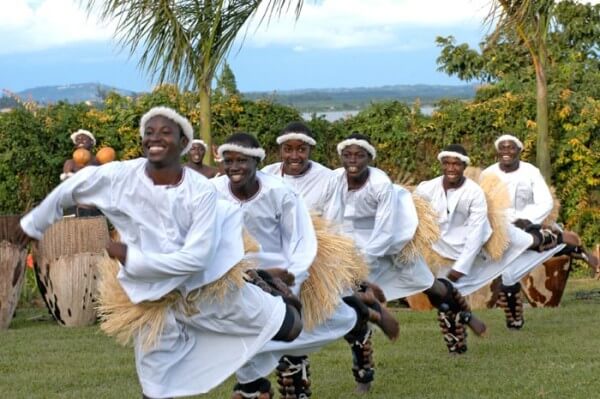
The Culture of Uganda
Uganda, the "Pearl of Africa," shimmers with a captivating culture as rich and diverse as its landscapes. Embark on a journey to the heart of this East African nation, where ancient customs and...
Blog categories
- Accommodation
- Adventure Activities
- Africa Blog
- Destinations
- Only in Africa
- Travel Articles
- Victoria Falls
- Videos showing life on the road
Submit a Comment Cancel reply
Your email address will not be published. Required fields are marked *
Submit Comment
Previous Article
Next article.
- +256 392 176327
- +256 702 805580
- [email protected]
Etiquette of Tipping on Safari: A Comprehensive Guide

- Travel Guides
Why Offer Gratuity to Safari Guides: Exploring Tipping Etiquette on African Safaris
Tipping is deeply ingrained in the fabric of service staff on an African safari, but it’s crucial to understand that it is not obligatory. Rather, it serves as a way to express gratitude and acknowledge exceptional service. The amount you choose to tip can vary. Let’s clarify what constitutes “exceptional service” and “standard service” to provide specific guidance on appropriate tip amounts.
Exceptional service on an African safari can encompass various scenarios, such as guides demonstrating exceptional knowledge, going the extra mile to track elusive wildlife, or providing personalized attention that exceeds expectations. On the other hand, standard service involves competent assistance and satisfactory customer care without notable standout features. Consider these definitions when determining your tip amount.
Making Informed Tipping Decisions
To assist travelers in making informed tipping decisions, let’s explore examples of situations where tipping would be appropriate and situations where it may not be expected:
Appropriate Tipping Situations:
- Your guide successfully spots rare wildlife, shares fascinating insights, and ensures an unforgettable safari experience.
- The camp staff consistently delivers exceptional service, attending to your needs promptly and creating a welcoming atmosphere.
Situations Where Tipping May Not be Expected:
- You encounter a guide who lacks enthusiasm, fails to provide adequate information, or displays unprofessional behavior.
- The service at a camp or lodge is consistently subpar, with staff members demonstrating indifference or neglect.
- Considering Cultural Norms and Customs
It’s important to note that tipping customs can vary across African countries. To ensure cultural sensitivity and align with local practices, familiarize yourself with tipping norms specific to your destination. In some countries, gratuities may be expected, while in others, a service charge may already be included. Researching and respecting these cultural nuances will help you determine the appropriateness and amount of tipping.
By incorporating these improvements, we provide travelers with clearer guidelines for appropriate tip amounts, examples to inform tipping decisions, and awareness of cultural norms to ensure respectful interactions during their African safari experience.
What Travelers & Staff Say About Tipping
Deciding whether to tip while on safari can be perplexing for travelers. To provide insight into this matter, let’s examine it from two perspectives:
The Traveler’s Viewpoint
For visitors hailing from the United States, tipping is customary. In contrast, individuals from Europe or Australia might need clarification due to differing norms. Some propose abolishing individual tipping and instead incorporating it into the overall trip cost. However, this notion faces practical challenges as African safaris involve multiple components. Furthermore, the question arises whether exceptional staff at one location should suffer due to a mediocre team at another.
Certain travelers oppose tipping, believing that employee wages should cover their livelihoods and lodge proprietors should provide better compensation. This argument is valid, but safari costs encompass more than just wages; they include various fixed expenses such as conservation fees, maintenance, and utilities. Many lodges take measures to minimize costs and ensure fair wages, considering workers’ challenging circumstances.
It’s worth noting that accommodation, sustenance, clothing, and medical care for staff living on-site are significant expenses for lodge owners. Unlike those with conventional commutes, these workers cannot easily return home, making tips crucial to their financial stability.
While many visitors expect to tip and budget accordingly, remember that gratuities are discretionary and reflect the quality of service you deem deserving.
The Staff’s Perspective
While some might assume staff desire tips for extra income, the reality is more complex. Tipping acknowledges various aspects beyond routine service, including:
- Separation from loved ones: Staff often spend weeks away from families due to the remote nature of safari lodges.
- Travel expenses: Staff residing in distant areas spend significant sums on travel, and guests’ tips help reunite families.
- Supporting extended family: Many African workers provide for unemployed relatives; tips aid in vital family assistance.
- Prolonged work hours: Staff dedicate substantial hours to ensure guests’ comfort, often performing numerous tasks behind the scenes.
- Thoughtful efforts: Staff often go above and beyond, remembering names and catering to preferences, enhancing guest experiences.
Safari personnel ensure guests’ safety, comfort, and well-being under challenging conditions. While visitors enjoy leisure, staff contend with various challenges, often unapparent to guests.
Balancing Tipping Costs and Respect on Safari
Certain guests might view safaris as expensive endeavors, questioning the necessity of tips. However, from the staff’s perspective, observing affluent travelers with expensive equipment raises queries about hesitations toward relatively modest tips. Guests’ willingness to spend on lavish items while skimping gratuities may be perceived as incongruent.
Whom to Tip on Safari
Typically, tips are extended to non-professional staff who lack formal tertiary education. Professionals like spa therapists and guides, usually holding qualifications, are exceptions.
Typically Excluded from Tipping:
- Lodge or camp managers
- Bush-plane Pilots
- Airport desk staff
- Sales assistants in safari shops
- Medical or evacuation crews
- Lodge or tour owners
Typically Included in Tipping:
- Back-of-house staff: cleaners, cooks, gardeners, maintenance workers, guards, anti-poaching units
- Front-of-house staff: guides, spotters, trackers, waiters, waitresses, spa therapists, transfer drivers
Methods of Tipping Staff on Safari
Tipping customs vary among lodges, introducing complexity. Common methods include:
- Communal Tip Box: Depositing cash into a locked box shared among staff.
- Manager Handoff: Giving cash directly to the manager upon departure, specifying recipients or leaving it at their discretion.
- Direct to Staff: Handing cash individually, signaling specific tipping intentions.
- Room Placement: Leaving cash in the room is not recommended due to potential misunderstandings.
- Credit Card Addition: Possible in some lodges, allowing adding tips to bills.
How Much You Should Tip on African Safari
Tipping practices often mirror visitors’ cultural norms. Americans and Canadians, known for their generosity, generally offer more substantial tips, while Europeans typically fall within a moderate range. Travelers from South America and the Far East might have different expectations due to varying customs. The suggested tipping ranges provided serve as middle-ground benchmarks, allowing room for individual variations that might even double these guidelines.
Tipping transactions usually involve local currencies or widely accepted USD. GBP and EUR are less commonly used. Carrying smaller denominations is advisable to minimize conversion losses when dealing with unfamiliar currencies.
Although sizable tips may appear magnanimous, excessive tipping can lead to unintended consequences. Overly generous gratuities may unintentionally undermine mutual respect and potentially perpetuate financial imbalances. Striking the right balance in tipping practices is vital to maintaining harmonious host-guest relationships.
Safari Guide Gratuities
Safari guides play a pivotal role in shaping the success of your journey, underscoring the significance of their contributions and expertise. Accordingly, allocating a more substantial gratuity is appropriate.
Suggested guidelines typically suggest offering around USD 10 per guest per day as a token of your appreciation for their guidance. It’s worth considering potential modifications to this amount, particularly when accounting for your group size. By adhering to these recommendations, you express gratitude for their pivotal role while ensuring fair acknowledgment of their efforts.
Appreciating Lodge Staff
Lodges commonly offer a structured approach to acknowledging their staff through tip boxes, ensuring fairness in distribution. A recommended range for tipping is typically between USD 5 and USD 10 per guest per day.
In situations where staff members have gone above and beyond to enhance your experience , providing extra individual tips in addition to the communal staff box can be an excellent way to show your recognition. This approach fosters a balanced and considerate gesture of appreciation towards the dedicated individuals who contribute to your stay.
Tipping Chimps & Gorilla Trekking Teams
Recognizing your trekking team’s efforts through tipping is a significant gesture when embarking on a chimpanzee or gorilla trekking adventure . Trip documents usually outline specific guidelines for this purpose. Here’s how you can show your appreciation:
Trekking Guides: Your trekking guide plays a pivotal role in ensuring a successful journey. A considerate tip of around $20 per person is customary to acknowledge their guidance and expertise.
Rangers: In most trekking scenarios, you’ll be accompanied by two rangers, enhancing safety and enhancing your experience, especially when encountering primate families. A gratuity of about $10 per person for each ranger is an appropriate way to show gratitude.
Porters: If you’ve opted to hire porters to assist with carrying equipment and supplies, their fees are generally around $20 per trek . Since you’re compensating them directly for their services, additional tipping is not obligatory.
Transfer driver: For transfer drivers, discretionary tips at around USD 10 per day for the group and acknowledge friendliness and assistance.
By adhering to these tipping practices, you’re recognizing your trekking team’s efforts and contributing to positive relationships and mutual respect during your journey.
Fostering Respectful Relationships
Avoid over-tipping to preserve local respect and balanced interactions. Excessive generosity may distort social dynamics and discourage mutual respect.
Final Reminders
The tipping on African safari guidelines presented serve as valuable references to navigate the intricacies of safari tipping. Whenever uncertainties arise, lodge managers stand ready to provide assistance and clarity.
Safari tipping embodies a delicate balance shaped by cultural norms and personal encounters. Skillfully navigating these customs enhances meaningful exchanges, fostering respect between guests and staff. Your thoughtful approach to tipping enriches the overall safari experience for all parties involved.

Nkuringo Safari Experts

African safari specialists
Planning an East African safari package can be a complex task, especially for first-time travelers. However, you don't have to worry about the hassle if you choose an trustworthy company. Take advantage of our expertise to navigate the local logistics and plan an unforgettable Uganda, Rwanda, Kenya or Tanzania safari.
Related stories

7 Reasons To Visit Uganda in 2024

What is a Game Drive on African Safaris?

12 Most Beautiful Places in Africa You Must Visit

101 Africa Safari Quotes to Inspire The Wanderlust in You

How much does an African safari cost?

Tree Climbing Lions of Ishasha, Uganda

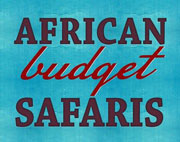
- Client Reviews
- Safari Blog
- Send an Inquiry
- Map of Africa
- Contact Details
- African Safari Cost
- Travel Insurance
- You are here
- The Budget Safari Blog
- Tipping on Safari: The Best…

Tipping on Safari: The Best African Safari Tipping Guide on Who & How to Tip
Posted by Andrew Hofmeyr on August 23 2023 in Safari Tips & Travel Advice Enquire Now!
Navigating the intricacies of tipping on safari is an essential aspect of ensuring an enjoyable and gratifying experience for both travelers and the remarkable individuals who make these journeys possible. Safari tipping etiquette varies across cultures and destinations, and understanding how to express your appreciation in a manner that aligns with local customs and acknowledges the dedication of safari staff can greatly enhance your African safari adventure. This safari tipping guide offers comprehensive insights into the art of tipping on safari, providing you with practical advice to navigate this delicate yet meaningful aspect of your journey.

Tipping on Safari in Africa, What is the norm?
In Africa, tipping is the norm. In fact, tipping often contributes a significant portion of income to those working in the service industry. This blog hopes to present an even picture that looks at both sides of the tipping equation. That said, the golden rule should always be that tipping rewards excellent service and care that you receive during your Africa safari tour. You should never feel obliged to tip for poor service.

A Country-by-Country Breakdown of What Money is Accepted Where in Africa
The great thing about booking a safari tour in advance is that many of your large expenses like hotel accommodation, and transfers are paid for upfront. In addition to this, larger establishments will accept credit or debit cards, especially in major cities or tourism hot spots like Arusha, Cape Town, Zanzibar, and Victoria Falls.
However, having a small amount of money in small denominations of local currency will ensure a hassle-free and smooth tipping experience. Wherever you go, tipping should be done in small denominations of local currency which is good for people who do not have access to foreign exchange, as well as tourists who do not want to travel around with large amounts of cash.
While US dollars are often acceptable and viewed as universal, there are regional currency differences between East African countries like Kenya, and Tanzania, as well as Zimbabwe, and their southern counterparts, Botswana, South Africa, and Namibia.

Tipping on Safari in East African Countries
In East Africa, the US dollar is widely accepted. However, even here, local currency in smaller denominations is preferred by porters and service staff. This is because exchanging foreign currency may not be easy for some people working with smaller amounts, and will incur exchange fees. To get around this, we advise changing a small amount of money into the local currency and asking for it in small denominations.
East Africa Currency & US$ Value*
- Tanzanian & Zanzibar: Tanzania Shillings (TZS). US$ 1 = TZS 2.5
- Kenya: Kenyan Shilling (KES). US$ 1 = KES 144.5
- Rwanda: Rwandan Franc (RWF). US$ 1 = RWF 1.2
- Uganda: Ugandan Shilling (UGX). US$ 1 = UGX 3.7
*Exchange rates were accurate at the time of publishing on xe.com.
For larger tips, such as the tips for your tour guides and background staff tip jars, etc. US$ or local currency are both completely acceptable. When using US dollars, it is worth noting that you should bring those printed post-2008, and which are not old or torn, as these can be problematic. Furthermore, having access to smaller denominations, in an easily reachable place, for day-to-day expenses, means that you will not have to flash your cash by pulling out large wads of notes to pay for a beer, or provide a US$ 1 tip!

Tipping on Safari in South Africa & Southern African Countries
Southern Africa is largely governed by the bloc's largest economy, South Africa. The value of the Eswatini Emalangeni, Lesotho Maloti, and Namibian Dollar are all pegged to the fortunes of the Rand (ZAR). In these countries, as well as parts of Mozambique, South African Rands (ZAR) are acceptable as tips.
Both Zimbabwe and Zambia favour the US dollar. While Zimbabwe is a special case because of internal turmoil, US dollars, and South African Rands are widely accepted and are legal tender. In Zambia, the preferred currency for tipping is the US dollar which is easily exchanged for Kwacha.
Botswana has perhaps the most stable currency in southern Africa, and when visiting Botswana, the Botswana Pula is the preferred currency.
Southern Africa Currency & US$ Exchange Value*
- South Africa: South African Rands (ZAR). US$ 1 = ZAR 18.8
- Botswana: Botswana Pula (BWP). US$ 1 = BWP 13.5
- Namibia: Namibian Dollars (NAD). US$ 1 = NAD 18.8
- Zambia: Zambian Kwacha (ZMK). US$ 1 = ZMK 19.4
- Zimbabwe: Zimbabwean Dollar (ZWD). US$ 1 = ZWD 361

In Zimbabwe and Zambia, out of necessity, locals are always up to date with current conversion rates and are happy to receive US dollars.
In all southern African countries, tipping is the norm. As in East Africa, it is good practice to carry small denominations of US$, and/or small denominations of local currency. When taking part in an all-inclusive safari package, cash will be used for markets, the occasional local restaurant, curios, and tipping, which means that you do not need to carry large amounts of cash. When visiting South Africa , cash in ZAR is always available from ATMs and can be easily accessed when needed.

A Note About Currency & Exchange Rates
Exchange rates are important when on safari, as favourable exchange rates mean excellent value against weaker currencies. A good way to get an idea of the value of the local currency is to visit a local grocery store and check the price of milk, bread, and soft drinks. This will give you a fair idea of the local currency value that you can check against exchange rates (see the latest ones at xe.com). Working with the exchange rate allows your budget to stretch a lot further, making both you and your suppliers happy.

Who Should You Be Tipping on Safari?
Typically, gratuities are extended to staff members who might not hold 'professional' designations in the traditional sense, implying that they haven't necessarily undergone extensive higher education to secure specific roles. There are, however, specific exemptions, such as spa therapists or guides, who generally possess formal qualifications.
When on safari in Africa, the following professions are NOT usually tipped: lodge owners, managers at camps, lodges, hotels, or restaurants, pilots or cabin crew when flying, desk staff at airports, sales assistants in shops or tour centres, medical staff like paramedics, nurses, doctors, or evacuation crews.
The people who benefit the most from tips, and the ones who it is customary to tip as they are the invisible workers who take care of you are back house staff like cooks, gardeners, cleaners, and guards, as well as the front of house staff like guides and trackers, waiters, drivers, and spa therapists.
These people are specific to safari lodges and the safari lodge economies. Outside of these, in South Africa for example, there are petrol attendants and car guards, waiters and waitresses, as well as contracted tour guides. It is always good to go back to basics, good service should be rewarded, but you should never feel obligated to tip.

How to Go About Tipping on Safari in Africa
Navigating tipping practices during a safari can be confusing as there is no standardised approach (hence this easy African safari tipping guide).
Each camp or lodge operates on its own tipping system, which requires a bit of manoeuvring. For clarification, you can always approach the manager of the lodge who will be more than happy to advise you on their specific tipping guidelines. Generally, however, the following methods are commonly employed:
The Communal Tip Box
Usually situated at a central point (like a tip jar in a restaurant), which is convenient and unobtrusive, guests can simply place their tip into a securely locked box. Occasionally, distinct boxes are designated for front- and back-of-house staff, trackers, and guides. The manager is responsible for tallying the tips and distributing them equitably amongst the staff. The benefit of the Tip Box strategy is that eliminates awkwardness that can result from handing over money from person to person, as well as maintaining privacy for guests.

Direct to Manager
Managers are the captains of the safari ship. In some cases, handing tips to them on departure effectively takes the who and how questions out of your hands and gives the responsibility to the manager. Some guests will specify for who and why the tip has been given, while others leave it to the discretion of the manager. This is an acceptable, and common practice.
Direct to Staff Tipping
Direct tipping poses pros and cons. On the one hand, if you have received outstanding service from an individual and want the personal gratification of rewarding this service personally, then this is the way to go. On the other hand, it opens the gate for selective tipping where other staff who do not have the opportunity for one-on-one contact, may miss out. In addition to this, it also exposes the amount of money that comes from the guest. It may be that it is better to balance your strategy by doing both, tipping general staff and then giving a special bonus if you feel it is warranted. Either way, this should only be done when you leave, and try to be discreet.

Leaving Cash on the Bed When You Leave
DO NOT LEAVE CASH ON THE BED WHEN YOU LEAVE. While this may seem discreet and like a nice surprise for staff, safari staff, when finding cash will likely assume that it has been forgotten and radio the driver or guide to return. Honesty is a key pillar in remote locations, and staff are trained to hand over any items left in rooms to the lodge manager.
Credit or Debit Card Tips
While the cash-less approach is ideal, it is a very limited option as very few lodges have credit card facilities due to the often exorbitant surcharges. If your lodge does have credit card facilities, communicate directly with the manager, and make sure the gratuity amount is clearly stated on the receipt. If you are short of cash for a generous tip, this can be a good option.

When Should You Be Tipping on Safari?
To keep things simple, the basic rule is to tip at the end of your meal, lodge stay, or game drive. For example, if you are staying for three nights at a single lodge, that includes multiple game drives with the same guide, tip when you depart for your next destination. If your accommodation outsources your activity, then tip at the conclusion of the experience. The same applies to your restaurant experiences, if it is in-house, tip at the end, if it is a once-off, then add the gratuity to the bill. The best-case scenario is to provide a single tip at the culmination of your stay at each lodge, camp, or hotel.
Your safari guide will not anticipate a gratuity after every individual activity or even at the end of each day. Adopting such a practice might inadvertently place pressure on a guide to tailor their performance to the guest offering the tip, potentially disrupting the harmonious relationship between the guide and all guests. Furthermore, it could create an uncomfortable situation for your fellow guests if you were consistently offering tips while they chose not to.

How Much Should You Be Tipping on Safari?
There are many factors that influence how much to tip on an African safari. The level of service experienced, your individual financial constraints, your personal philosophy on gratuities, as well as the dynamics of your group, and safari package. The guiding principle remains to contribute as generously as feasible when the occasion arises, but be cognizant of the fact that there is both too much and too little. A trained guide or ranger, for example, should always receive more than a cleaner because their skills and training should be rewarded. If porters were to get larger tips than rangers, then porting would be incentivized over conservation. Aim to be both generous and fair.
Regardless of the amount you decide upon, there's no need to express apologies for it. Simply offer the tip in the manner you prefer and express your gratitude sincerely. The staff members always warmly receive gestures of appreciation, acknowledgement, and thankfulness. Now, what is the appropriate tip for a Kenya safari? How much should you consider tipping on a safari in Tanzania? What's the suitable amount for a safari butler?

Safari Tipping Guide: 6 Tips For Tipping on a Budget Safari
Here are six easy-to-follow steps to use as a safari tipping guide when planning your African budget safari:
Check your itinerary thoroughly and anticipate when, where, and who you may need to tip. For example, the transfer from the hotel to the lodge, a tip for the waitress at dinner, or the services of the safari guide and tracker. Then, decide on the basic amount you feel comfortable giving, and make note of these small amounts throughout your trip.
Once you have anticipated all the tipping throughout your trip, organize your expenditure into sections; for example airport and hotel day 1, safari lodge days 2 & 3, Zanzibar bungalow days 4 & 5 etc. Then, for each leg of your journey, label envelopes that will hold the assigned tips. Doing this will streamline the process and make it easy to manage the tips throughout your safari adventure.
When getting currency, either local or US$, be sure to get small denominations, eg. US$ 1, US$ 5, US$ 10, & US$ 20 dollar bills. Small denominations are easier to manage, separate, and hand over, and will not require establishments to scramble for change. Using US$ 50 or US$ 100 notes, in addition to the inconvenience, can make you a target for criminals. In many countries, while US$ can be used to pay for things, change will be given in the local currency. Carrying small denominations of US$ will save you leaving Botswana for example, with a surplus of Pula that you can’t use.

In most East and southern African countries, you will need to carry cash with you. South Africa is the only country where you can reliably withdraw cash from ATMs on a regular basis, which removes the need to forward plan for tipping on safari. For all other African safari destinations, it's advisable to carry cash with you. When using ATMs in South Africa, be safety conscious and follow a few safety rules like never accepting help from strangers and avoid distractions, it often helps to have a friend with you at the ATM, and if you are a solo traveller and feel unsafe, seek help from a bank employee.
Carrying cash does come with risk. When staying at a hotel or lodge, use the in-room safe, or enquire with the manager of the establishment about using their safe room for both money and passports. Most safaris will go off without any problems, and this should be seen as a precaution and not a necessity.
In Africa, the US Dollar is king. Most African safari destinations, outside of South Africa, readily accept the US Dollar, particularly in regions like Zimbabwe and Victoria Falls. Opting for the US Dollar streamlines transactions, especially when traversing borders or engaging in a multi-destination safari, thus avoiding the complexities of flipping between local currencies.

Embarking on an African safari means meeting a host of individuals who contribute to the success of your journey. The dedicated lodge staff ensuring your comfort, the diligent cleaners maintaining a pristine environment, the skilled drivers navigating the wilderness with expertise, and the insightful trackers and guides who steer you through the wild African bush, all contribute to an unforgettable African adventure. Tipping, in the context of this remarkable ensemble, is a simple gesture that can have a profound effect on their lives.
There you have it, our complete African safari tipping guide. If you have any questions or want to start planning your African safari adventure today - contact African Budget Safaris .
If you liked this post, these trips cover similar ground…
- Big 5 Cape Town Safari to Aquila Game Reserve - Budget Day Tour
- 8 Day Kenya Family Safari to Masai Mara Lodge & More
- 7 Day Fly-In Botswana Safari - Delta & Chobe Tented Camps
- 11 Day Budget Kenya & Tanzania Family Safari
- 4 Day Budget Kruger Safari to Klaserie Reserve Lodge
About the Author
Andrew hofmeyr naturalist, artist & writer.

Places Mentioned in this Post
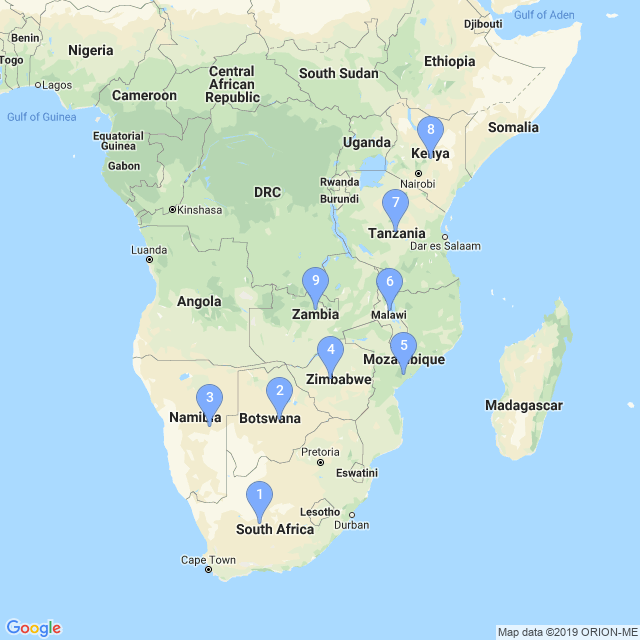
1. South Africa
2. Botswana
4. Zimbabwe
5. Mozambique
7. Tanzania
Similar & Related Blog Posts
Below you’ll find further reading and articles related or similar to this post.
How to Make the Most of your African Safari
Landia Davies | June 23 2015

When To Go Where On Safari in Africa: Best Times to Visit
Briony Chisholm | October 21 2016

How Much Does an African Safari Cost? Your Best Budget Africa Safari Guide
Luke Hardiman | August 28 2023
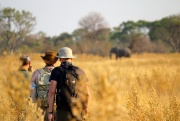
Your first African safari adventure & what to expect in Kruger National Park
Briony Chisholm | June 04 2022

Complete Safari Packing List: Easy Guide 2 What to Pack for African Safaris
Landia Davies | February 01 2022

Size Up Africa Overland Safaris - Small vs Big
Landia Davies | July 30 2013
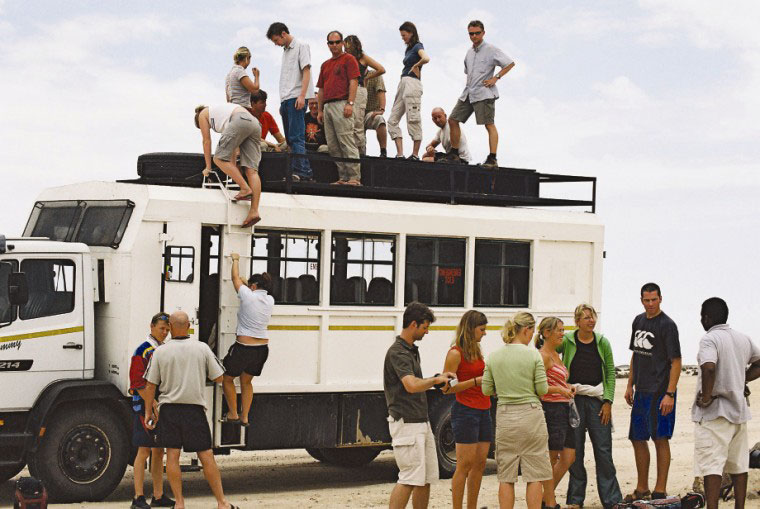
Southern Africa Highlights: A Bucket List of Travel Treasures
Briony Chisholm | June 02 2015

Types of Safari Vehicles, Overland Trucks & More: 14 Best Ways to Explore Africa
Briony Chisholm | September 16 2022

1 of the best safari companies for epic Kenya Safaris with African Budget Safaris
Landia Davies | January 24 2022

8 Reasons it’s Best to Book a Safari with African Travel Agents
Landia Davies | December 08 2021

Going Green on Safari - 6 Tips for Eco-Travel in Africa
Landia Davies | April 18 2016

Children on Safari: Yes or No?
Briony Chisholm | December 30 2016

Private Group?
A private, tailor-made safari is within your reach. Experience all of your bucket-list safari related items on a budget now.

- South Africa
- The Ultimate Safari Planning Guide
- Safari Packing List
- Safari Luggage
- Safari Budget Guide
- Safari Reading List
- First-Timer’s Tips
- A Typical Day on Safari
Africa , Botswana , Kenya , South Africa
A guide to tipping on safari.
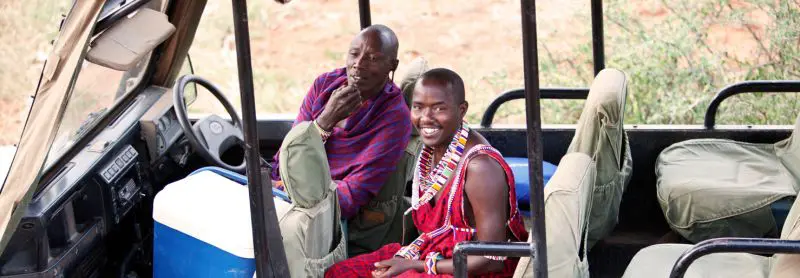
Going on a safari is an adventure of a lifetime, and also an opportunity to experience a new culture. One aspect of this cultural experience that can sometimes be confusing is the etiquette around tipping. Safari guides, camp staff, and other service providers all appreciate being tipped, but how much should you tip on safari, and when is it appropriate to do so?
First and foremost, it’s important to understand that tipping is a common practice in many countries, including those in Africa. In fact, in many cases, staff salaries in the safari industry are relatively low, and tips can make up a significant portion of their income. It’s therefore generally expected that you will tip your guides and trackers as well as transfer drivers and camp staff at the end of your stay.
The amount you should tip can of course vary depending on the level of service you receive, who you are tipping and how much you can afford.
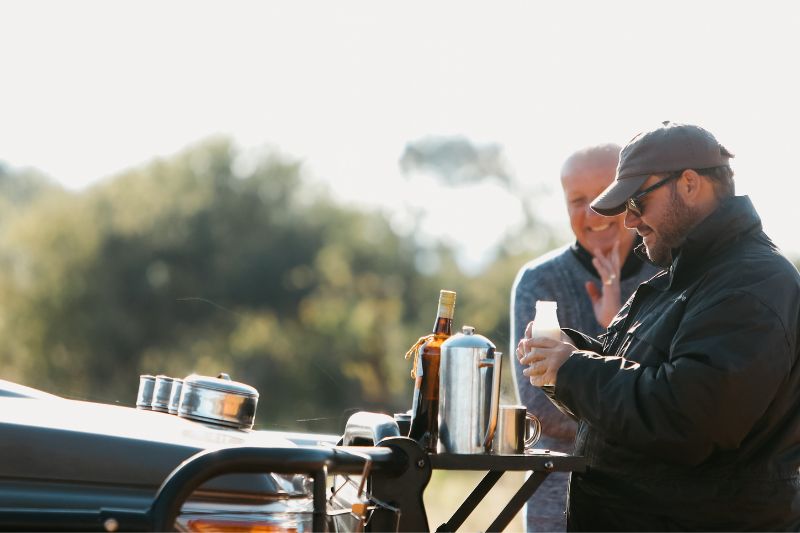
As a general rule, it’s recommended for each guest to tip the safari guide and tracker around $10-$20 per person, per day. In addition to your guide, you may also want to tip the staff at your camp or lodge. Again, the amount can vary depending on the level of service, but a good rule of thumb is for each guest to tip around $5-$10 per day. If individual staff members provide exceptional service, such as a butler, waiter or housekeeper, you may like to tip them too.
How much to tip on safari
The table below shows each guest how much to tip the various people you may come into contact with over the course of your safari.
When it comes to timing, it’s generally best to tip at the end of your safari on your last day at camp. To tip individuals like your guide, tracker or butler, it’s as easy as handing over the tip when you say goodbye to them. When tipping camp staff, some safari companies have tip jars where you can leave your tip discreetly, while at others you’ll give a handful of cash to the camp manager to share amongst the staff.
Remember that tipping is a personal decision, and there’s no hard and fast rule for how much you should give. If you’re unsure, talk to your safari operator or guide for advice on what’s appropriate in your particular situation.
Whether or not it’s customary in your everyday life, tipping is an important part of the safari experience. By tipping appropriately, you’ll be showing your appreciation for the hard work and dedication of your guides and camp staff, and helping to support the local economy.
Anna is the founder of Really Wildlife. She's a 30-something lover of wildlife travel, vegetables and listening to the Lion King soundtrack on full blast.
Wondering how much to tip on safari? Our Complete Guide
If your bags are packed and you’re ready to go, you might be starting to think about all the final details for planning your epic African adventure. Many of our clients ask us how much to tip on safari and we’d say the best way to prepare is to know before you go. Our complete guide to tipping on safari in Africa is designed to help you know what to expect. So, what are you waiting for? Let’s put the final touches on your trip to Africa!
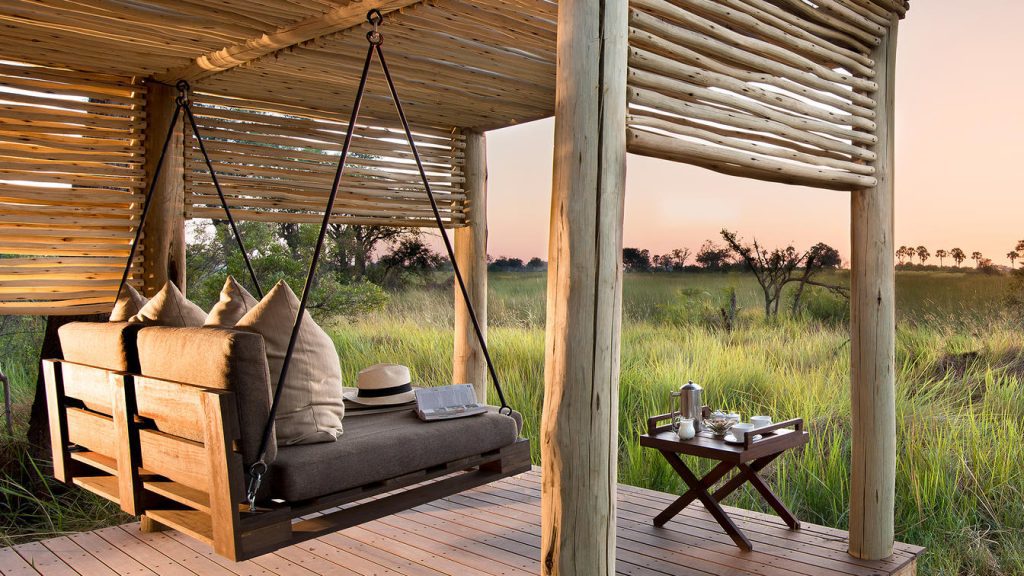
Cash or Credit Card?
One consideration you might not have thought about yet is whether to travel with cash or do your tipping on your credit card. As is always the case the world over, cash reigns supreme. You’ll need to tip in cash for city drivers and trekking teams, however you can opt to place your tips on credit card at the safari bush lodges. To do this, speak to the lodge manager on your last day in camp. They will take you to the office to charge your card and break down the totals you want directed to each staff member or group of staff.
How much to tip?
City restaurants: 10% of the bill at restaurants
Tours/Drivers: $20 per couple per day
Ranger/Guide : $20 per couple per day
Butler : $15 per couple per day
Camp Staff : $15 per couple per day
What currency to tip in on safari?
For most countries, tipping in USD is expected and appreciated. This is true for Kenya, Tanzania, Botswana, Rwanda and Uganda. In Namibia, however, you will be charged in the countries’ local currency if you are paying your tips via credit card. And in South Africa, you will be expected to tip in South African Rand, however USD will still be accepted. If you are paying your tips via credit card in South Africa, you will be charged in the local currency.
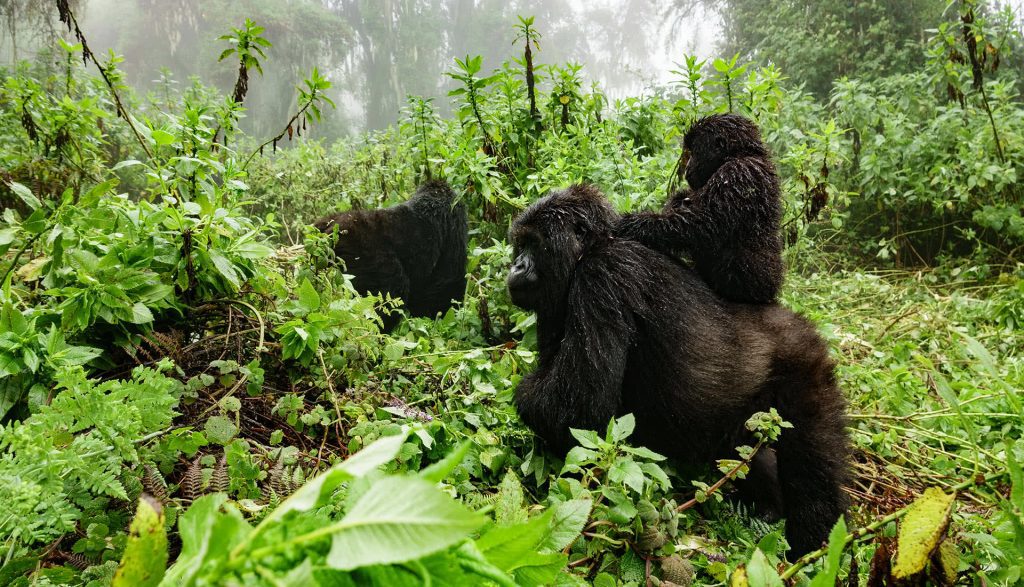
In Cities: 10% of the bill at restaurants
Driver Guide in Cities: $20 per couple per day
Trekking Porters: $20 per porter per trek
Trekking Guide and Trackers: $50 per couple per day
Butlers: $15 per couple per day
Lodge Staff: $20 per couple per day
It is important to note that these tipping guidelines are just that – guidelines. If you had an exceptional stay and wish to tip above average for that special staff member who went above and beyond, this is always appreciated. Safari workers are often working to support their entire families back in the villages, so a little goes a long way!
Read more: Our travel guide to Rwanda
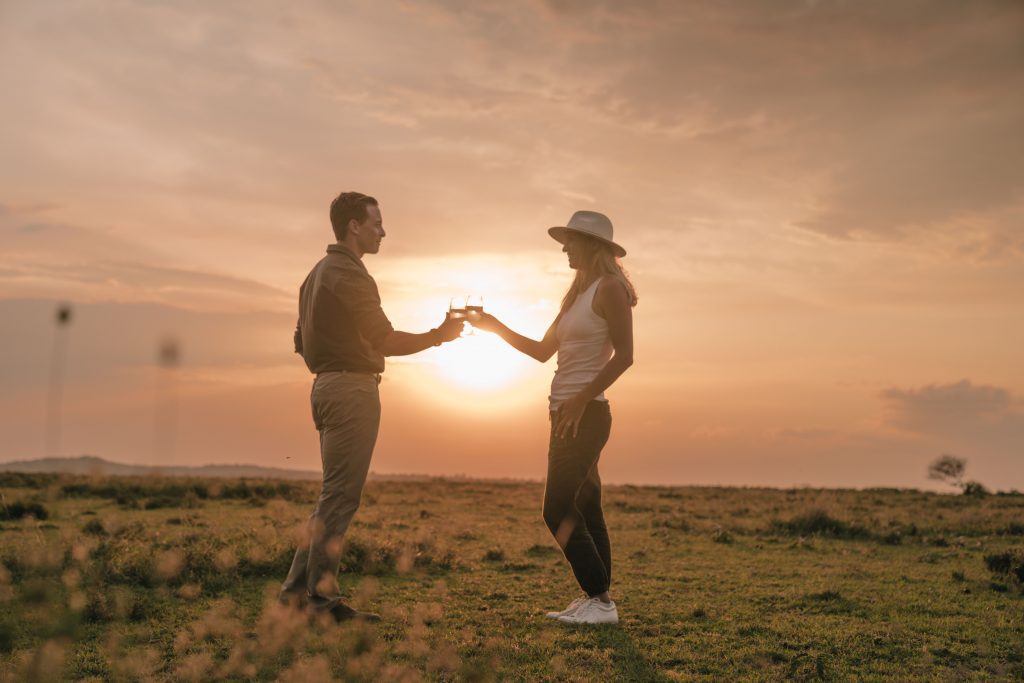
Safari & Zanzibar
Ranger/Guide: $20 per couple per day
Tracker: $15 per couple per day
Butler: $15 per couple per day
Read more: A luxurious escape to Tanzania & Zanzibar

535 Anton Blvd, Suite 180, Costa Mesa, CA 92626
[email protected] 949.877.0385 CST 2133120-40
Terms & Conditions
Privacy Policy

- How long does it take to travel to Africa from the US?
- Unlocking Africa’s Majesty: Meet the Big Five Safari Icons
- Which are the Most Popular African Countries to Visit?
- Embracing Conservation: Five Impact Experiences
Download Brochure
To make this site work properly, we sometimes place small data files called cookies on your device.
Privacy settings
With the slider, you can enable or disable different types of cookies:, this website will.
- Remember which cookies group you accepted
- Essential: Remember your cookie permission setting
- Essential: Allow session cookies
- Essential: Gather information you input into a contact forms newsletter and other forms across all pages
This website won't
- Remember your login details
- Analytics: Keep track of your visited pages and interaction taken
- Analytics: Keep track about your location and region based on your IP number
- Analytics: Keep track of the time spent on each page
- Analytics: Increase the data quality of the statistics functions
- Advertising: Tailor information and advertising to your interests based on e.g. the content you have visited before. (Currently we do not use targeting or targeting cookies)
- Advertising: Gather personally identifiable information such as name and location
- Functionality: Remember selected region and country
- Functionality: Remember social media settings
- Travel Guides Plan your adventure
- Destinations Our favourite places
- Tours Book a trip
- Travel Companies Independent specialists
- Travel Guides
- Destinations
- Travel Companies
The best safaris in South Africa
An expert guide to safaris in south africa.
Anthony Ham
Stuart Butler
- In this guide
Kruger National Park
Sabi sands game reserve, kwazulu-natal.
- Parks of the North West Province
- Safari in the Eastern Cape
- Safari in the Western Cape
- Where to go
- Planning a safari
- Safari FAQs
I fell in love with South Africa the very first time I laid eyes on it. Like so many safari-goers before me, the love affair began in Kruger : big cats, rhinos, elephants and just about every species of charismatic mega-fauna weren’t just present. They were everywhere.
In the years since, as my knowledge of South Africa's safari parks deepened, each visit has only confirmed that my first impressions were, if anything, an understatement. I've been travelling to Africa for two decades as a travel journalist and guidebook author, and some of my happiest safari experiences have been in South Africa.
For me, what makes South Africa special is that it ticks just about every safari box: abundant wildlife, varied habitats and landscapes, a well-organised tourism industry, and a wonderful mix of the accessible and the remote. And every time I come back, I’m surprised by how much there still is to discover and how much there still is to see.
It’s why I keep returning, and I'm sure you will too.
My best South Africa safari tip? There's a whole world beyond Kruger and the other blockbuster parks. Those in the know seek out Timbavati, Madikwe, Kgalagadi and all the other places that the mainstream South African safari industry doesn't want to tell you about. But that's what this guide is for: we'll explore my top recommended South Africa safari parks and reserves in the following pages.
Get the digested read
Where to begin? When to go? How to plan? So many questions, so little time. That's why we've asked leading South Africa safari expert Stuart Butler to answer your most frequently asked questions in this handy four-part email series.
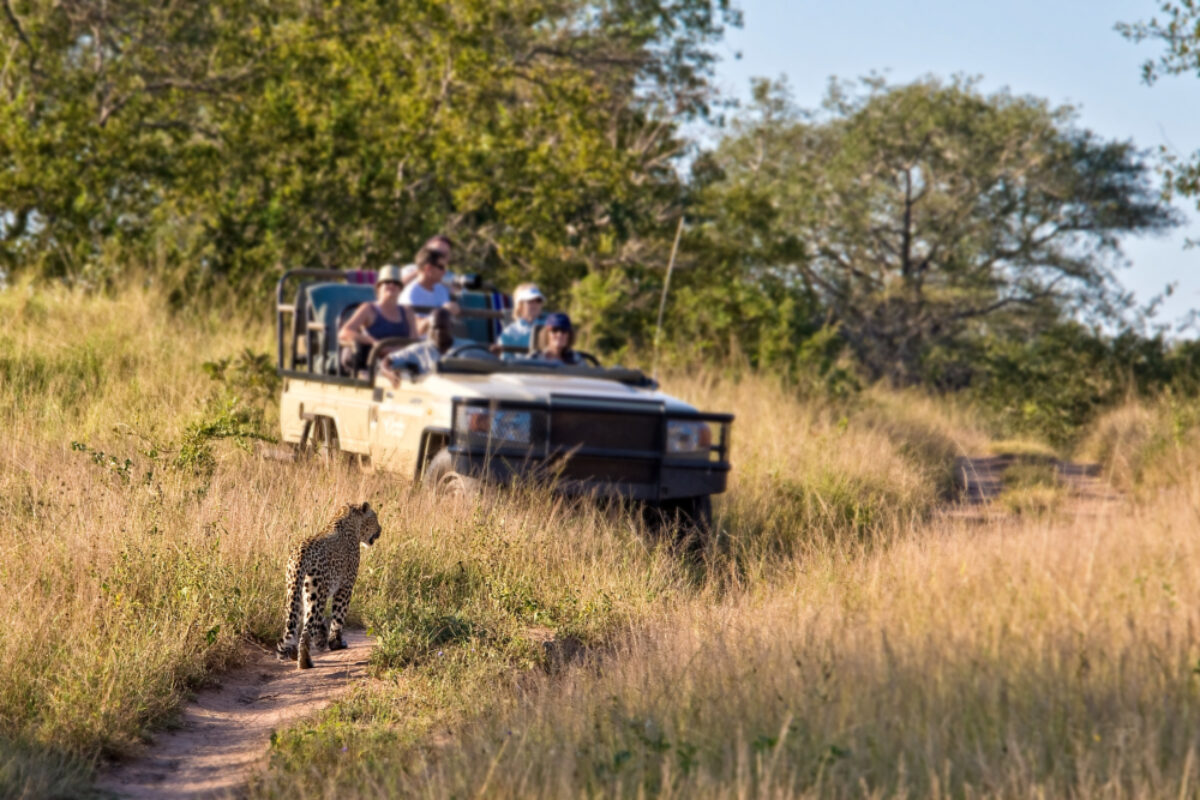
Close encounters with a leopard in South Africa
South Africa's best safari parks, and some hidden gems
Trying to pick the "best" safari parks in South Africa is a fool's errand, but if pushed I'd say it's a toss-up between either Phinda Game Reserve or Tswalu Kalahari Reserve. But all the following would be well worth your time and money.
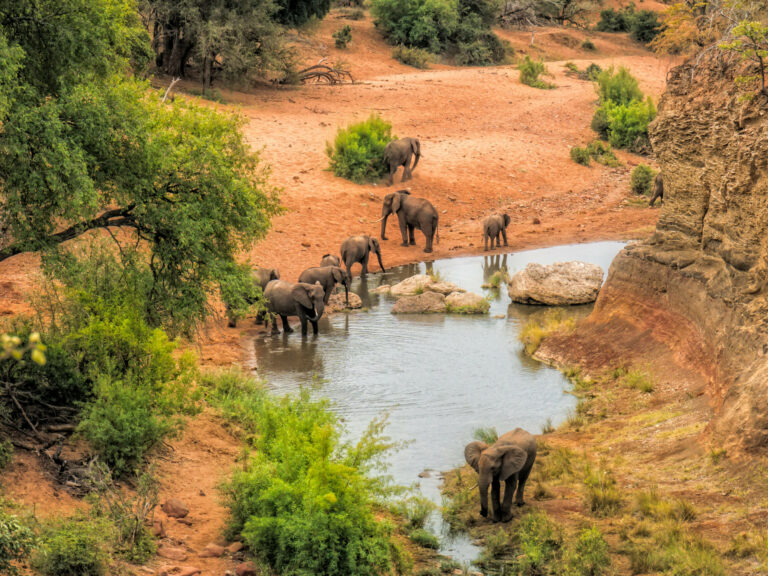
Kruger's hidden gems
Kruger is South Africa’s most celebrated safari park, and deservedly so. Kruger and the surrounding private reserves are home to all of southern Africa’s iconic mammal species, including the endangered African wild dog. Its varied habitats support more than 500 bird species and many of the private reserves offer top quality specialised photo safaris.
But a park as good and easy to visit as Kruger attracts a lot of visitors, and in high season the main routes can be busy. The highly-developed park doesn’t always feel that wild in places.
If this sounds off-putting, fear not: head to northern Kruger for wild beauty, smaller crowds and a palpable sense of adventure. You may have to work a little harder for your sightings up here, but that’s because the animals are less habituated to vehicles. In other words, it feels like a safari of yesteryear. Oh, and the birdlife is exceptional in the north, with species you just don’t find elsewhere in the park.
Another way to avoid the Kruger crowds is by visiting one of the superb private reserves that fringe the park itself, where limited numbers and no self-drives keep things peaceful.
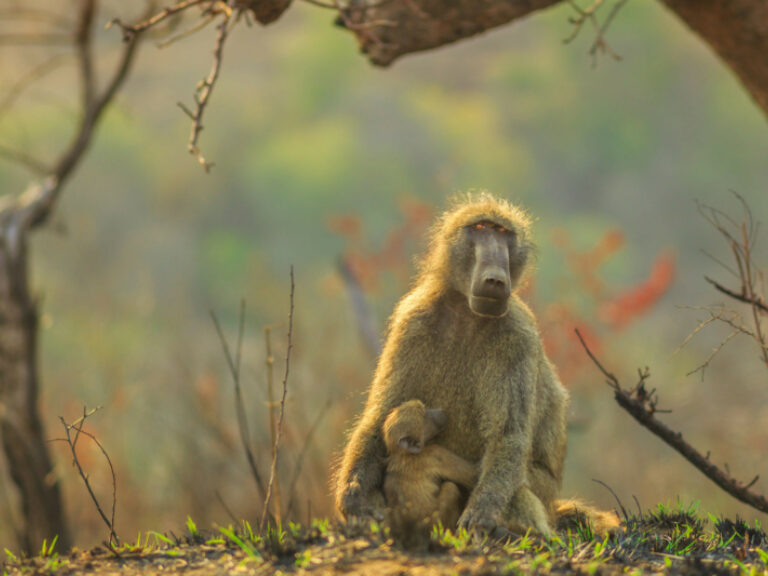
My favourite Kruger alternative
Kwazulu-Natal is South Africa’s cultural heartland, an essential immersion for those seeking to understand this glorious country in all its complexity. Networks of private reserves, plus big-ticket Hluhluwe-iMfolozi range across habitats and landscapes that are quintessentially South African.
Second only to Kruger National Park, the Hluhluwe-iMfolozi Park is a nearly thousand square kilometre slab of wilderness surrounded by private game reserves. With its soaring hills and mountains, Hluhluwe-iMfolozi is scenically much more inspiring than the sometimes drab scrub-scape of Kruger. It is thanks to an innovative and wildly successful breeding programme here that the southern white rhino exists at all, and rhinos from Hluhluwe-iMfolozi have been used to re-populate parks and reserves across southern Africa.
Today, it would be a rare game drive that didn’t bump into at least one of these prehistoric looking creatures. Elephants are common as are buffalo, zebra, giraffe and wildebeest. Much harder to find are the big cats.
Hluhluwe-iMfolozi is easily accessible and has great facilities for people on all budgets. This makes it a good family-safari destination, but it also means it’s the most popular park in KwaZulu-Natal and during the holidays it can get very busy with holidaying locals.
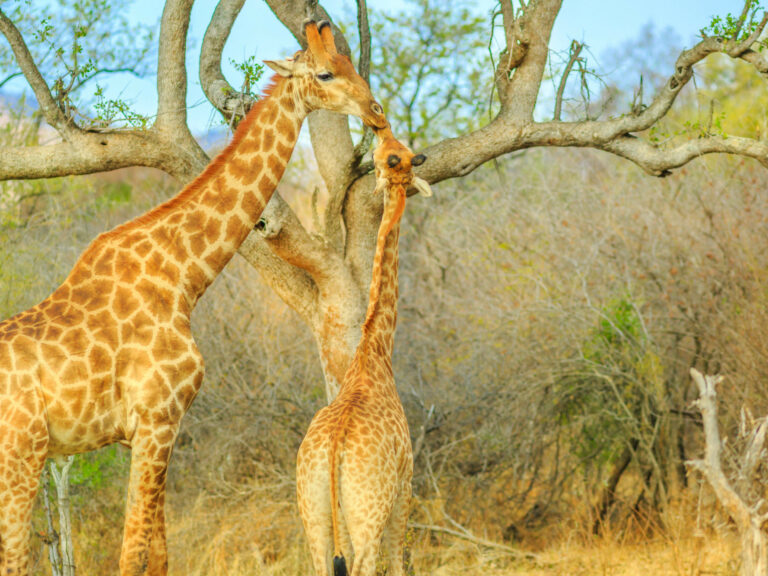
North West Province
Madikwe game reserve.
I’ve never quite understood why Madikwe isn’t mentioned in the same breath as Kruger and South Africa’s other elite parks. Then again, I like it that way: whenever I visit, it’s never crowded. All of the big cats are here, as are elephants, rhinos, buffalo – I once saw rhino, elephant and buffalo all sharing the same waterhole. I’ve also seen African wild dog, two bull giraffes fighting, and lions on the hunt, all on the same afternoon game drive.
Madikwe is unusual in that it is owned by the state in partnership with local communities and the private sector. However, it is run in the same manner as one of the exclusive private game reserves. There are no self-drive safaris here and only people staying in one of the upmarket (but slightly more affordable than normal) lodges are allowed into the reserve. This gives the reserve, which has been formed out of old farm and ranch land, a real air of tranquillity and the wildlife obviously appreciate this as well.
With lower prices than somewhere like Sabi Sands in the Kruger region, but with a similar exclusive vibe, Madikwe suits those who want all the advantages of a prime private reserve but who don’t have quite enough cash to splash out on those big names. The mix of accommodation is just about right, too, with an affordable choice and a handful of perfectly placed luxury options.
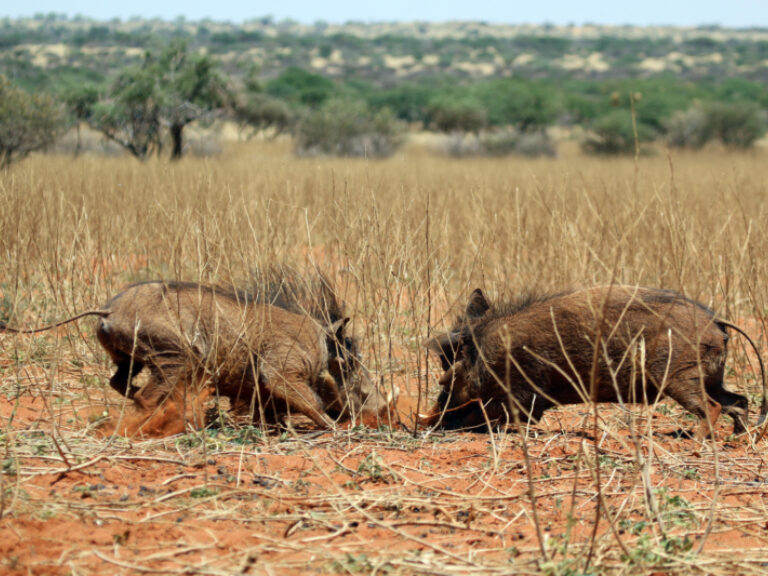
The Kalahari
Tswalu kalahari private reserve.
Claiming to be South Africa’s largest private reserve, Tswalu, in Northern Cape, is a shining example of what can be done when conservation and tourism combines. Built around a model of sustainability, the reserve takes a holistic approach to conservation with deep ties to the local community. And with, at last count, 85 mammal and 264 bird species, the Kalahari wildlife is magnificent, with everything from black-maned Kalahari lions, oryx and meerkats to brown hyenas, African wild dogs and pangolins.
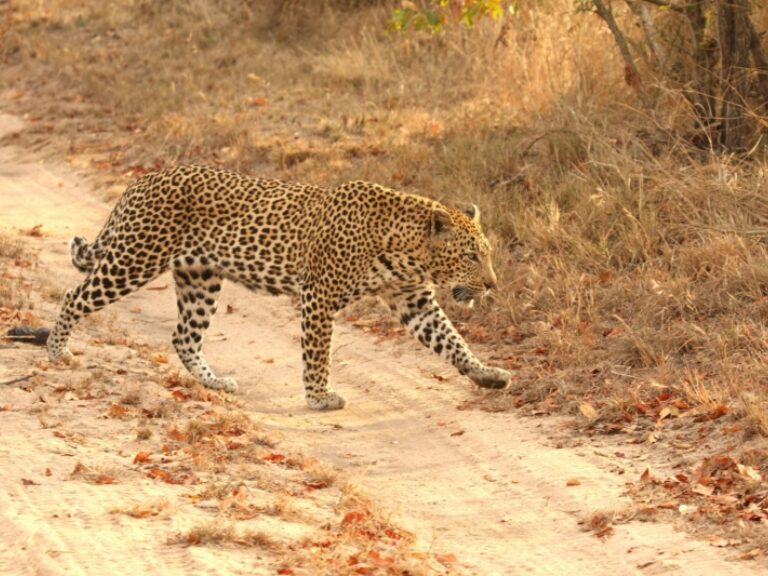
Best for big cats
If I had to make a choice, for me it’s all about the big cats. And there’s nowhere better than Sabi Sands . The leopard sightings in particular here are almost always something special, thanks to the unrivalled quality of the guiding and the intimacy of the whole low-density-tourism experience.
This 65,000 hectare reserve is, in many respects, the finest chunk of wildlife-filled wilderness in southern Africa. The choice safari destination in South Africa for the wealthy, Sabi Sands is actually a grouping of smaller private reserves rather than one single entity. With unfenced reserves adjacent to Kruger, the wildlife slips effortlessly around the ecosystem while world-class wildlife guides ensure that you’re always in the right place at the right time.
The only real downside is the hefty price tag! But if you can afford it, there’s no question that Sabi Sands offers the best safari experience in South Africa. Also, if birdwatching is your thing, as with Kruger, Sabi Sands has great birdlife, although with less habitat diversity the species count is lower.
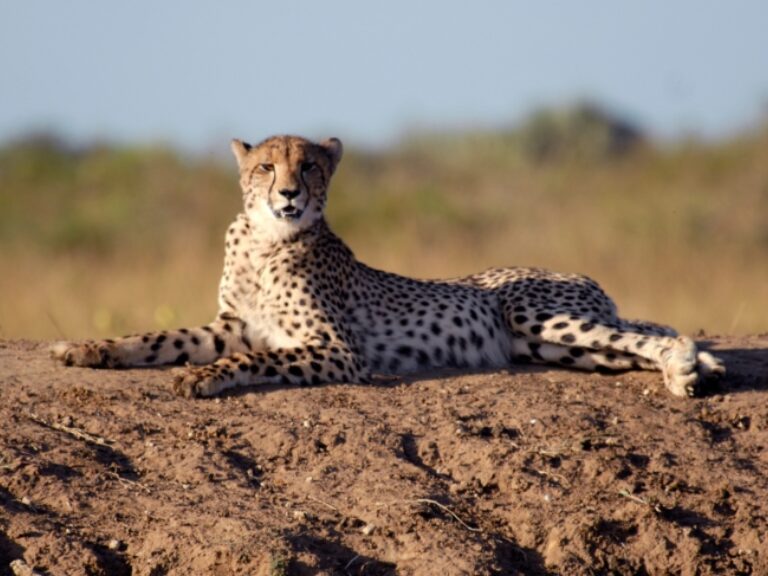
Phinda Game Reserve
Of all the private reserves of KwaZulu-Natal, it’s Phinda that most rivals Sabi Sands and the other world-famous reserves that fringe Kruger. With its winning combination of attractive scenery, large numbers of mammals (including all the big five), more than 400 bird species, stupendously beautiful accommodation and a real sense of exclusivity, a range of exciting visitor activities and a forward-looking conservation and community programme, it’s easy to see how it garners endless accolades.
I'd say this is perhaps the best place in South Africa to see the cheetah, and sightings here are consistently excellent.
And to combine safari with marine wildlife watching, visit the Sodwana coast which rivals the Great Barrier Reef for marine birds.
Fabulous accommodation adds to the appeal, visitor numbers are far fewer than in the Kruger reserves. A stay here doesn’t come cheap and you can only enter the reserve as a guest of one of the six very upmarket lodges. But if your budget stretches to it then, in our opinion, Phinda is one of the very best places for a short safari and you’re almost guaranteed to see all the flagship animals.
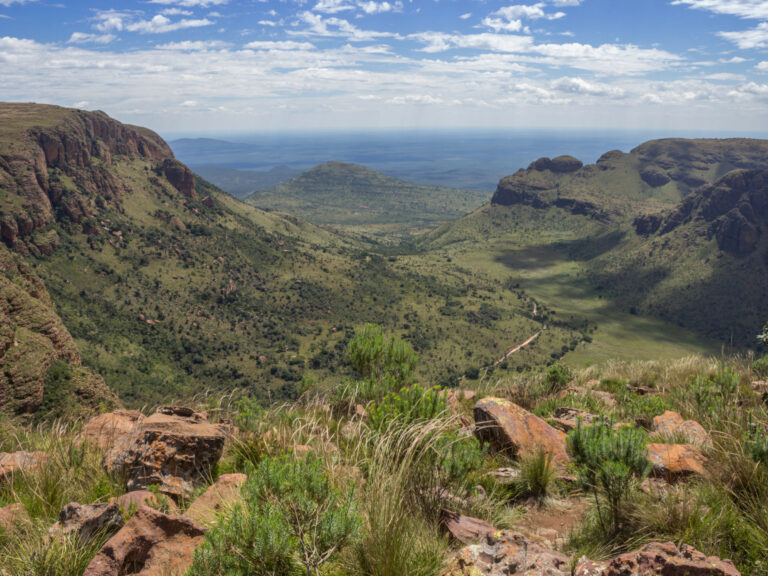
Waterberg Biosphere Reserve
The vast upland massif of the Waterberg region is one of only two biosphere reserves in all of Africa. This is a region of superlatives where space, solitude and wildlife are backdrops to day-to-day life. This isn’t so much a single unbroken reserve, but rather a puzzle of interconnected reserves and small human settlements. A journey here is proof that wildlife and humans can live and thrive side by side.
The best-regarded reserves are the Lapalala Wilderness Area, Marakele National Park, and the Welgevonden Game Reserve. What wildlife you’ll see really depends on which reserve you visit. Some, such as Marakele and Welgevonden, have all the animals you came to Africa to see, but others (particularly the smaller private reserves) are fenced and mainly have smaller creatures. In these reserves, the focus is more on family-friendly activities such as cycling, walking and bush camping.
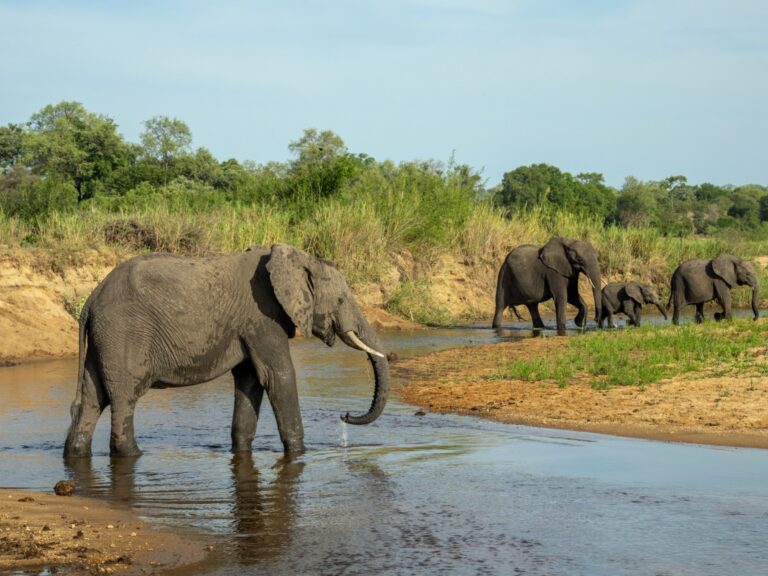
Mala Mala Game Reserve
Another one of South Africa’s original private game reserves, the massive Mala Mala has been operating since the 1920s. Although part of the Sabi Sands Reserve for some time, Mala Mala has gone its own way, but the visitor wouldn’t know the difference. The wildlife is just as impressive as before and the whole safari experience is just as polished. The difference is that Mala Mala is (marginally) more affordable than most of the others and, at around 130 sq km, is much larger. Its size, and the fact that guests of other reserves are not allowed means that you have this wonderful sweep of bushy savannah all to yourself. All in all it's one of my favourite safari reserves in all South Africa.
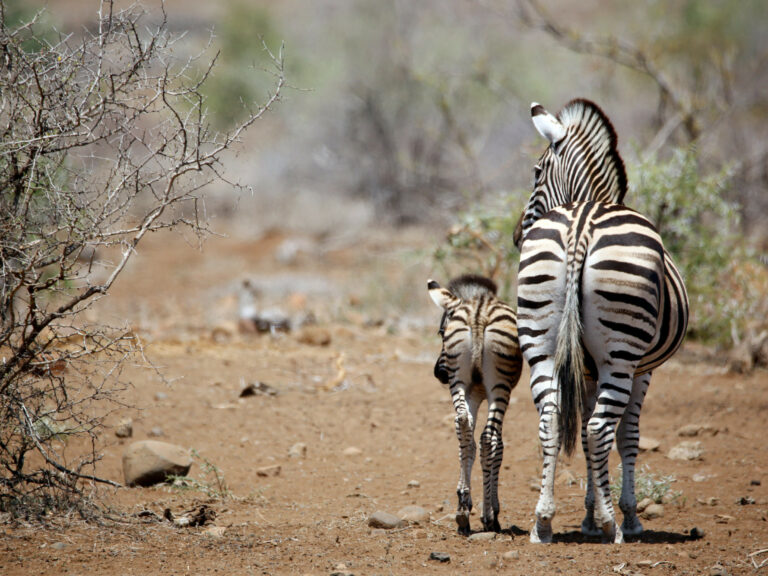
Timbavati Private Game Reserve
Sabi Sands and Mala Mala may get all the attention among the private reserves west of Kruger. And make no mistake: both offer world-class wildlife experiences. But for something a little more low-key, I always choose Timbavati, where my wildlife sightings have always been exceptional and intense. There’s no fence between Timbavati and the national park, visiting here is like a concentrated version of the best of Kruger without the hype. A good mix of accommodation also makes it a touch more affordable than the others.
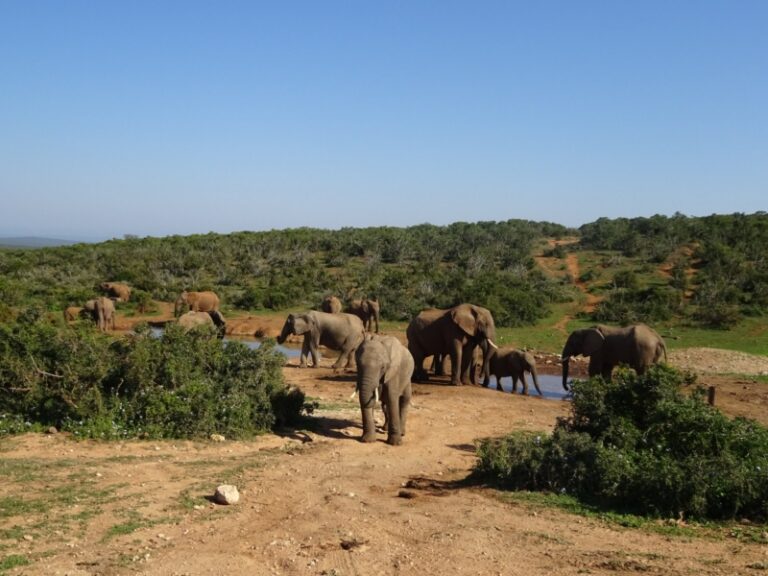
Eastern Cape
Addo elephant national park.
This, one of South Africa’s largest national parks, is best known for its namesake elephants. But this diverse park, which includes river valleys, mountains, savannahs, forests and beaches, has much more to offer.
A few lions saunter in and out of the shadows, and buffalo, various antelope and even rhino are all present, but there are also plenty of unexpected safari animals including Cape fur seals, penguins, southern right whales and — for those brave enough to go for a paddle — great white sharks. But it’s those elephants that most people come to see. When the park was formed back in the 1930s there were fewer than a dozen elephants here. Today there are more than 600 and sightings are almost a given.
As well as fantastic wildlife, Addo has excellent tourist facilities and accommodation, easy access, a good road network and, with hiking, kayaking and horse riding, plenty of activities to get you out of the cramped safari vehicle. This is also one of the better family safari destinations.
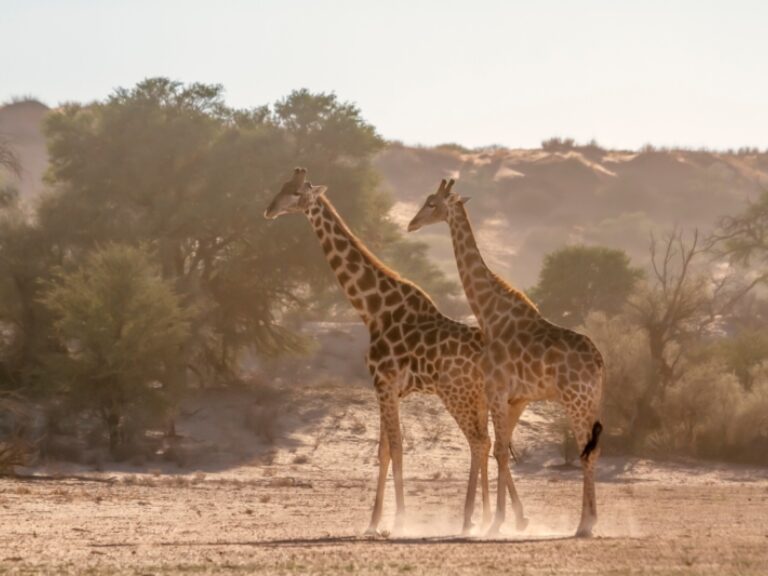
Kgalagadi Transfrontier Park
I love deserts, and have spent a lifetime roaming across Africa in search of the perfect desert safari experience. One that combines South African accessibility (paved roads run right to the park gate) with the best in desert scenery is Kgalagadi Transfrontier Park, which South Africa shares with Botswana. Having written a book about lions, I’ve always valued as special Kgalagadi’s lion possibilities that never disappoint: watching a pride of lions roaring atop a sand dune at sunset is my definition of safari perfection.
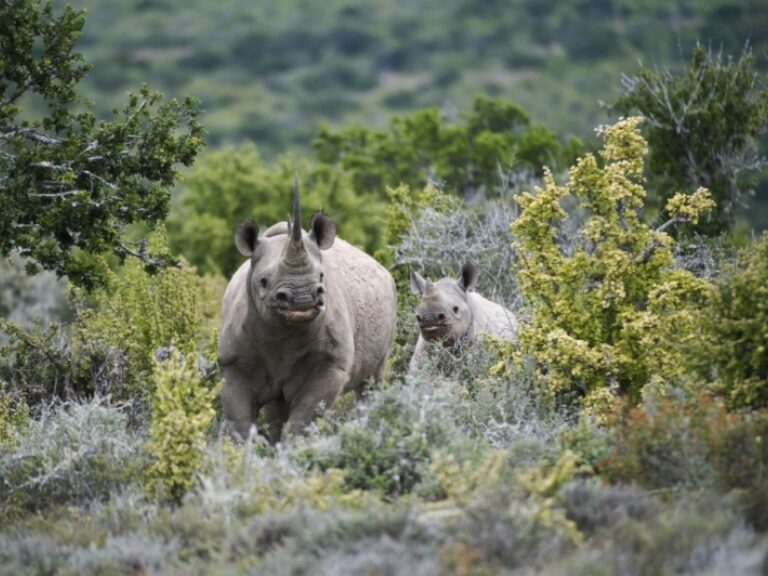
Kwandwe Game Reserve
This 220-sq-km reserve is larger than most in the eastern Cape, and yet has just two small lodges in which to stay: overcrowding at wildlife sightings just doesn’t happen here. I’ve often had big cat and rhino sightings to myself here; the rhinos in particular seem oblivious to vehicles and I’ve been so close, I could have leaned out to touch them. And I just love the night drives: there’s nothing quite like seeing a porcupine waddling along a night road, confusing the hell out of lions.
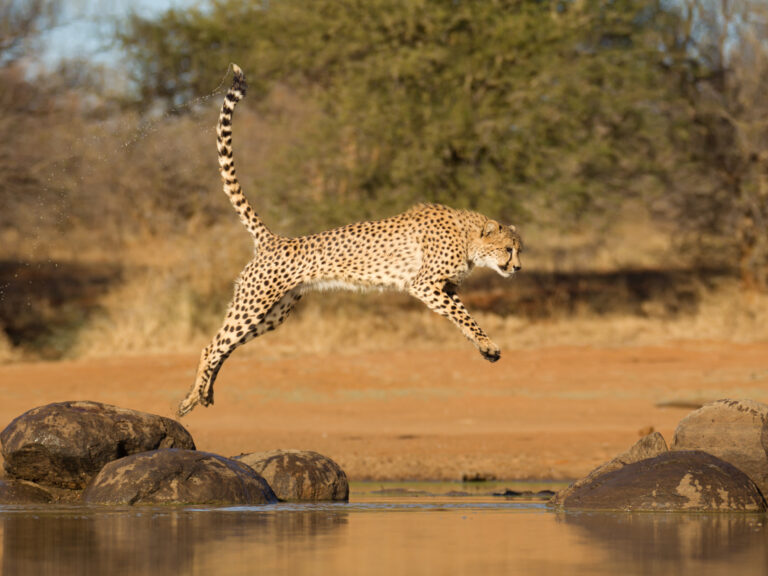
Western Cape
Karoo national park.
Every time I visit Karoo National Park, I’m struck with amazement that this arid wilderness survives in the heart of the country. The rugged terrain, coupled with astonishing birdlife, the lurking presence of lion and black rhino, and the sheer silence at night all combine to lure me back. It’s having a desert transplanted alongside the Johannesburg-Cape Town road. Most visitors drive right on by, but there’s a whole world of wonder to experience if decide to stop.
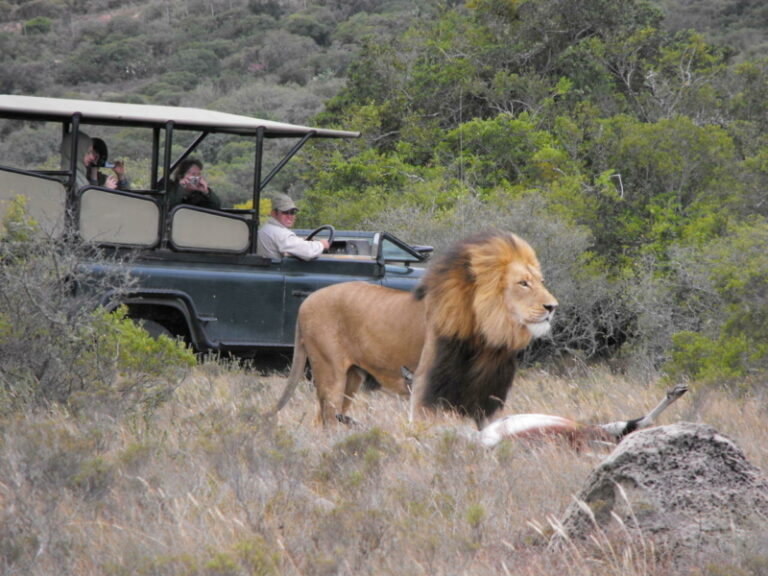
Amakhala Game Reserve
Of all the private reserves in South Africa’s Eastern Cape, Amakhala is my pick. Relatively unheralded and yet filled with animals, it offers the kind of safari experience that will appeal to families as well as to veteran safari visitors.
Big cat, elephant and rhino sightings are consistently excellent, and the habitat here enables an unusual range of activities, from standard game drives in an open-sided 4WD to walking safaris and boat trips.
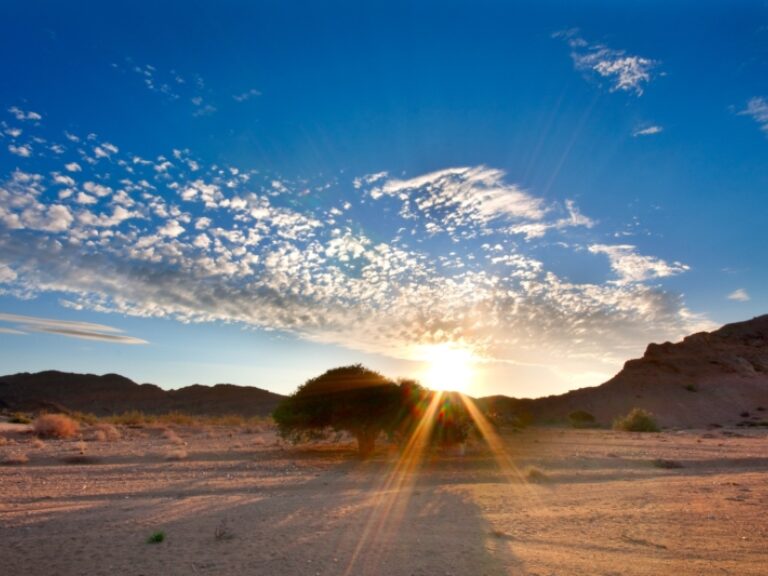
Northern Cape
|ai-|ais/richtersveld transfrontier park.
I can never resist a desert experience, one of the least-known is this fine park along the Namibian border. It’s a chance to concentrate less on the animals - though there are some rarities here, such as the caracal, klipspringer, honey badger and the Hautmann’s mountain zebra – and more on the landscape as a whole. Vivid wildflower displays in spring and the extraordinary fissures and landforms of Fish River Canyon (the world’s second-largest), make this one of Africa’s most underrated natural wonders.
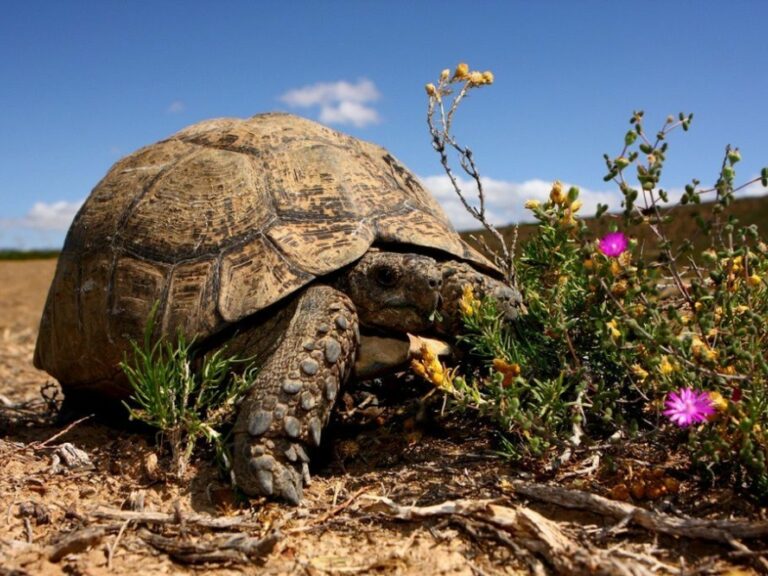
Sanbona Wildlife Reserve
Combine big cats with wine tasting, and you get the Sanbona Wildlife Reserve.
Sanbona is an exclusive private conservancy that’s been restocked with the big ticket animal attractions — lions, elephants, buffalo and rhinos — and, thanks to the expert guides, all are regularly seen on safaris here. Covering more than 50,000 hectares, Sanbona is large enough to feel like a genuine wilderness, but at the same time is only a three-hour drive from Cape Town and lies close to the Western Cape’s famed wine lands. This means it’s easy to slip a Big Five safari into a wine tasting tour and a Cape Town city break.
Situated at the foot of the Warmwaterberg Mountains in the Little Karoo, Sanbona offers three reserves with all the usual luxuries.
As well as standard vehicle safaris, I recommend joining an overnight walking safari and trying a bush camping experience. Look out for the 3,500-year-old rock art depicting people and animals left by the San and Khoikhoi tribes.
Hluhluwe-iMfolozi Park
Addo elephant park.

On safari in South Africa
Featured South Africa Safaris
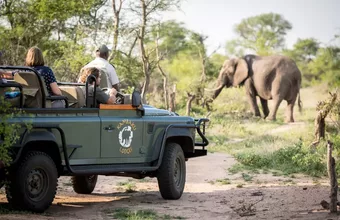
Affordable Greater Kruger Safari Combo
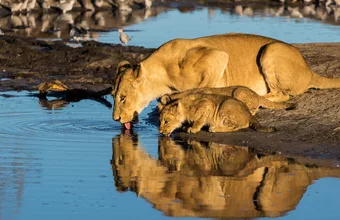
Kruger Safari Packages
Mobile camping & walking safaris.
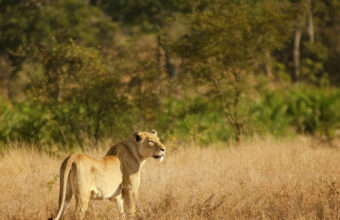
Jewels of South Africa
13 day small group tour of south africa.
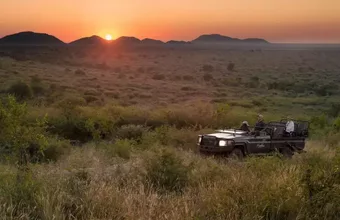
Malaria-Free Big 5 Safari in Madikwe
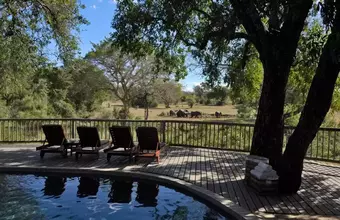
Big Five Safari in Mala Mala
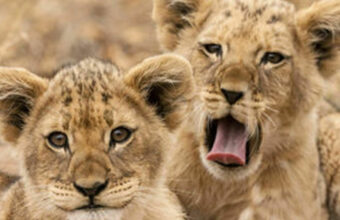
Kruger Safari & Beach
8 days from kruger to mozambique.
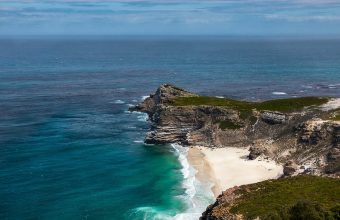

Wonders of South Africa
15 days from port elizabeth to kruger.
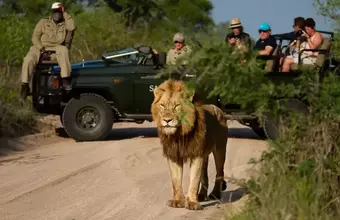
Sabi Sands Fly In Safari
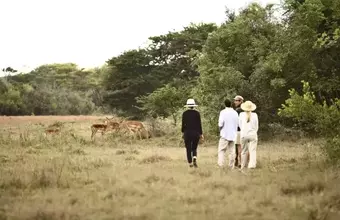
Kwazulu Natal Beach and Bush Honeymoon
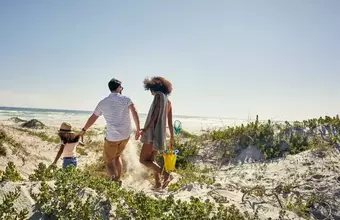
Family self-drive along the Garden Route
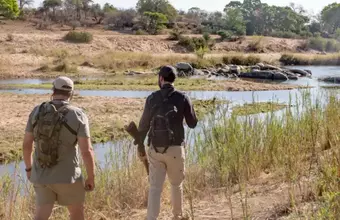
Cape Town & Kruger Luxury Safari
South africa safari: need to know, everything you wish you'd known before you booked.
South Africa is safari heaven. From the world-famous Kruger National Park and Sabi Sands to the lesser-known Karoo and family-friendly experiences in the Western Cape, there’s a wildlife experience to match all needs. First-time visitors will probably want to hit the Big Five highlights of the major parks, but don’t dismiss the more accessible lodges in the North West Province and around Cape Town.
For those looking for a cheaper option, consider self-drive safari routes. A quintessential South African family experience is a self-drive route through Kruger National Park, staying at self-catering campsites, where accommodation can be anything from small huts to guesthouses.
When planning where to go on safari in South Africa, consider what you want to get out of the experience. For luxurious lodges, head to up-market parks like Sabi Sands. If you want to get out into the bush, consider lodges that offer walking safaris. For those less bothered by the big five, consider the birdlife of KwaZulu-Natal or the cheetahs of Karoo.
Safari on your own terms
This may be controversial, but in my opinion you should forget about the "Big Five".
The Big Five (lion, leopard, elephant, rhino and buffalo) are the five African safari animals deemed the most dangerous to hunt by colonial-era hunters in the late 19th- and early 20th-century. Yes, it’s a useful marketing tool. And yes, many South Africa safari-goers (and companies) are still in their thrall. But in my opinion the obsession over the Big Five has more to do with nostalgia than the excitement and experience of a safari today.
I’ve nothing against seeing the Big Five animals themselves: each one is a thrill, every time. But I think the emphasis on "bagging" all the Big Five like a colonial big game hunter can detract from fully appreciating the true experience. I’ve encountered travellers who rush away from a lion kill because they’re yet to see a buffalo and their time on safari is running out. Safari, and travel more generally, should be about much more than rushed bucket lists and tick boxes.
Personally, I’m just as thrilled to encounter a cheetah – I’d rather see a cheetah on the hunt than a lion sleeping under a tree – or an African wild dog pack streaming across the landscape and on the hunt. Or a serval, or a meerkat, or a brown hyena. Sometimes, I’ll choose to sit beneath a leopard resting in a tree for a whole afternoon, just on the chance that it will soon stretch, climb down the tree, and head off on some exciting leopard mission.
And it just seems so arbitrary. Why not the "Big Six" (I always add the cheetah to the traditional list); adding African wild dogs and fighting giraffes to become a "Big Eight". This is the problem with the Big Five: it puts someone else’s list above your own sense of wonder.
South Africa safari logistics
There are two main classes of safari in South Africa: self-drive and organised safari tours. And within the latter, there’s a whole world of choice: between a group and a private safari; between a fly-in and a 4WD safari; between a walking safari and one where you remain in your vehicle; between a camping safari and one spent sleeping in lodges.
Self-drive means using your own vehicle (typically a rental car) to travel between the game reserves and, where self-drive safaris are permitted, making your own way through the reserves and parks. You’ll need to book ahead at your chosen accommodation in each reserve, and be sure to check that self-drive safaris are permitted. Although you certainly could rent a 4WD, most South African parks and reserves have excellent road networks and a 2WD is, in most cases, sufficient.
Organised safaris are similar to typical packaged multi-stop tours, usually with a number of different reserves or parks in one trip. They include all accommodation, collection and ground transfers from the airports (or, in the case of some luxury lodges, fly-ins to their own private airstrips). You won’t need your own vehicle and all game drives will be with a guide, usually in a small group of guests.
The main pros to self-drive safaris are that they tend to be cheaper, allow you to visit places that aren’t included on mainstream safari packages, and they give you more freedom to change plans at the last moment. There’s nothing worse than being on safari with other travellers who convince the guide to move on, when all you’d like to do is stick around and wait for those lion cubs to wake up: a self-drive safari solves that problem.
There are a number of drawbacks. Firstly, you most likely won’t be in a specialised safari vehicle, typically a large, open-sided 4WD that is purpose made for good visibility. This is usually a deal-breaker for keen wildlife spotters and photographers, as being in a rental saloon car severely limits where you can go and how much you can see. You could, of course, rent a 4WD vehicle, but this increases the cost significantly. Self-drive safari also means that you are your own guide and wildlife spotter. Fun perhaps, but you’ll miss lots of sightings without a proper guide.
But not all organised South African safaris are created equal. In addition to choosing which accommodation you’ll sleep in, whether you fly or drive in, and how much time you spend in your vehicle, you’ll need to choose between your own private a safari and one you share with others. Private safaris mean having the guide and vehicle all to yourself and/or your travelling party; such safaris are easier to customise, but also more expensive. A group safari means sharing both costs and experiences: you’ll pay less and have a cast of safari companions with which to share it all, but you’ll also have less control over everything from your dates of travel to the itinerary.
Such considerations aside, the best South Africa safari tours use customised jeeps and highly-trained guides who will enliven your experience with their vast knowledge and tracking skills. Poor quality safaris can mean an overcrowded minibus hurtling from one sighting to the next with a guide who barely knows his giraffe from his flamingo. As with most things in life, you get what you pay for — aim as high as you can afford, even if that means taking a shorter trip.
Blessed with incredible geographical diversity, South Africa is truly a year-round destination. Each region offers something unique and it is always a good season somewhere in this diverse country.
The overall best time to go on safari in South Africa is between May to September. This is South Africa’s dry season, but also low season as temperatures drop for winter; don’t underestimate how long temperatures can fall overnight, particularly away from the coast. Wildlife is easier to spot in these months, as vegetation is lower and animals gather around waterholes.
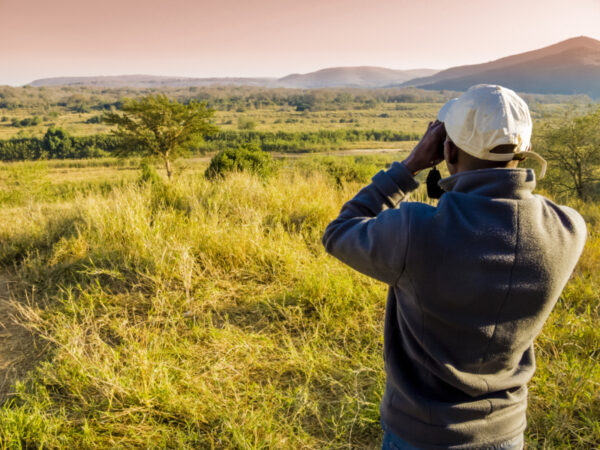
When to go on safari in South Africa
Blessed with incredible geographical diversity, South Africa is truly a year-round destination…
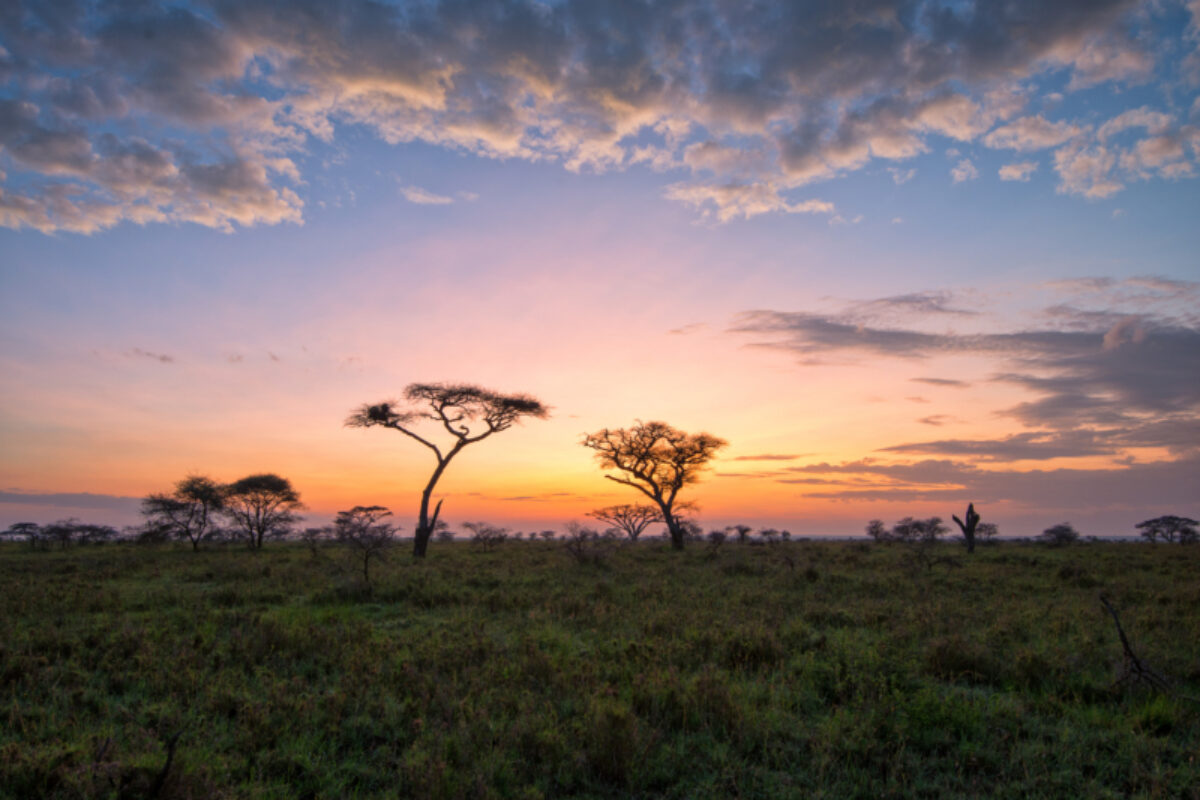
Sunset over the Savannah
Safety on safari
Part of the thrill of going on safari in South Africa is the chance to get up close and personal with some of the world’s most awesome — and dangerous — animals. It’s important to follow safety guidelines and some basic health procedures to ensure your trip is as memorable as possible.
First-time safari-goers are often worried about encounters with dangerous wildlife. The simple truth is that you won’t get eaten by a lion. Safari guides are trained to keep their guests safe and will tell you how to act in any given encounter with wildlife.
If you’re on a self-drive trip: never get out of your car unless specifically told that it’s safe to do so; never attempt to feed or pet the animals; and never walk around in the bush alone at night — if you need to leave your tent at night, call security.
Note that elephants, buffalo and hippo are all far more dangerous than lions. Give elephants a very wide berth especially if you happen to be on foot. Never get between a hippo and water and avoid walking in dense bush where you could meet buffalo.
If you’re on a walking trip, try to stay downwind of the animals. If an animal begins behaving in a hostile manner, back away slowly and quietly. In all scenarios, follow the advice of your guides and rangers.
Staying healthy
The more real health risk comes from drinking tap water or eating something which doesn’t agree with you, both of which can lead to an upset stomach for a day or so. Only drink treated water and be careful with what you eat - although the food prepared at most safari camps is invariably safe - and often world-class.
The heat and strong African sun can easily leave you burnt, dehydrated or, worse, give you heat or sunstroke. Wear a wide-brimmed hat, bring lots of water and slap on plenty of factor 50 sunscreen.
Malaria can be a problem in parts of the northeast (which is where the best-known parks and reserves are) so always wear insect repellent at night, sleep under a net and follow your doctor’s advice on anti-malarials.
Health-wise, South Africa is generally a trouble-free destination, but make sure all of your standard vaccinations are up to date before travelling.
South Africa has an unenviable reputation for violence and robbery and it would be remiss to say that there isn’t a danger from this. However, the threat to most tourists is very low. Most violence occurs in poorer city neighbourhoods and not in tourist areas. More to the point, robberies and violence on a safari is only likely to be an issue if a troop of baboons manages to get into your room.
Responsible safaris
A safari is a wonderful opportunity to experience nature on a grand scale. But although it’s easy to get swept up with the romance of it all, you shouldn’t forget that your presence has a direct impact on the ecosystem, for good and bad.
The upside of your safari is that the money you put into the system pays for conservation and helps keep the land protected and wild. Without wildlife tourism, there’s a very real chance that many of South Africa’s conservation zones would become, or remain, farmland with all the implications that has for a fragile ecosystem.
In addition, there are things you can do to make your impact is as positive as possible. Before booking with any safari company, camp or lodge, or even choosing the parks and reserves you wish to visit, take a look at the conservation and community projects they are involved with. Companies investing back into local communities and conservation projects often like to shout about it on their websites. And when you do book, remember to mention that their community projects were a factor in your decision. This will encourage further investment in such programmes.
Respect the wildlife
On safari, treat the wildlife with the respect it deserves. Getting too close to wildlife, approaching animals head-on or pursuing and encircling them is likely to disturb them and cause distress. Approach wildlife at an angle, which is less threatening than coming at animals head-on. Movements must be steady and predictable.
How close you can get depends on the species but in general, your presence shouldn’t alarm the animals, cause them to flee, or change their normal behaviour. If the animals appear disturbed, you should move away immediately.
Noise, such as the sound of engines, laughter and shouting, should be kept to a minimum. Engines should be switched off when stationary and vehicle horns or fog horns on boats should never be used.
Bright lights and flash photography will startle an animal, possibly costing it a meal or even its life. On night drives, the use of naked searchlights should be replaced with red filtered lamps that do not disturb wild animals.
Avoid causing unnecessary damage to the environment. Litter, including plastic bags, batteries and cigarette butts, can be ingested by wildlife, causing injury or even death. Make sure you don’t drop anything and dispose of your rubbish properly.
Follow your guide
Absolutely no direct contact should be made between wild animals and people, including the guides. This can be highly stressful for the animals concerned, run the risk of transmitting disease, and can potentially, cause injury or even death. If you are observing wildlife from a vehicle, never get out of the car unless instructed to do so by your guide.
All animals have very specific diets and feeding them different foods could make them ill. Feeding wildlife can also change their social and feeding behaviour, encouraging begging, causing conflict between other animals, and increasing the likelihood of aggression towards humans.
If travelling in a group, don’t be shy. If you see or experience unacceptable human behaviour that has a negative impact on wild animals, be sure to speak out. If you cannot change the behaviour at the time by voicing your concerns, contact your tour operator afterwards and register your disapproval.
Conversely, if you have a great experience, thank and reward your guide appropriately and let your tour company or agent know that you appreciate their conscientious approach to what should be a magical experience.
Part of the joy of seeing animals in the wild is that you’re visiting them in their own environments and witnessing their natural behaviour. Inevitably there will be times when the animals are less active or visible, depending on the location, the season, or even just the time of day.
Do your research before you travel and find out the best time of year to view the wildlife you most wish to see. If the animals aren’t active when you visit, don’t be disappointed: this is not a zoo. It’s all part of a respectful approach to the natural world that you’re visiting. It’s important that tourists don’t pressure their guides into manipulating the situation to make viewing the animals easier, or to set up that perfect photo opportunity.
Finally, when you get back home talk to your friends about the environmental issues the parks and reserves of South Africa face, and help spread the important message of conservation to your friends and family.
For more information on ethical wildlife holidays and how to interact with wildlife in a responsible and sustainable way, see our companion guide Compassionate Travel: A guide to animal-friendly holidays .
South Africa safari FAQs
Your questions, our expert answers, how much does a safari in south africa cost.
This is a virtually impossible question to answer as there’s such a huge range! But broadly speaking at the low-cost/budget end it ranges from USD $100 to $300 per person per night. This typically includes basic accommodations, such as tented camps or rest camp lodges.
At the mid-range prices might be USD $300 - $600 per person per night with a corresponding bump in accommodation quality.
At the high end there seems to be no ceiling. In private game reserves visitors can spend from $600 to $2,000 or more per person per night. You’ll be grateful that the sundowner is included in the price and additional activities like bush walks, night drives, or even hot air balloon rides may be included.
What should I expect on a safari in South Africa?
Most safaris start around dawn with a quick breakfast before heading out in the vehicles to begin animal spotting. Most animals choose to hunt in the early morning or dusk when temperatures are cooler. It’s also a good time to spot nocturnal animals returning from a night’s hunting, such as lions.
After a few hours in the field, you’ll break for lunch before heading out again until dusk. In general, expect to spend between 6-8 hours each day searching for animals. Remember that temperatures will regularly reach 30C and the tracks the vehicles drive on can be bumpy and dusty. Dress appropriately, wear lots of suncream and drink plenty of water. Evenings are spent swapping stories — and drinks — around the campfire.
It’s also worth remembering that you’re visiting national parks, not zoos. There is no guarantee that you’ll see any of the Big Five — or any animal at all. Conversely, be aware that you’ll spend eight hours a day searching for wildlife. It is possible for animal ‘fatigue’ to set in if you spend too long in one park or lodge. To counter this, visit different lodges or parks, and mix up your experience by including walking safaris, overnight camping or evening safaris.
Is safari dangerous?
In a word, no. The chances of being attacked by an animal are so minimal it hardly warrants considering. However, you must stick to the general rules imposed by the park and heed the instructions of your guides. If you break those and decide to go for a moonlight walk through the bush on your own, then yes, you might become a midnight snack.
Is safari family friendly?
Kids of all ages enjoy safaris as much as any adult. But a safari tends to mean a lot of time in a vehicle, often on bad roads and in hot weather. If there’s plenty of action taking place, younger children will be as hooked as you. But they can become bored the moment the pace slows down. If travelling with kids, ensure you choose camps or lodges that offer plenty of child-friendly activities. Some lodges and camps don’t accept children under a certain age. And don’t plan on heading out on early game drives every morning.
What is the food like in safari camps?
The standard of food is generally very high — even in the remotest lodges. Most lodges will have qualified chefs on hand and part of the entire safari experience is the cuisine and the emphasis placed on food.
Will I have to carry cash on safari in South Africa?
South Africa’s currency is the Rand, denoted by an R in shops and ZAR in currency trading. A favourable exchange rate with major currencies makes travelling in South Africa cheaper than visiting Europe or the United States. You can use credit cards in many shops, restaurants and lodges; there are many ATMs throughout the country and you can exchange traveller’s cheques at all banks. The best cash currencies to bring are US Dollars, Euros or British Pounds as these notes are accepted at the many Bureaux de Change in bigger cities.
You will be offered currency exchanges by people on the street throughout Africa. It may be tempting to avoid the conversion commissions; however, this is illegal and should be avoided at all costs.
On safari, almost all major expenses (all meals, activities, and, sometimes even, drinks) are covered in the costs of accommodation. Any extras tend to be very limited, and can generally be paid by card.
In urban centers, particularly in South Africa, ATMs are to be found in most shopping malls and banks, and will accept international cards using the Cirrus and Plus systems, as well as Visa, Mastercard, or American Express credit cards (provided your credit account has a cash withdrawal facility).
All airports in south Africa also have ATMs, and you can withdraw money as soon as you land (generally at a better exchange rate than if you were to exchange cash or travellers checks at a bank).
How much should we tip our safari guides?
In some environments such as at lodges, on safari and on treks, tipping is structured in ways that make it clear, fair and less easy to abuse. Tips can be given in local currencies or in USD, GBP or EUR, so be sure to carry small denominations with you. As a general guide:
Guide/tracker: Your guide and tracker are central to the success of your safari. You’ll have plenty of time to connect with them and, by the end of your trip, they might just be your new best friends. With guides, it’s customary to leave a tip on your departure. What you choose to leave is totally up to you, but a general rule of thumb on safari is to tip your guide US$10 and your tracker US$5 per person per day.
Guests that are returning to a lodge that they have visited before, sometimes even bring small, personalised gifts for their guides. Alternatively, the lodges will generally give you a guideline for tipping and gifting if you ask them.
Camp/lodge staff: There is a lot that happens behind the scenes on your safari and it’s important to consider and acknowledge all the wonderful people who look after the lodge. Most safari lodges and camps have a communal tip ‘jar’ and around US$10 to US$20 per day is considered a reasonable tip.
Outside of the lodges/camps, you might want to tip 10% to 15% for good service at restaurants and in bars. Most waiters earn an incredibly basic wage so tips are a much-needed supplement. If you're just buying a beer or a coke, it's fine to leave the change rather than a specific tip. If you're dining with a large group at a nice restaurant, a service charge will usually be automatically added to your bill.
At budget hotels, tips for housekeeping are not expected but are nevertheless always welcome. At luxury safari camps there will often be a general tipping box at the front desk or reception. Tips deposited here will usually be spread evenly between camp staff; so if you want to tip someone specifically, make sure to do so directly.
What should I pack for a South Africa safari?
You don’t need much specialist gear for a South African safari.
Most people will want a photographic record of their adventure and if wildlife images are important to you then you need a good DSLR camera with a long lens, at least 400mm. Anything less and the animals will appear as nothing but hazy dots in a sea of scrub. Bring spare camera batteries and memory cards.
Binoculars are another essential. Get the best pair you can afford and make sure that everyone in your group has a pair or there will be endless bickering over whose turn it is to get a closer look at that distant rhino.
A good field guide to the birds and animals is an excellent addition to your pack. Most guides will have one for guests to use, but it’s still nice to have your own.
Lightweight walking shoes are a good idea (and essential for anyone planning a walking safari). Hiking trousers and shorts are also worth having. They provide protection from the thorn bushes and sun and are comfortable to wear. Don’t forget to bring a fleece as it can be surprisingly cold during a sunrise safari. Sun hat, sunscreen and sunglasses are three other essentials.
If staying in up-market accommodation, it’s probably worth bringing a set of slightly smarter clothes for evening dinner.
With fluctuating temperatures — hot and sunny during the day, cold at night — layering is your best option. Some things to consider bringing include:
- T-shirts or shirts — bring some longsleeve ones to combat mosquito and the sun
- Lightweight fleece/jacket
- Safari/combat trousers
- Broken in walking/hiking shoes
- Sandals/flipflops for use in lodges/camps
How long should I plan for a safari in South Africa?
If you’re just looking for your standard Big 5 safari, fewer nights in one or two really great private reserves trumps more nights in a crowded national park. My standard advice is to get more bang for your buck: aim for fewer nights, but spend more per night for the best reserve/lodge that your budget can stretch to.
What are the differences between private game reserves and national parks in South Africa?
National Parks are government-owned and managed and private reserves are, you guessed it, privately owned and operated.
National parks serve a broader range of budgets, including some fairly low cost safaris and basic accommodation. They’re busier, sometimes feeling crowded, and activities are limited to standard game drives.
Private reserves are a whole other affair, can be very exclusive and upscale and you’ll often have the wildlife all to yourself. Privately operated reserves are free to offer a wider range of activities such as night game drives and horseback rides.
What can we do before or after a safari in South Africa?
Probably my biggest piece of advice would be to make plenty of time to see the rest of the country either before or after your safari. Just a smattering of suggestions:
South Africa’s cities, history and urban culture : There’s Table Mountain, Robben Island, and the V&A Waterfront in Cape Town. The Apartheid Museum and Maboneng Precinct in Johannesburg. And of course a visit to Nelson Mandela House Museum in Soweto.
If nature and the outdoors are your bag look into Blyde River Canyon for breathtaking views and hiking trails, the fascinating hominid fossils at Cradle of Humankind just north of Johannesburg, the waterfalls at Augrabies Falls National Park and the scenic trails and views of Plettenberg Bay at Robberg Nature Reserve.
For some beach and coast time there’s Golden Mile and Umhlanga Rocks at Durban, whale watching in Hermanus (best between June and November), and the lagoons and beaches of West Coast National Park.
Finally for some road trips and scenic routes have a look at the Garden Route, famous for its charming towns and beautiful beaches; vineyard driving routes around Stellenbosch, Franschhoek, or Constantia, or, for something totally different, to the glorious tacky Sun City.
Are there any non-touristy tribal experiences in South Africa?
If you're expecting colourfully dressed, exotic-looking tribal peoples that you can visit and for it not to feel commercial, then no that's difficult to find. An experience like that that you’re paying for will, by definition, be somewhat inauthentic, if not exploitative.
However, if you want to meet people of different tribes but not necessarily dressed in an exotic manner and dancing around for you then that's possible everywhere in South Africa on almost every street.
For something more in-between, and I suspect, more what you're after then I'd try heading to the Kalahari regions in the north. It's a stunning semi-desert region (lots of interesting wildlife and a real wilderness feel) and is the home of South Africa's small San Bushmen community. These were some of the original inhabitants of southern Africa and some do live a very traditional lifestyle (but well away from tourists).
How do I find a responsible South Africa safari operator?
Although it’s easy to get swept up with the romance of it all, you shouldn’t forget that your presence has a direct impact on the ecosystem, for good and bad.
The upside of your visit is that the money you put into the system pays for conservation and helps keep the land protected and wild. Without wildlife tourism, there’s a very real chance that many of South Africa’s conservation zones would become farmland.
But there are things you can do to make your impact as positive as possible. Before booking with any safari company, camp or lodge, or even choosing the parks and reserves you wish to visit, take a look at the conservation and community projects they are involved with. And when you do book, remember to mention that their community projects were a factor in your decision. This will encourage further investment in such programmes.
Would you recommend a self-drive safari in South Africa? Is it easy?
Yes, it’s easy to self-drive in South Africa and, generally, fairly safe although car crime can be an issue (don't leave anything in your car in towns). If you're just hopping from national park to park and sticking mainly to rural regions then self-drive in South Africa is simple enough. Just remember that South Africa is a big place so don't try and cover it all in one trip!
In this guide:
The best safaris in kruger national park, an expert guide to the best safaris in sabi sands, an expert guide to the best safaris in kwazulu-natal, about the authors.
Anthony is a renowned travel journalist and guidebook author and is one of the world's leading authorities on Africa safari, wildlife and conservation. He has been travelling to Africa for more than two decades to research Africa safari guidebooks for Lonely Planet. He is widely published in The Age, Sydney Morning Herald, The Monthly, Virginia Quarterly Review (VQR), National Geographic Traveler, BBC Wildlife, Lonely Planet Traveller, Africa Geographic, The Independent, Travel Africa, among many others.
Stuart is an award-winning travel journalist covering safari, trekking and conservation in Africa for the Lonely Planet, Rough Guides, BBC, Bradt Travel Guides, amongst many others. He is the author of Walking With The Maasai , a journey through some of Kenya's lesser-visited Maasai lands.
Featured tours

Ultimate African Taster
15 days from victoria falls to cape town.

Other guides you might like
Safari in kenya, kenya's best safari reserves and camps, gorilla safaris, an expert guide to seeing gorillas in the wild.
Philip Briggs
South africa safari, wildebeest migration safaris, an essential guide to planning a migration safari in tanzania and kenya.
Hans Cosmas Ngoteya
Safari in zambia, an expert guide to zambia's best safari parks, camps & lodges.
Sarah Kingdom
Safari in tanzania, an expert guide to tanzania's best safari parks & camps, safari in botswana, an expert guide to botswana's best safari reserves, camps and experiences, where and how to see the big 5 on safari in africa, safari in africa, our travel writers' top africa safari picks, zimbabwe safaris, an expert guide to the best safari camps in zimbabwe, chimpanzee trekking, an expert guide to seeing chimpanzees in the wild, namibia safari, an expert guide to the best safaris in namibia.
Melanie van Zyl
Featured tours view all.

Why Horizon Guides?

Impartial travel guides
Our guides are written by the leading experts in their destinations. We never take payment for positive coverage so you can count on us for impartial travel advice.
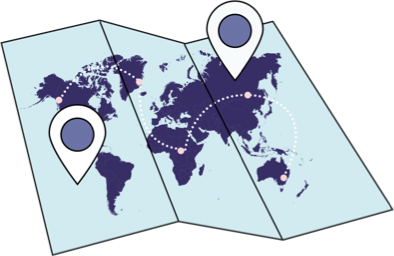
Expert itineraries
Suggested itineraries and routes to help you scratch beneath the surface, avoid the tourist traps, and plan an authentic, responsible and enjoyable journey.

Specialist advice
Get friendly, expert travel advice and custom itineraries from some of the world's best tour operators, with no spam, pressure or commitment to book.
Our guides are 100% impartial and are written by independent, professional travel journalists. We make money by charging carefully-screened travel companies to list their business on our website. Our advertisers have no influence on our editorial content and we never accept payment for positive coverage.
Read more about how we work and what we believe in here .
- Travel guides
- Work with us
Sitemap , Privacy Copyright © 2024 Horizon Guides

Your Guide to Tipping on Safari
Tipping on safari is not mandatory, but it’s a very good gesture of appreciation that significantly impacts the livelihoods of those working in the industry. It shows gratitude for the services provided and supports the welfare of workers and their communities.
In this guide, we provide you with essential tips on tipping on safari, who to tip, how much to tip, and other considerations to ensure the best tipping practices on your South African safari.
Table of Contents
Should you tip on an african safari, consider these two perspectives on tipping.
Guest perspective: Tipping can seem inconvenient or unclear when there are no set standards. Some travellers think lodges should just pay staff more instead. But increased wages would drive up trip costs, and safari fees already cover many expenses beyond just staff salaries.
Tipping is ultimately voluntary based on the service received, not an obligation. There’s no requirement to tip if you choose not to.
The staff perspective is very different. Tips provide recognition for long work hours, time spent serving away from family, and behind-the-scenes efforts by staff that go unseen by guests enjoying the vacation.
Why Safari Tips Matter
Excellent service should be the motivator if you decide to tip anyone.
For staff coming from remote rural villages far from the lodges, tips can provide vital supplementary income to support extended families back home. Tips often help cover certain needs that can be hard to meet on modest salaries alone.
Hardworking staff are the backbone of an incredible safari experience. Tips are a way to acknowledge that extra effort.

Do's and Don'ts of Safari Tipping
Figuring out appropriate tipping practices on a safari adventure can be tricky since formal tipping standards don’t really exist. In Africa, tipping is a common practice to appreciate good service, though not strictly required.
Each lodge or camp follows its own approach. When you visit Mziki Safari Lodge, you can chat to our lodge manager to clarify any questions you may have.
How should tipping be handled?
Here are logistical tips for tipping:
- Research before your trip: Tipping practices can vary significantly across different African countries and regions. For instance, in South Africa, tipping is deeply ingrained in the culture, especially within the service and hospitality industry. Workers often rely heavily on tips to support their families. However, different countries may have different expectations. To avoid any confusion, it’s best to seek clarification from the lodge manager regarding the specific tipping guidelines.
- Consider the service received: Tipping amounts can vary based on the level of service received. If you have received exceptional service, it is customary to tip higher, whereas average service may warrant a lower tip.
- Tip discreetly: When tipping, it is best to do so discreetly to avoid any potential discomfort for the staff or other guests. A discreet handover or placing the tip in an envelope can help maintain a respectful atmosphere.
- Consider the entire staff: Tipping is not limited to just your guide or tracker. It’s important to also consider the other staff members who contribute to your safari experience, such as housekeeping and kitchen staff.
- Currency and denominations: Familiarise yourself with the local currency and have small denominations available for tipping purposes. This makes it easier to tip appropriately without having to worry about change. We encourage you to use xe.com for a reliable conversion to South African Rands and other African currencies, as you budget for your safari.
- Tip at the end of your stay: It is customary to tip at the end of your stay, as this allows you to consider the overall service received during your safari.
- Leave a review: In addition to tipping, leaving some constructive feedback about the staff and services provided can also go a long way in showing appreciation for their efforts.
Remember, tipping is a personal choice, and while it is customary in many African countries, it is not mandatory. It is always best to consider your budget, the level of service received, and the local customs when deciding on the appropriate tip amount.
Who to Tip and How Much
Guides who go above and beyond to make your safari memorable deserve special recognition.
A general benchmark is $10-$20 total per visitor per day. This gets allocated between your guide, tracker, chefs, and general staff. Don’t forget to budget extras for airport transfers, spas, and outstanding service. You can also change this to local currency to make things easier.
For a private, bespoke safari with dedicated staff, tipping higher amounts in the $15-$30 per day range is recommended. With a longer safari or special occasions like a honeymoon, tipping on the more generous end shows your appreciation.
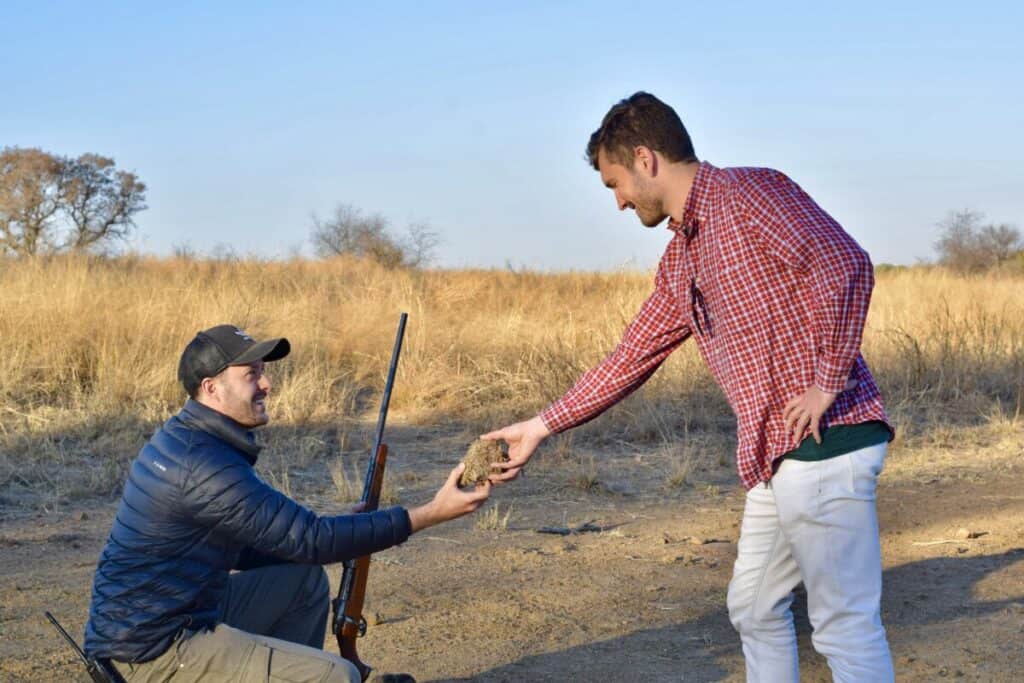
Addressing Common Tipping FAQs
Cash or Credit Card Tipping: The choice between cash and credit card tipping depends on personal preference. Tipping in cash is often preferred, but some lodges may facilitate credit card transactions. Discuss options with the lodge manager for a smooth arrangement.
Currency for Tipping: Tipping in local currency is advised for the ease of recipients. You can also tip in USD but remember that not everyone may have immediate access to a bureau. Also, Ensure you have small denominations to facilitate tipping without inconveniences.
Flexibility in Tipping: While suggested tipping amounts provide a baseline, there is always flexibility to tip as per your satisfaction especially when your safari experience was exceeded in your expectations.
Tipping for Private Safaris: In private safari settings, tipping etiquette may vary. You can consider the personalised nature of your experience and safari duration to adjust tipping amounts accordingly.
How to Tip in Groups: When travelling in a group, you must coordinate your tipping. Group members can decide whether to pool tips or tip individually based on the level of service received.
Travellers can enhance the impact of their tips on the welfare of workers and their communities by considering the economic context and local customs.
Tipping on safari is very much appreciated as a gesture of your gratitude. By following lodge guidance, tipping fair amounts, and recognizing outstanding service, you show respect for local culture and support community welfare. Doing this will ensure that your tipping practices have a meaningful impact.
Remember, tipping is a personal choice, and the most important aspect is to show genuine appreciation for the hard work and dedication of the safari staff.
If you’re looking for an outstanding safari experience where your tips can directly benefit the local community, consider visiting Mziki Private Game Reserve . Nestled less than two hours from Johannesburg, Mziki Safari Lodge offers traditional game viewing combined with meaningful community upliftment initiatives.
Contact us today to start planning your safari at Mziki Safari Lodge!
Related Posts
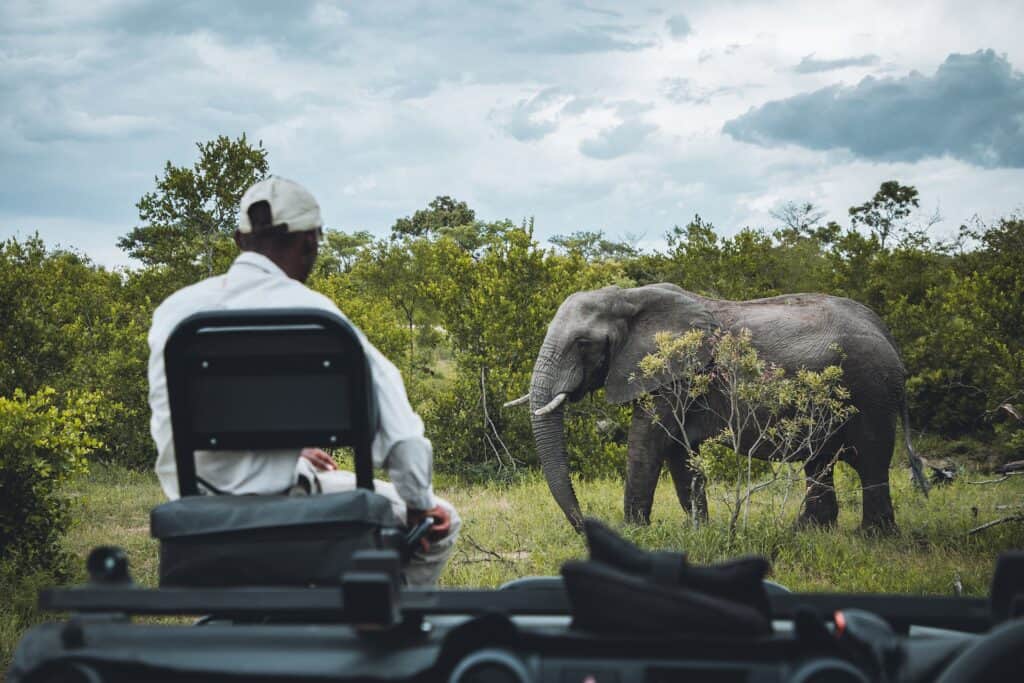
- January 8, 2024
Best Game Reserves in South Africa For You
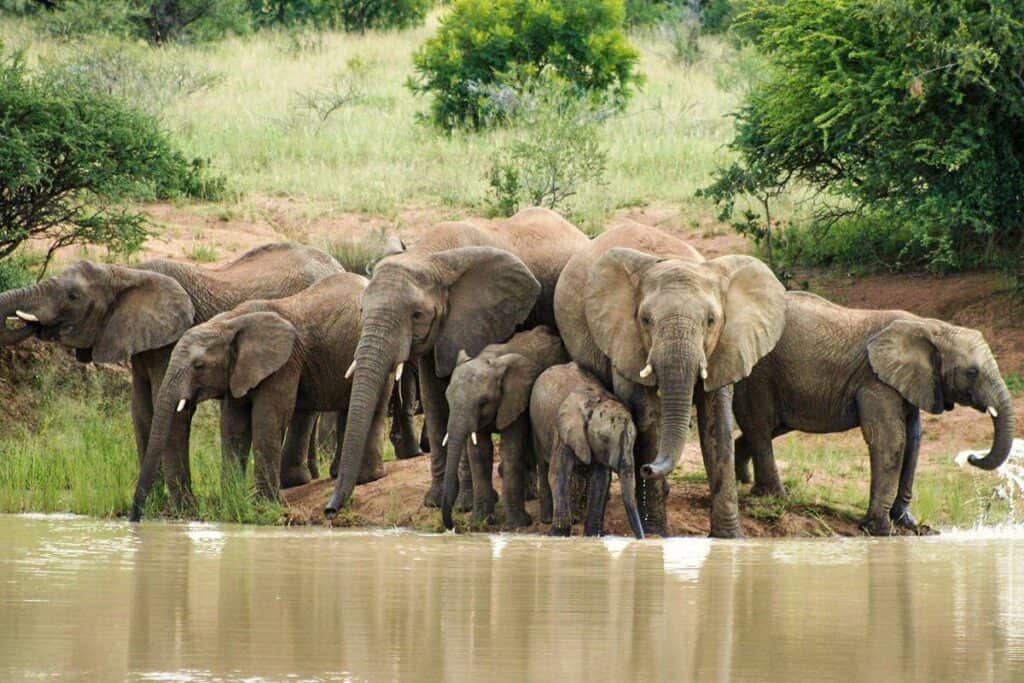
- January 4, 2024
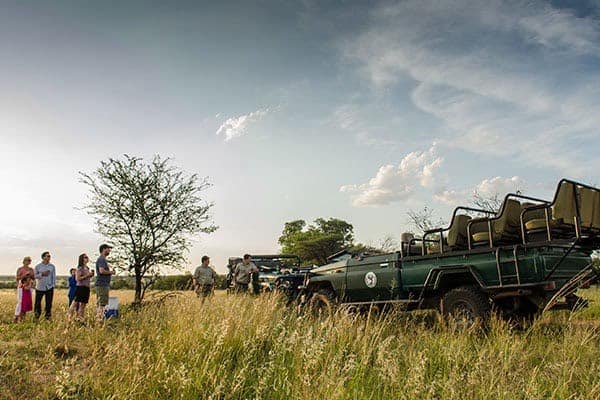
- December 6, 2023
Safari North West Province: Where To Stay And What To Do
Join our newsletter.
Enjoyed reading through our blog article? We are always writing new articles, join our newsletter to receive them directly to your inbox.
I agree to subscribe to the Mziki newsletter.

Subscribe to our newsletter.
- (27) 82 902 2058
- [email protected]
- Mziki Safari Lodge, Valkopdam Area, 2060, South Africa
© 2023 Mziki Safari Lodge
Website by Kalulu Marketing
More Information

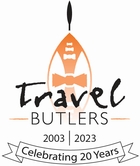
- Client Login
Call Us: 01483 266725
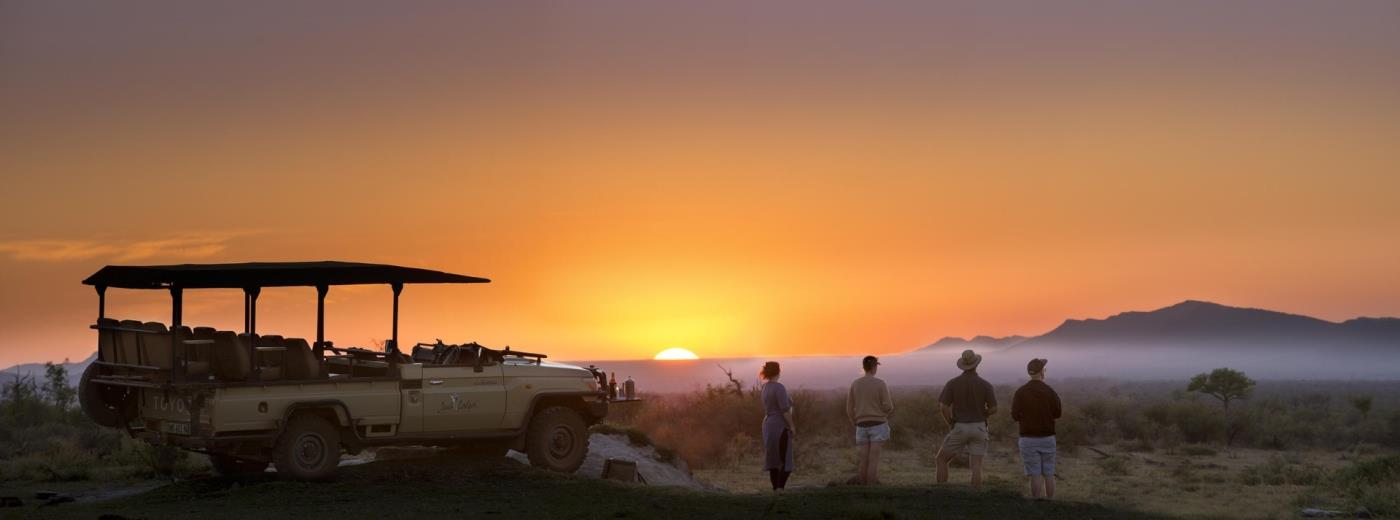
What to expect from a South African Safari Lodge

Typical Activities and Daily Programmes
The safari lodges in the private game reserves and the National Park concessions offer what most visitors agree is the best all-round safari experience.
Most lodges offer a fully inclusive rate, which includes outstanding accommodation, all meals, and morning and afternoon guided game drives in 4x4 open safari vehicles each day. Some may also include unlimited drinks or other activities such as guided walks, but whatever is included, there are 2 elements that you will be certain of, wherever you stay - the hospitality and the service. The lodges all go to incredible lengths to make sure that their guests feel welcome and comfortable, and nothing appears to be too much trouble for your hosts.
In terms of a recommended length of stay, a minimum of 2 to 3 nights is ideal. This gives you time to relax into the experience, get to know your fellow guests, and gives you at least 4 game drives to enjoy the wildlife.
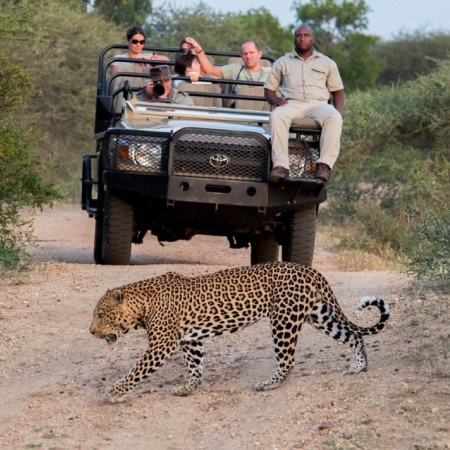
Your Guide and Tracker
Your guide (and tracker if the lodge use them) are highly knowledgeable about the bush and the animals, and will be more than happy to share their knowledge with you and answer any questions that you may have. The guide drives the vehicle and will give you information about the animals, birds and other points of interest you see, and the tracker usually sits on a chair right at the front of the vehicle and specialises on spotting and tracking the animals.
All the game drive vehicles are in radio contact with each other, so whenever something exciting is spotted or tracked, everyone else in the area is notified of its location.
Only 2 or 3 vehicles are allowed at any one sighting at a time, so don't get too impatient if you have to wait your turn, or be too disappointed if your guide asks if you are ready to leave the sighting after a while to let another vehicle come in.
05:30 - Morning Wake up, Game Drive and Breakfast
Each day is very structured, and this can feel quite regimented to begin with. Early morning game drives begin with a wake up call at around 05.30, and from then on, your entire day is meticulously planned out for you.
After a refreshing cup of strong coffee and biscuits to help you fully wake up, you leave on the first game drive of the day at around 6am. If the coffee hasn't woken you up yet, the crisp morning air certainly will!
Depending on what there is to see, the game drive is normally 3 to 4 hours long, and most times will involve a brief stop for another cup of coffee and a chance to get out of the Land Rover and stretch your legs.
When you return to the lodge, a delicious breakfast will be waiting for you - normally buffet style, followed by a cooked offering if you are still hungry!
09:30 - Between Game Drives
After breakfast, the next few hours are yours to spend as you wish. The lodges generally all have their own waterholes, and watching a herd of elephants drinking or wallowing a mere 10m away is a lovely way to relax between game drives and eating!
Of course, if you have a private pool in your room then this is the perfect time to have a dip and soak off the dust and escape from the heat!
Whilst this time is your own to fill as you wish, many lodges also offer a guided walk on foot to explore the African bush with your guide or tracker, which usually lasts for about an hour. Walking in single file, you will be introduced to how to spot tracks in the sand or mud, the uses of many different types of trees, and much more.
If you are extremely lucky, will come across wildlife such as impala, giraffe or even rhino. Don't worry, though - your guide or tracker will be armed with a gun, just in case the animal you stumble across happens to be a agitated lion - but this adds to the excitement and anticipation of what you may see on your adventure.
If you have the chance to go on a bush walk, make sure that you take a sunhat and some water with you, as walking through the bush in the late morning sun is hot and tiring - but definitely worth the experience.
Lunch is generally served from 13:00 to 15:00 and then there is time for a quick chill before the safari excitement begins again.
16:00 - Afternoon Game Drive and Sundowners
Your afternoon game drive will normally depart around 16:00, sometimes earlier depending on the time of year. Some lodges will serve tea and cakes before you depart, just in case you didn't eat enough at lunch and you are still feeling a bit peckish!
It is often very warm when you head out on the afternoon drive, but you should still take a fleece or other warm clothing as it will feel chilly on the back of the moving vehicle one the sun goes down.
At dusk, your guide will normally stop at an open area, and unpack the cooler box and offer you a sundowner. There is something magical about enjoying a cold beer or chilled glass of wine while standing beside your Land Rover, watching the sun setting over the African bush.
The game drive will usually continue for an hour or so after sundowners, giving you the chance to look for leopards, lions and other nocturnal animals. You generally return to the lodge for dinner at about 20:00.
20:00 - The Evening Dining Experience
Most lodges will try to vary the setting for the evening dinners to give guests a varity of different experiences.
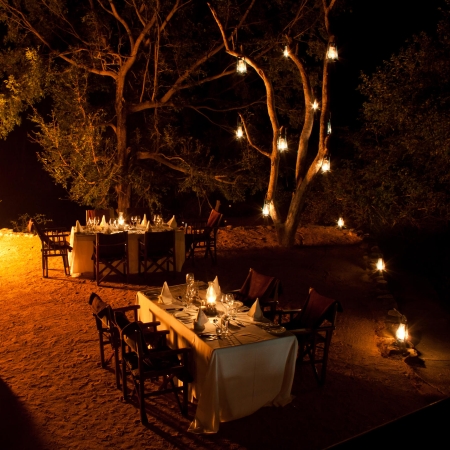
For the dining room and boma dinners, many lodges will seat everyone on the same tables, giving you the opportunity to really get to know your fellow guests. Chatting about your game drives and sightings during the day with your fellow guests is a perfect way to round off the day, and a great feeling of camaraderie soon begins to exist between everyone.
Some lodges, especially the more expensive ones, prefer to seat guests on individual tables, but they are always happy to seat people together if you would prefer.
For special occasions, or just to have a bit of a change, many lodges also ofer the opportunity to have dinner in your room or on your private deck. This really can be wonderfully romantic and is highly recommended for honeymooners and other romantic types.
It is customary to tip your guide and tracker when you leave, and also leave something for the housekeeping/general staff members, especially if they have done an exceptional job of looking after you. The best currency to tip in is South African Rand.
The lodges normally leave envelopes in your room, so the amount you give is not on 'general view' to everyone else. Many lodges will leave guidelines in your room as to what they feel is an ‘appropriate’ tip, but if there are no guidelines given, we would suggest the following tipping levels:
Your Ranger - by the end of your stay at the safari lodge, he or she will probably be your new 'best friend'. And of course you want to thank them profusely for having shown you the best ever lion/leopard/elephant/rhino sightings in the entire history of mankind. However, there is no need to go overboard and give them the equivalent of a month’s salary (even if you CAN afford it) as this could set a level of expectation that future guests just could not match - a recommended tip is around ZAR 150-200 per person per day. Any tip should be given to your ranger at the END of the entire safari trip (so not after every game drive!), and it is normal to discretely 'slip' some folded notes from your palm to his/her palm as part of your 'goodbye and thank you' handshake.
Your Tracker – he will have proved himself to be invaluable, as he will no doubt have spotted things that the normal human could never hope to see – a chameleon on the lowest branch of a tree on the way back to the lodge at night, or a leopard hiding behind a rock – but again, tipping too much would be inappropriate. We would suggest work on around ZAR 50-100 per day and again, the discrete handshake when you say your goodbyes is the time to give them the tip.
Housekeeping/General Staff - if they have kept your room spotless and have served you every mealtime with a brilliant beaming smile, then a tip is certainly a nice gesture. Most lodges will have communal tip box where you can 'post' your total tip as you check out, and all the tip money is then pooled and shared between the relevant staff members - an acceptable tip level is about ZAR 100 per room per day.
Obviously, tipping is completely optional and what you leave is totally at your own discretion - we would also stress that you should never feel pressured into leaving a tip that you are not comfortable with.
A Guide to Tipping in Africa
:max_bytes(150000):strip_icc():format(webp)/anoukmarrakech-56a373305f9b58b7d0d20299.jpg)
Tetra Images/Getty Images
Tips are an important thing to get right when traveling to Africa . For most porters, safari guides, and drivers, tips make up a significant percentage of their salary. Over-tipping is less of a problem than under-tipping, especially given the economic stress many working Africans endure in order to put food on the table, buy school uniforms, and afford decent medical care.
Read on to find select tipping guidelines to help you budget the right amount of money to bring on a trip to Africa.
General Tips
When traveling, it's a good idea to keep a supply of small bills (either in US Dollars or the local currency of your destination). Making change is always difficult, especially in more far-flung destinations. Always give the tip directly to the person you wish to reward for services. For example, if you wish to tip housekeeping, don't hand your tip over to the front desk and expect it to get to the right person.
Generally, cash is more appreciated than goods, as it gives the receiver the freedom to spend their money as they see best. If you would rather give a gift , make sure that you do so responsibly.
Meals and Drinks
Tipping 10-15 % is a normal tip for good service at restaurants and in bars. Most waiters earn an incredibly basic living wage so tips are a much-needed supplement and an appropriate reward for good service.
If you're just buying a beer or a coke, it's fine to leave the change rather than a specific tip. If you're dining with a large group at a nice restaurant, a service charge will usually be added to the check automatically so be sure to review the bill before adding an extra gratuity.
Service Staff
If you are staying at a luxury safari camps there will often be a general tipping box at the front desk or reception. Tips deposited here will usually be spread evenly between camp staff; so if you want to tip someone specifically, make sure to do so directly. At budget hotels, tips for housekeeping are not expected but are nevertheless always welcome.
As a general guide, tip:
- $1.00 per bag for porters
- $1.00–$2.00 per day for hotel staff
- $3.00–$5.00 per day for personal butlers, trackers, drivers
- $10.00 per day for professional guides and/or drivers on your trip
- $5.00–$10.00 for guides on one day or half day tours
- $1.00–$2.00 for airport/ hotel transfer drivers
- 50 cents–$1.00 for gas station attendants
While service-providers in many African countries will gladly accept US Dollars, it is sometimes more appropriate to tip in the local currency. In South Africa , for example, tips should be given in Rand.
Mountain Trek Staff
If you're planning to climb Kilimanjaro or go on other mountain treks in Africa , your booking company should be able to advise the appropriate tipping amounts. For a quick budget estimate, expect to spend 10% of the cost of your trek on tips. This usually translates at around:
- $15.00–$20.00 per day for a guide
- $8.00–$10.00 per day for a cook
- $8.00–$10.00 per day for a porter
Taxi Drivers
When tipping taxi drivers, the norm is to round up the final fare and leave the driver with the change. If the driver has gone out of his way to help you, has stuck with the metered fare (if the meter is working), or if the trip is over 30 minutes, consider tipping around 10%.
When Not to Tip
Although it's good to be generous, especially in countries where poverty is a major problem, there are situations in which it's best not to tip. For example, children in Africa are often forced to spend time on the streets rather than in school in order to pick up tips (or handouts) from tourists. Unfortunately, paying them money only perpetuates the problem, depriving them of the education they need to make a living in the future.
If you want to help street children or reward them for an act of helpfulness or kindness, consider buying them a meal or grocery items, or donating school supplies instead of giving them money.
Similarly, if you experience an act of spontaneous kindness from an adult that you think should be acknowledged, ask your guide if it's appropriate to tip. While cash is often appreciated, it's possible that offering money could cause offense. In this case, offering to buy a cool drink or a meal could be more appropriate.
If the service has been bad, or if a tip is demanded and you feel you are being taken advantage of, you don't have to tip. Tipping is a reward for good service in Africa as it is everywhere else in the world.
A Guide to Tipping in India
A Guide to Tipping in Asia
A Guide to Tipping in Portugal
A Guide to Tipping in Thailand
A Guide to Tipping in Ireland
A Guide to Tipping in Nepal
Your Trip to Rwanda: The Complete Guide
A Guide to Tipping in Mexico
A Guide to Tipping in Norway
A Guide to Tipping in Canada
A Guide To Tipping in Hawaii
Guide to Tipping in Las Vegas
A Guide to Tipping in China for Organized Tours
A Guide to Tipping for Travelers
A Guide to Tipping Hotel Employees
A Guide to Tipping in Japan
African safari tips: how much should you be tipping on a safari?
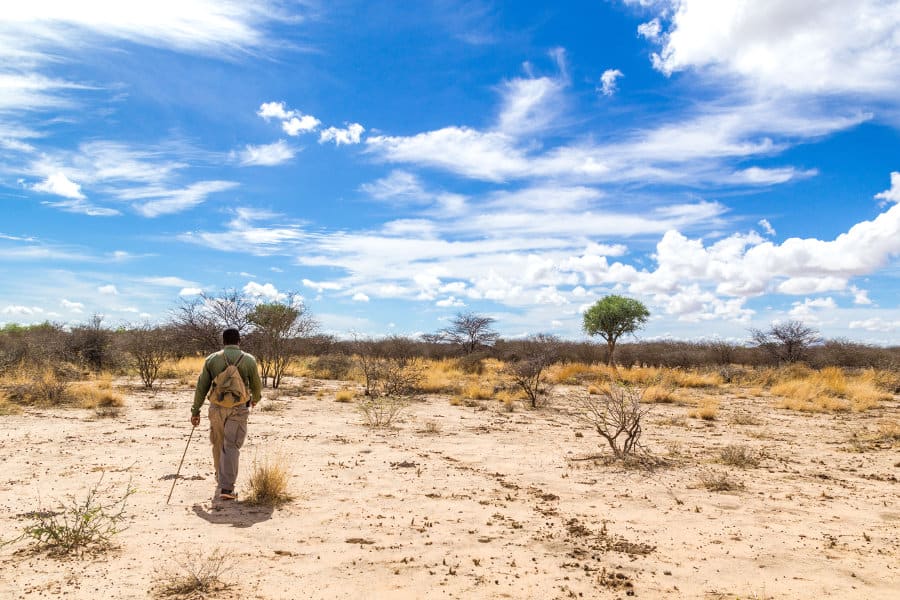
In many countries, tipping is a normal part of any dining experience. When the check arrives, everyone knows adding a tip is the right thing to do . After all, your waiter contributes to a positive experience during a night out.
You wouldn’t leave your waiter without a tip, and the same should be true to the friendly staff who make your adventure in Africa enchanting.
Your safari guide plays a huge role in having a once in a lifetime experience in the bush. Whether they’re zipping along dirt roads to find your favorite wild animal or parking alongside river beds so that you can spy upon bathing elephants.
Waiters , spotters , and trackers also play a role in making your safari experience a magical one. When you’re on your next great adventure, consider tipping your local guide with these guidelines in mind.
Tour Guide Gratuities: Yup, It’s a Thing!
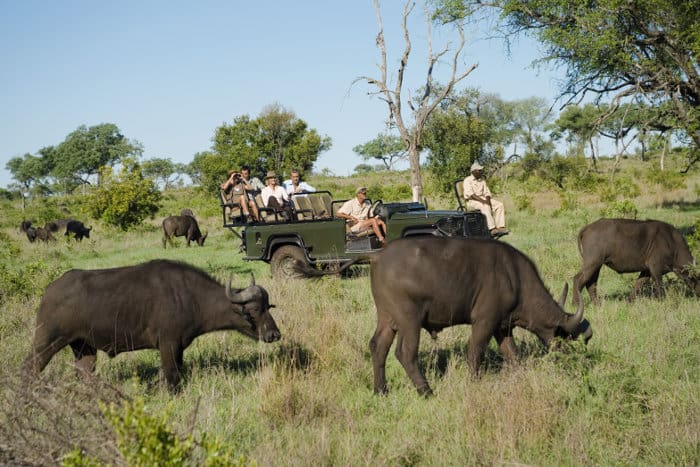
Safaris allow you to sleep under a bed of twinkling stars, and the chance to spy cheetahs and their cuddly cubs . Marching elephants and roaring lion sightings are all made possible with a safari.
Safari guides lead you through the plains of Africa to search for animals you’ve only dreamed of seeing. They’re highly trained and knowledgeable so that your safari experience isn’t just magical, it’s educational too.
Game rangers and guides can answer all your questions and wonderings about wildlife. Perhaps you’ve always wondered how fast a hyena can run ? Or what the largest snake in Africa is? They’re incredibly up-to-date with wildlife facts that’ll make your safari experience even more memorable.
While safari tours can end up costing quite a bit, you’re paying for the privilege of untouched wilderness and the luxury of your neighbors being a herd of grazing impala .
Although tipping isn’t compulsory on a safari, it’s always appreciated. After all, guides take care of all of your needs while you’re embarking on game drives from 5 am to 9 pm. And back at the camp, chefs, drivers, and waiters are doing just as much to ensure you can kick back and soak up all the beauty of the bush.
Tipping on a Safari: General Guidelines
Tipping your safari guide and camp staff contributes to them earning decent living wages. It’s not included in your prepaid safari, meaning the tipping is completely up to you .
Before heading to your safari destination, it’s a good idea to exchange your currency for the local currency. Tour guides generally accept cash over EFTs, so it’s worth your while to carry an amount of cash for tipping .
Being in a new country can bring about some confusion as to how much enough really is. The best way to think about tipping is to give as much as you can ; when have you ever regretted tipping someone too generously?
Here are some rough guidelines for how much gratuity is appropriate in the iconic safari destinations in Africa. The recommended tips are based on group tours, private guides, and the welcoming staff at your lodge or camp.
Tipping in Tanzania
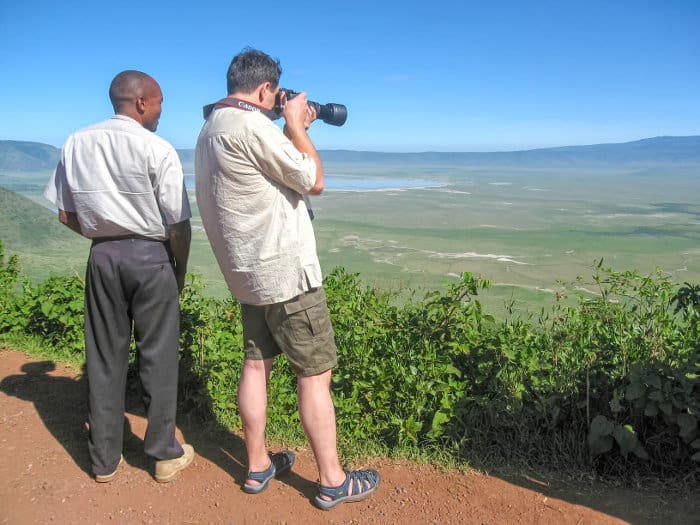
Tipping in Tanzania can have a significant impact on the economy and the livelihoods of your guides. The currency is the Tanzanian Shilling , although US dollars are also accepted.
- Group game drive or walking tour per day: US$8-10
- Private game drives and guide per day: US$15-20
- General staff per day, per person: US$1-5
Tipping in Kenya
As a popular destination for safaris, camps and lodges in Kenya are exceptional, so tipping is a common way of showing your appreciation. Tipping in the local currency, Kenyan Shillings is always preferred.
- Group game drive or walking tour per day: US$10-15
- Private game drives and guide per day: US$12-15
Tipping in South Africa
Tipping your guide in South Africa based on the knowledge and expertise they displayed is a good start. For the general staff at camps and lodges, shared tips work well.
You can tip staff in the South African Rand .
- Group game drive or walking tour per day: US$9-15
- Private game drives and guide per day: US$10-17
Tipping in Botswana
Botswana Pula is the local currency in Botswana and the preferred currency. The average GNI (Gross National Income) in Botswana is around US$17.84 per day, which is about an eighth of the US GNI. So your tip can go a long way in this country.
- Group game drive or walking tour per day: US$10
- Private game drives and guide per day: US$10-15
- General staff per day, per person: US$1-3
Holiday Tipping Guideline
Tipping in many African countries is a way for those in the service industry to receive an extra source of income. Here are some extra tips about tipping.
Wondering when to tip?
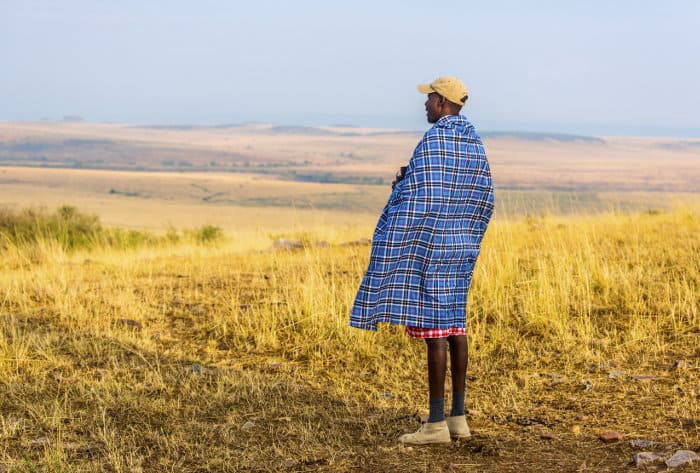
The best practice for tipping is to save the tip for the end of your safari . Receiving a tip at the end of each excursion can put a lot of pressure on your guide to perform. It can also leave other guests in a precarious position and might disrupt the balance of the tour.
Show your gratitude by tipping the person directly
Depending on your camp, there may be a gratuity box . This generally goes to all staff, but there may be cases where you wish to tip a particular person. Tipping your guide directly is a great way to show your appreciation for their hard work.
If you’re in doubt, stick to 10%
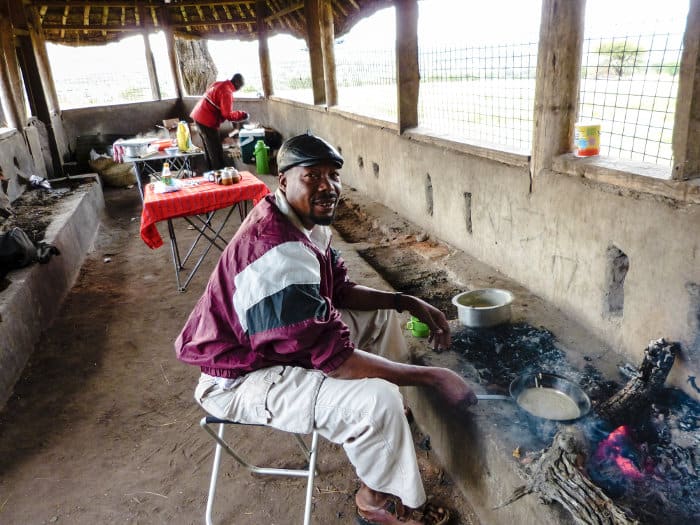
If you’re unsure about how much to tip, you can always refer back to the general 10% rule . Tip your guide a 10% amount of the actual tour, and there will be smiles all around.
African Safari Guide to Tipping
Travelers are often left with the question of how, when, who, and how much to tip for a vacation at a safari lodge or camp. Tip staff as you would in any other industry service – based on how great they made your overall escape in the wild .
Has the idea of a safari stolen your heart? Be sure to check out these safari deals and specials before heading on your next African adventure!
About The Author
Editorial Team
Related posts.
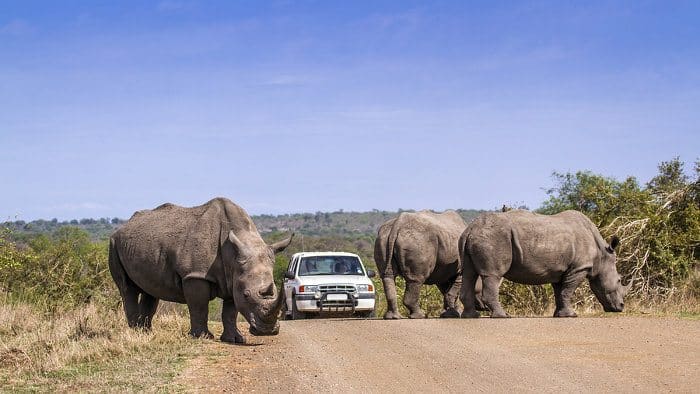
10 “lekker” ways to go on safari like a South African
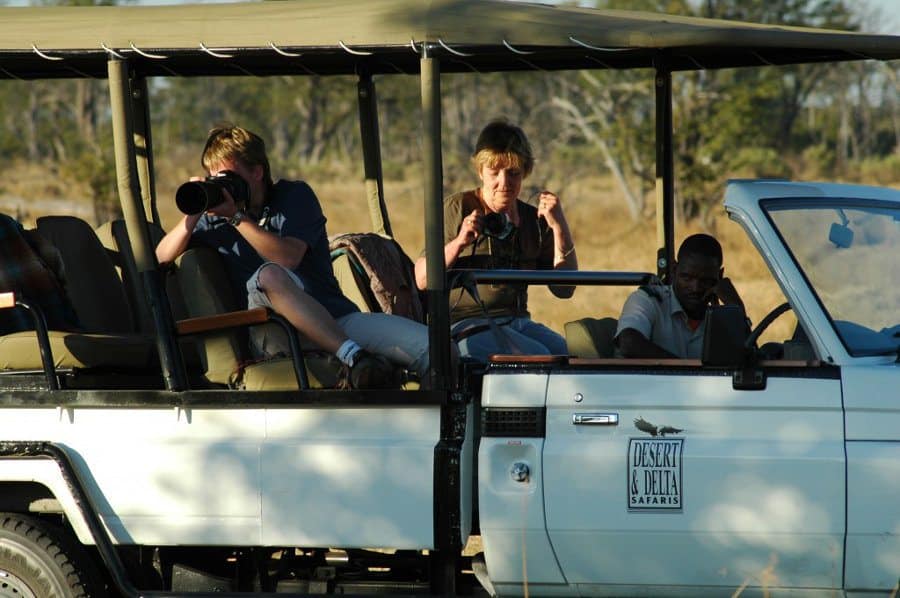
8 essential tips for an unforgettable African safari
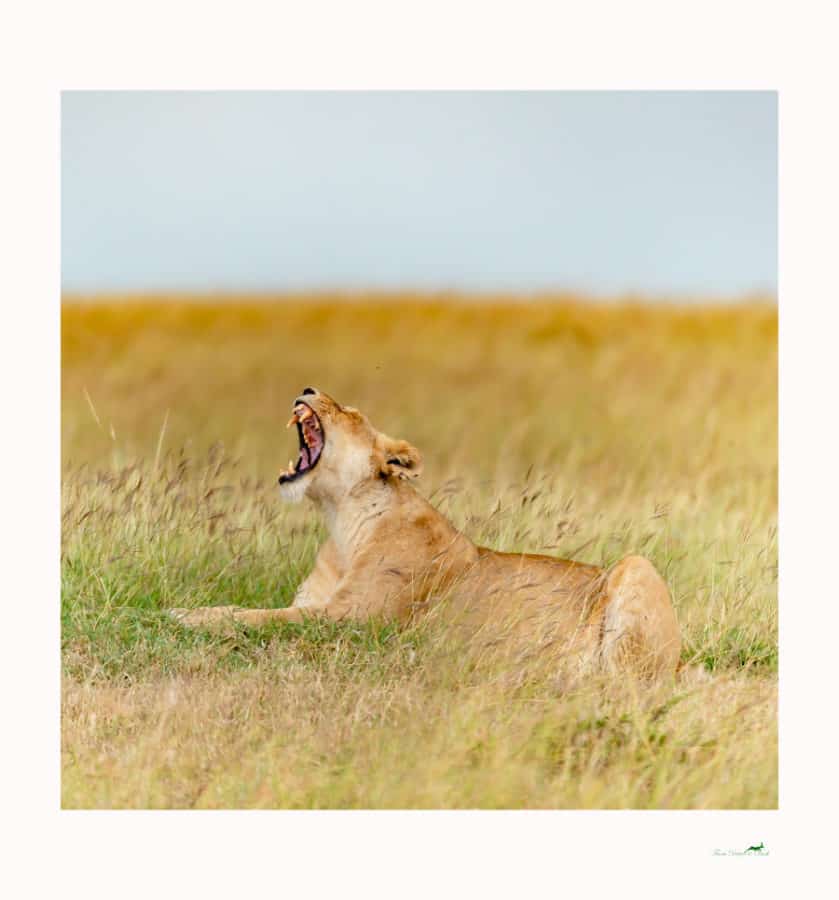
African safari simplified: Africa for beginners
Leave a comment cancel reply.
Your email address will not be published. Required fields are marked *
- Indian Ocean Islands
- Cape Winelands
- Garden Route
- Kruger National Park
- KwaZulu-Natal
- Gorilla Trekking
- Great Migration
- Family Travel
- Accommodation
- Traveller’s tales
- The Bucket List
- Postcards From Africa
- Cape Town Restaurant Guide
- Cape Winelands Restaurant Guide
- Johannesburg Restaurant Guide
- Special Features
- Our Home Safari
- Africa’s Photographer of the Year
- Photography & Videos
- Let’s start planning
Your Guide to Tipping in Africa
Travel Tips
0 comments
Planning a trip to our home continent but unsure about tipping in Africa and what’s acceptable? When travelling to new destinations , you can expect other customs and expectations, and Africa is no different. Here’s our overview guide of what you should consider tipping to show appreciation to all the incredible staff who makes your journey memorable.

Africa will welcome you with open arms, Image Credit: Singita
Had the best experience but unsure what the best practice is when it comes to tipping in Africa? Well, in Africa, tipping is customary, but it's definitely not obligatory. You can tip whatever you're comfortable with, depending on the type and level of service you receive.
However, if you feel like showing your appreciation and need some guidance, here's what we recommend our guests to tip when travelling to our continent.
Tipping on Safari
The staff at safari lodges collectively make your stay as magical as possible. A lot of work goes in behind the scenes to make everything look so flawless! Here’s what to consider tipping each staff member for their efforts.

Your safari guide and tracker make the safari experience special
Safari Guide
Your safari ranger or guide will spend a lot of time with you, rising super early to take you on those morning game drives and heading home late after your afternoon or night safari. They have a wealth of knowledge, and a good guide really makes all the difference.
We recommend you set aside about $25 (R475 or €23) per couple per day for tipping your safari ranger.
Safari Tracker
Your safari tracker will accompany the ranger on the game drive vehicle but has a different role. They are experts at finding even the most elusive animals, so that they can show you all the wonders of the African animal kingdom.
You should consider tipping about $20 (R380 or €19) per couple per day to say thank you to your safari tracker.

Smiling faces, sterling service, Image Credit: andBeyond Ngala Safari Lodge
Safari or Hotel Butler
Your safari or hotel butler will become your best friend, always at your beck and call and ensuring your drink is expertly mixed just the way you like it.
You can expect to tip your safari or hotel butler $18 (R340 or €17) per couple per day for their efforts.
Safari Lodge or Hotel General Staff
The general staff at a safari lodge or hotel ensures everything is polished, from the facilities to the experience.
We suggest you tip them around $18 (R340 or €17) per couple per day for all their hard work.
Exploring the City
Venturing out in an unknown city is much easier if you’ve got a clued-up local to show you around. When dining out in a new city, there are also different expectations around tipping.

Enjoy a food tour through Bo-Kaap in Cape Town to taste Cape Malay cooking, Image Credit: Craig Howes
City Tours: Half-Day Guide
You will likely go on at least one half-day tour with a guide when exploring our beautiful Africa. They will drive you around and accompany you to all the incredible attractions you visit.
For a half-day guide, we recommend tipping $10-15 (R190-285 or €9-14) per couple.
City Tours: Full-Day Guide
A full-day guide will spend an entire day with you, so we recommend tipping $15-20 (R285-380 or €14-19) per couple for a full-day guide.
Restaurants and Bars
In Africa, patrons are generally expected to tip at least 10-15% of their bill. If you’ve had a spectacular experience, feel free to tip more, but this is the general norm.

Africa is home to several excellent foodie destinations, Image Credit: Delaire Graff
Travelling in Between
Are you heading to the airport, a new lodge, or a restaurant for dinner? Your lodge or hotel will often arrange a road transfer driver for a fuss-free, comfortable journey.
Road Transfer Drivers
We suggest you tip road transfer drivers anything between $5-10 (R95-190 or €4-9) per couple per trip.

Your welcoming party to Africa
We Are Your African Travel Experts
At Rhino Africa, you’re never left to your own devices. We ensure you know exactly where to be, when and what you’ll be doing. We also ensure there’s a welcoming party ready to accompany you!
All our tours are tailor-made, meaning no two travel itineraries are exactly the same. Just like no two people are the same, right? To us, it just makes sense. However, there’s a common misconception that booking tailor-made tours is more expensive… well, with us, it’s not!
We offer our valued guests the best price guaranteed , and we’re able to do so because we’re located in Africa, so cut out the middleman. We also contract the best rates without making compromises (it helps to know the right people!), and our itineraries are generally 5-15% cheaper than booking directly or through an international agent.
In fact, we’re so proud and confident about this that if you can find a better price for the same holiday, we’ll beat it.
Join us in Africa
Ready to come to Africa? We can’t wait to plan your dream African safari. Contact our Travel Experts today, and let’s start planning!

Plan your African Safari today
Opens our enquiry form

Based on 3000+ reviews
You may also enjoy
Private game reserves: why we choose them every time, serenity in the wilderness: wellness retreats in africa for 2024, our top african travel trends for 2024.
About the author
Tania de Kock
Tania has always been an avid reader, which ultimately led to her life-long dream of becoming a best-selling author. She loves travelling, super spicy food, South African wine, and cats! When she's not reading with a glass of wine, you can find her at the nearest beach or camping, running or hiking in the mountains.
Session expired
Please log in again. The login page will open in a new tab. After logging in you can close it and return to this page.
Privacy Overview

Tipping in South Africa Guide | When and How Much to Tip in South Africa
Sunny South Africa, the rainbow nation. It is a thriving country with so much to offer and a diversity of cultures that sets it apart from its African neighbours.
Famous for its spectacular landscapes, you can’t dismiss the stark contrast between the arid deserts of the Kalahari and the lush Garden Route that winds around a wild coastline, opening the doors to varied topography.
It’s one of the main reasons why tourists every year make their way to visit and why understanding some of the standard practices and expectations, like tipping in South Africa, can go a long way.
It’s not only South Africa’s beautiful beaches and landscapes that draw people to its lands, but the famous Big Five and the countless other wild animals you will see on game drives and conservation reserves.
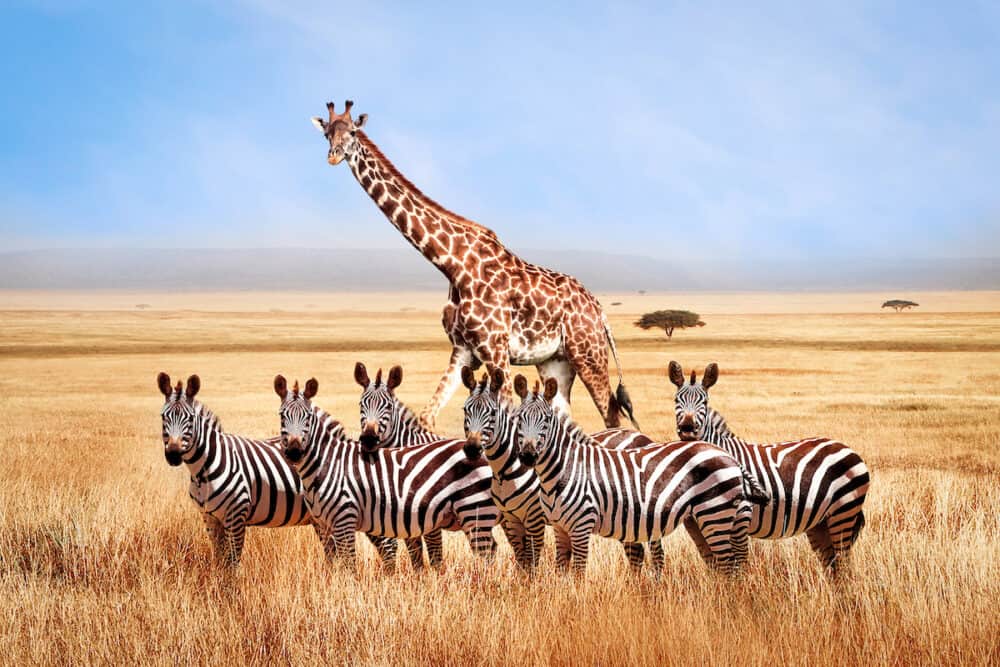
It’s the impeccable food and wine this country offers and the history behind everything you see. It is the welcoming, friendly people you will meet and the pride in their eyes for the land they love.
These people go out of their way to provide the best and most efficient experience, which is why the tipping culture is so influential.
The wages vary in South Africa; highly skilled professionals in fields like medicine, engineering, law, and information technology can earn substantially higher wages than the minimum. Salaries for skilled workers often reflect international market rates.
In contrast, workers in low-skilled jobs, such as agriculture or general labour, typically earn wages closer to or slightly above the minimum wage. South Africa’s economy has faced many challenges, including high unemployment rates, which can impact wage levels.
Due to the lack of jobs in the country, South Africans rely on tipping since it makes up a large portion of their salaries, making it a common practice for locals and tourists.
Below is a detailed guide, helping you break down the process of what each industry requires when it comes down to South Africa and tipping:
Plan your trip?
Avoid hidden fees in the exchange rate while withdrawing from millions of ATMs abroad, paying in restaurants and shops, and buying your accommodation and flights using the Wise Card . You can hold up to 40+ currencies at once to spend in in over 150 countries, and convert them in real time with the free Wise app.
Need help planning your trip from start to finish? Check out these helpful links:
- Cheap flights
- Savings on accommodation from hostels to luxury hotels
- Affordable car rental options
- Affordable sightseeing tours and day trips
- Travel Adapter – All in one so you don’t have to carry a bunch around
This post contains some affiliate links for your convenience. Click here to read my full disclosure policy.
Table of Contents
Are you expected to tip in South Africa?
Tipping is a common and expected practice in South Africa for many service-related professions. It’s a way to show appreciation for good service. It is an essential part of the income for many workers in the service industry.
While tipping is customary, it’s generally not mandatory, and the exact amount can vary depending on the circumstances and your level of satisfaction.
Aim for a simple 10% of your final bill regarding tipping etiquette. Places like restaurants, bars and tour guides often expect some tips, which are only sometimes required in other industries.
In places like Cape Town and Johannesburg, you will notice it’s customary to tip car guards and petrol station attendants, especially those who have gone out of their way to help you.
This is common worldwide, but due to the lack of employment options, locals had to make a plan and assisting people in parking and leaving seemed a popular choice.
Always use your discretion, and if you need clarification on the appropriate tip amount, you can ask the service provider for guidance or recommendations.
Ultimately, tipping in South Africa is a way to acknowledge good service and support those in the service industry. Still, it should be based on your satisfaction and the quality of service received.

What’s the easiest way to give a tip in South Africa?
Cash people! It is always cash. Do not be surprised when the car guard at the Mall suddenly whips out a small Yoco machine and expects his R5 to help you escape a tight situation.
One of the best South African tips I can provide (since I am a South African myself) when it comes to gratuity is always having some loose change lying around your bag or back pocket for the moments you need a little extra.
Tipping at places like restaurants, hotels, bars, and large businesses usually prefer tips through card transactions by adding gratuity. Still, in South Africa, it’s best to have some backup cash for the lone-standing tip jars and change buckets.
While digital payments are becoming more common, especially in urban areas, cash remains the most straightforward and widely accepted method for tipping here in South Africa.
It’s good practice to have some flexibility and adapt to the payment methods available in the specific area or region you’re in anywhere you travel.
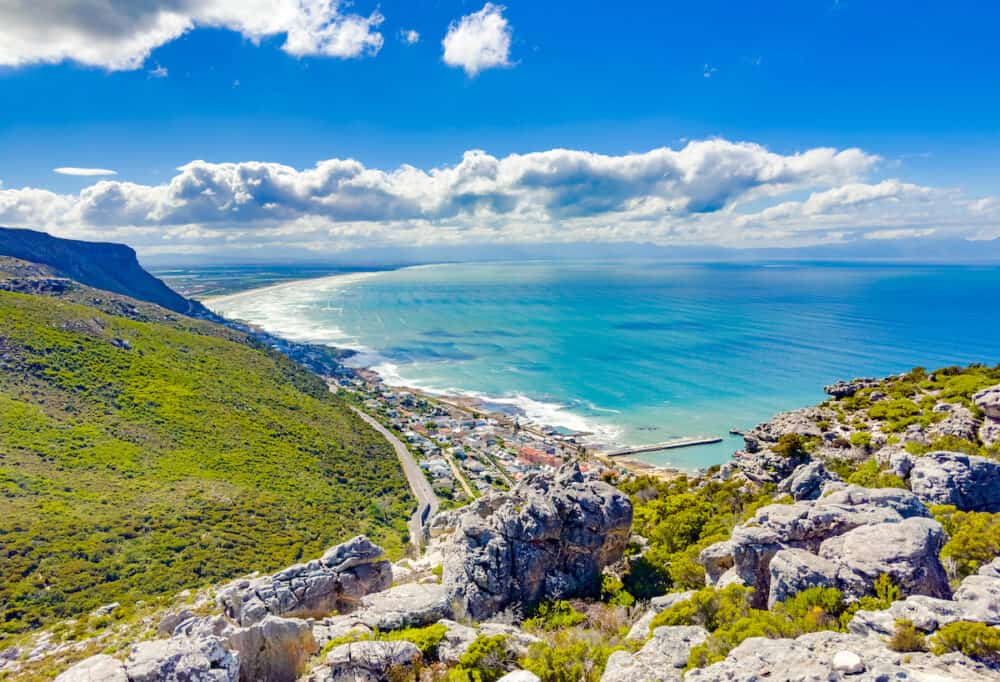
When and How Much to Tip in South Africa?
Knowing when and how much to tip wherever you travel is vital since this allows you to budget and be prepared.
In a country like South Africa, especially places like Johannesburg, Cape Town and Durban, it’s common to tip small change wherever you go to acknowledge the service and show appreciation. If you are unsure how much to tip, the minimal amount is 10%.
Knowing when to tip is pretty straightforward, so like most places, the tipping happens once the service is finished and you are satisfied as a customer.
It changes depending on the industry, but when paying a bill or settling a transaction, you can round up the total amount to the nearest convenient amount. For example, if your bill is 120 ZAR, you can pay 130 ZAR and let the service provider keep the change as a tip.
In cafes, bars, and restaurants, you may find tip jars near the counter or at the cashier, where you can drop your tip in the pot.
Tipping hotel staff in South Africa is similar to most hotels and tour operators, who generally provide envelopes for gratuities. You can place your tip in the envelope and hand it to the designated staff member.
When it comes to understanding how much to tip game rangers in South Africa and other industries you need to get used to, this guide will help you with all the details and assist in your budget preparations.
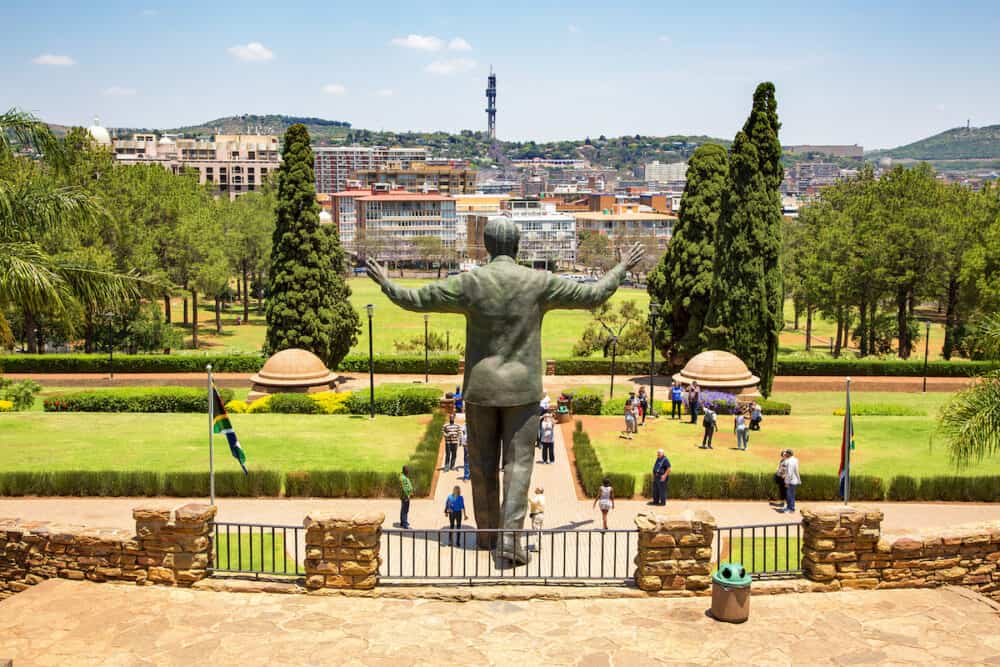
Can I tip in USD in South Africa?
Many places worldwide accept the dollar as an internationally recognised currency, but can you tip in US dollars in South Africa?
The local currency used in this country is the South African Rand (ZAR), and you will find few (if not any) places in the country accepting dollars, euros or pounds.
You will most likely get a small side eye, a confused look and an apologetic smile explaining they don’t take any currency but the Rand.
Suppose they choose to accept USD and other currencies. In that case, the establishment must convert it into ZAR, which can involve additional fees and potentially less favourable exchange rates, resulting in a smaller amount for the business. ZAR is the only legal tender in South Africa.
On the other hand, paying and tipping at private game reserves or safaris will most likely accept USD since they work with many international clients, and if you don’t have any of the local currency, head to the closest bank with an ATM.

What Is A Reasonable Tip In South Africa
Tipping customs in South Africa are similar to many other countries, and what constitutes a reasonable tip can vary based on the level of service, the type of establishment, and personal preferences.
If you are still determining the amount, always aim for 10% or higher for any industry in South Africa.
Taxi & Uber Drivers
Regarding tipping in South Africa, metered taxis and Uber generally expect a tip of at least 10% of the final amount. If they have helped you with heavy luggage or assisted you, add more.
In South Africa, we get many minibus taxis that many locals use whom you do not tip, but it is unlikely you would use one of them.
It’s important to note that tipping practices can vary among individuals and regions. If you needhelp with how much to tip, you can always ask the driver for their preference or use your judgment based on the quality of service provided.
Taxi Drivers:
In South Africa, it’s common to round up the fare or add a small extra amount as a tip. A tip of around 10% to 15% of the food is generally considered reasonable if the service is satisfactory.
You can adjust the tip based on factors such as the quality of service, route taken, and overall experience.
Uber Drivers:
Tipping Uber drivers is not mandatory, but it’s a courteous gesture if you are happy with the service. Many Uber passengers choose to tip in the app after the ride, where Uber allows you to select a predefined tip amount or enter a custom tip.
Typically, a tip of 10% to 15% of the fare is a reasonable guideline, but you can adjust it as you see fit.
Tour Guides & Operators
A common question is, “How much do you tip safari guides in South Africa?”
Regarding it, tipping tour guides in South Africa is the same as you would tip hotel staff. However, some feel they deserve more due to their knowledge and interaction with others.
The appropriate tip can vary depending on the tour length, the service level, and your satisfaction.
Full-Day Tours:
A standard tip for full-day tours, such as safaris or guided excursions, is around 10% to 15% of the total tour cost per person.
Suppose the time was exceptional or involved a lot of personal attention. In that case, you should be tipping toward the higher end of this range.
Half-Day Tours:
A tip of around 5% to 10% is reasonable for shorter half-day tours. Again, adjust the tip based on the quality of the tour and your satisfaction.
Private Tours:
If you’ve booked a private tour or have a dedicated guide, you should tip the higher end of the range as the service is personalised.
Group Tours:
In group tours, you can collectively tip the guide and support staff. Many tours have a tipping kitty where participants contribute, and the total is divided among the guides, drivers, and other staff.
Safari Guides:
Safari guides in South Africa often rely on tips as a significant part of their income. Guidelines for tipping safari guides can be higher, typically ranging from $10 to $20 per person per day for their services.
Additional Support Staff:
In addition to your guide, you might encounter other support staff on tours, such as drivers, trackers, and camp staff. Consider tipping them individually or contributing to a collective tip.
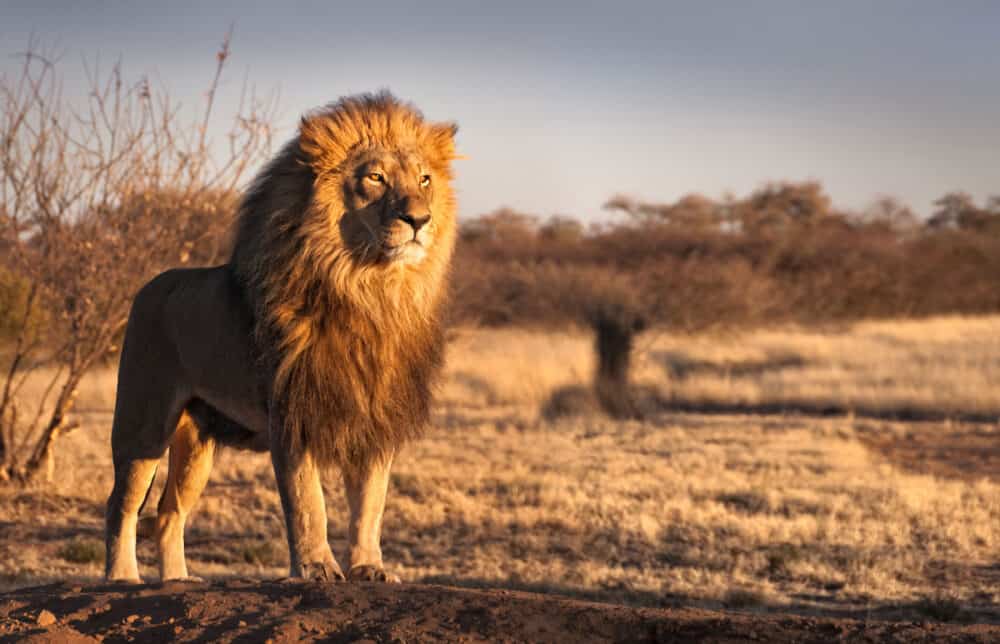
Spa & Wellness Places:
Tipping at spa and wellness places in South Africa is similar to tipping at restaurants; it’s a way to show appreciation for the services provided, and a tip for a local can go a very long way.
While some spas may allow you to add the tip to your credit card payment, it’s often more convenient to tip in cash directly to the therapist or staff members who served you. Before tipping, checking the spa’s policies regarding gratuities is a good idea.
Some resorts may include a suggested tip amount on the bill, while others leave it to your discretion.
You can ask the staff for guidance if you need clarification on the appropriate tip amount. They are typically familiar with local tipping customs and can provide recommendations.
Spa and Massage Services:
For spa treatments, such as massages, facials, or body treatments, it’s customary to tip between 10% and 20% of the service cost, which you can adjust based on the quality of the treatment and your satisfaction.
Salon Services:
If you receive salon services, like haircuts, styling, or manicures/pedicures at a spa or wellness centre, a tip of around 10% to 15% of the service cost is typical.
Spa Packages:
For spa packages that include multiple services or treatments, you can calculate the tip based on the overall package cost or individually for each service received.
Hotel Spas:
If you’re using the spa facilities at a hotel, check if a service charge is automatically added to your bill. If you need help, you can tip the spa staff individually based on the above mentioned guidelines.
Additional Staff:
In some cases, additional staff might be involved, such as attendants or therapists. Consider tipping them separately or contributing to a collective tip pool if provided.
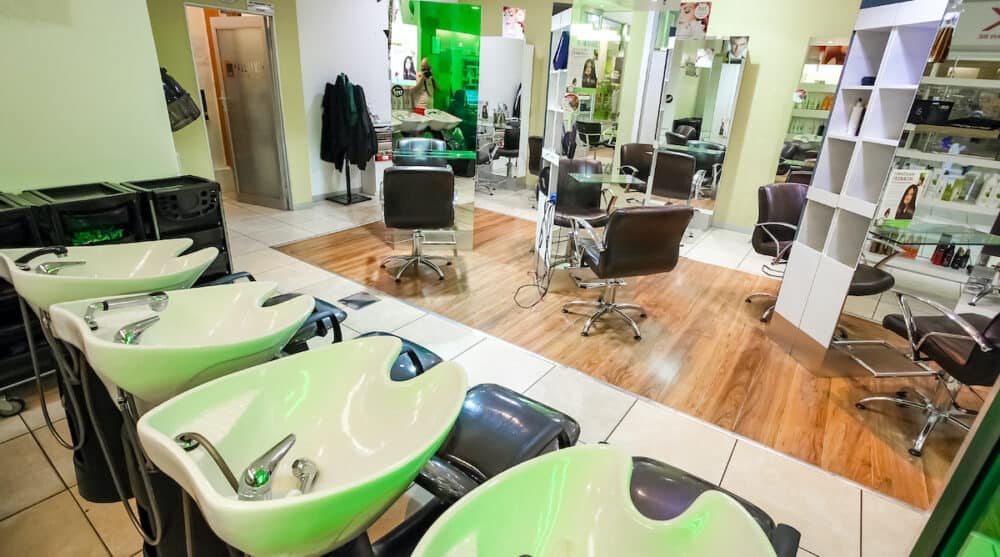
Hotel Staff
Each country has its different customs, and foreigners travelling to the Rainbow Nation have a common question that tends to make the rounds.
“How much do you tip housekeeping in South Africa?”
Tipping hotel staff in South Africa is a common practice and a great way to show appreciation for the services provided during your stay.
A lot goes on behind the closed door of your hotel room whilst it’s being cleaned, and you’d be shocked at what the cleaning crew and hotel staff have to go through with troublesome and problematic customers.
Tipping in South African hotels is highly appreciated since their tips make up a large portion of their monthly income, and any form of recognition for a service well done can impact someone’s day.
Porters:
Porters who assist with carrying your luggage to and from your room tend to receive a tip of around 10 to 20 South African Rand (ZAR) per bag. If you have a lot of luggage or if the porter goes above and beyond, you can tip on the higher end of the final amount.
Housekeeping:
It’s customary to leave a daily tip for housekeeping staff, especially if they clean your room daily. An amount of 20 to 50 ZAR per day is a reasonable guideline. You can leave the tip on the bedside table with a note to express your thanks.
Concierge:
If the concierge provides helpful recommendations, arranges reservations, or assists with other services, a tip of around 20 to 50 ZAR for each service they provide is appropriate.
Room Service:
If you order room service, adding a service charge to the bill is customary. However, if the service is excellent, you can leave an additional tip of around 10% of the total bill.
Restaurant Staff:
When dining at the hotel’s restaurant, the customary tipping range is 10% to 15% of the bill. Check your bill to see if a service charge has already been included.
Bartenders:
At the hotel bar, a tip of around 10% of the bill is standard, or you can round up the total to the nearest convenient amount.
Spa and Wellness Services:
If you use the spa or wellness facilities within the hotel, consider tipping the therapists or staff, as mentioned in the previous response, specific to spa and wellness places.
Valet Parking:
If you use valet parking services, a tip of around 20 to 50 ZAR when your car is returned to you is appreciated.
Front Desk:
Tipping the front desk staff is rare but still appreciated for exceptional service. You can provide a tip when they assist you with special requests or go out of their way to help.
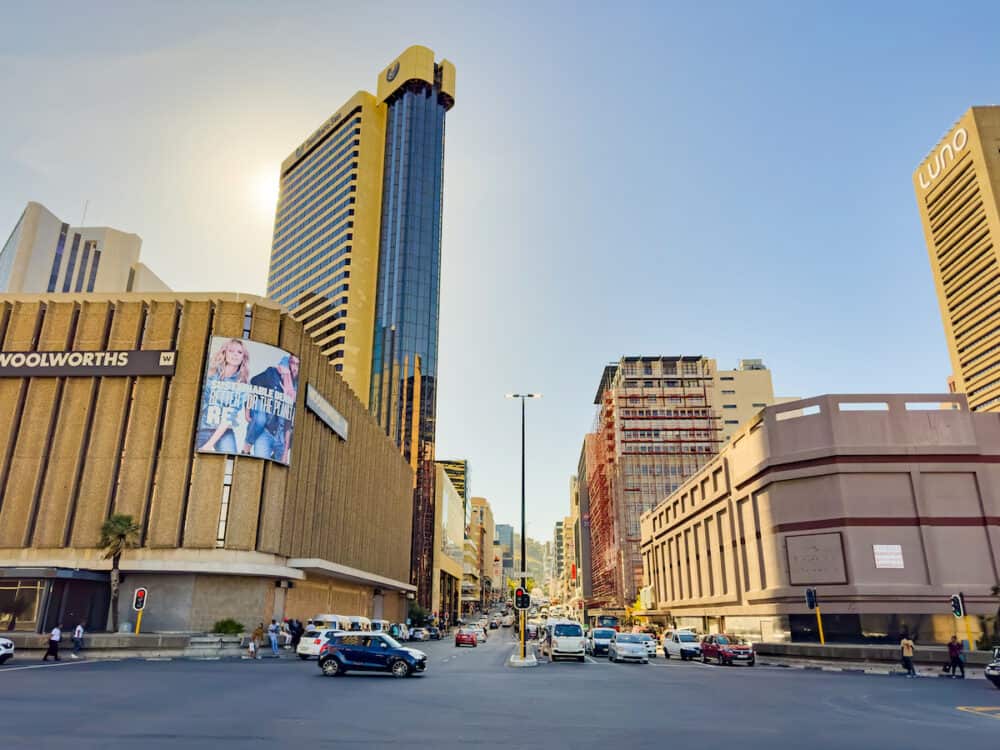
Cafes, Restaurants & Bars
Like many places worldwide, those who work at cafes, restaurants and bars rely heavily on their tips, and South Africa is no different.
In fact, from personal experience, people who work in these industries need their tips to make a workable living due to the low wages in South Africa, which is possibly why we are known for our excellent service.
Don’t be surprised to find yourself at a table with a very smiley waiter who has gone above and beyond to make you feel comfortable and present the best experience possible.
South Africa is known for delicious food and service at a very affordable price, and it literally takes $1 to assist and support a local here in SA.
Always check your bill to see if a service charge or gratuity has already been included. You can still leave an additional tip for exceptional service if it has.
Cafes:
In cafes, a tip of 10% to 15% of the total bill is customary if table service is provided. If you’re ordering at the counter and there’s no table service, tipping is less common but still appreciated, and you can leave some loose change in the tip jar.
Restaurants:
In restaurants, the general guideline is to tip between 10% to 15% of the total bill. Many restaurants in South Africa include a service charge or gratuity (often listed as a “service fee” on the bill), so check your tab before adding an additional tip. A 10% to 15% tip for good service is standard if service is not included.
Fine Dining:
In upscale or fine dining restaurants, where the service and experience are typically more refined, tipping on the higher end of the range, such as 15% to 20%, is customary.
Buffet Restaurants:
In buffet-style restaurants where you may serve yourself but the waitstaff still provides some services (e.g., clearing plates, refilling drinks), a tip of around 10% is appropriate.
Bars:
When ordering drinks at bars, it’s customary to tip the bartender between 10% and 15% of the total bill, especially if they provide table service or create specialty cocktails. For more straightforward orders like a single drink, rounding up the bill or leaving a small amount is common.
Splitting the Bill:
Consider tipping based on your portion if you’re in a group, and the bill is split. Each person can calculate their tip individually.
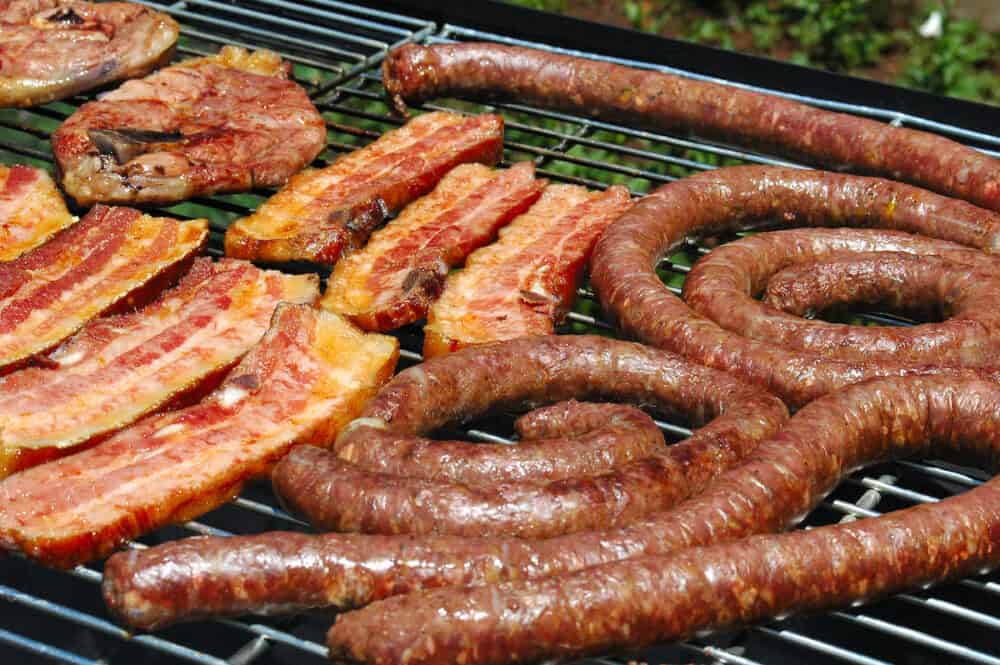
Food Delivery
I have always been one to tip food delivery drivers, in hand, just because I know how intense it can get and what they have to go through to get your food delivered, still warm.
From long distances to ridiculous weather situations, they get through it. Tipping food delivery drivers in South Africa is customary and even expected.
The weather here in South Africa can do multiple flips in a day, and even during heavy rainfalls and crazy winds, the delivery drivers are there fighting through it to get to their destination.
Tipping will be highly appreciated; like other industries, it makes up most of their monthly salaries.
Delivery Fee:
First, check if there is a delivery fee included in your order. Sometimes, the delivery fee may cover part of the driver’s compensation. If a delivery fee is included, you can still add a tip on top of it.
Percentage of the Bill:
A standard guideline for tipping food delivery drivers is to offer a tip of around 10% to 15% of the total bill. This percentage can vary based on factors like the distance of the delivery, the complexity of the order, and your level of satisfaction with the service.
Flat Amount:
If you prefer, you can also opt for a flat tip amount. Depending on your budget and the size of your order, a typical flat tip could be around 20 to 50 South African Rand (ZAR).
Consider Distance and Weather:
If the delivery driver had to travel a significant distance or weather conditions were unfavourable (e.g., heavy rain or extreme heat), you may tip a bit more to compensate for their effort.
Cash or In-App Tipping:
Many food delivery services allow you to add a tip in the app or when paying online. Still, you always have the opportunity to provide cash.
Prompt and Courteous Service:
If the delivery was prompt, the order was correct, and the driver was courteous, it’s a good reason to provide a generous tip.
Feedback:
If you have any special requests or the driver went above and beyond to ensure your satisfaction, consider acknowledging their efforts with a slightly higher tip.
Check the Restaurant’s Policy:
Some restaurants may have a policy on tipping delivery drivers, so be sure to inquire if there are any specific guidelines or recommendations.
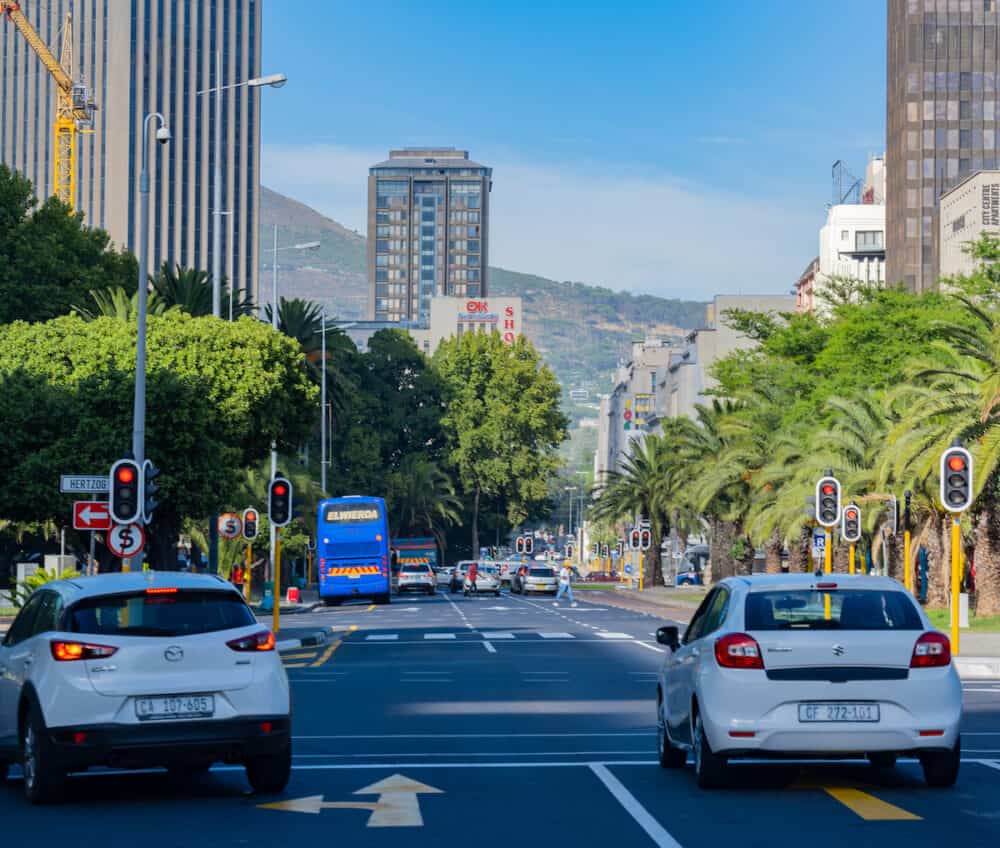
Street Vendors & Markets
Tipping street vendors or market sellers is a beautiful addition to whatever you have decided to buy. Still, honestly, people need to do it in South Africa.
Unless they offered a specific service and not just a product, then tipping is optional. Still, otherwise, it would be like tipping an ordinary shop attendant for their excellent skills in cashing up your products.
You may still find a tip jar hanging at different shops, but that’s more there for the gracious person who pops a couple of loose change inside.
While tipping isn’t the norm at street markets and with street vendors in South Africa, your approach should be flexible and considerate. It’s more about fair and respectful bargaining and maintaining a positive and friendly interaction with the vendors.
Ultimately, the decision to tip or offer additional payment should be up to you and the specific circumstances of the transaction.
Bargaining:
When shopping at street markets or dealing with street vendors, it’s more common to negotiate the price of the goods rather than leave a tip. Bargaining is an integral part of the buying process in many street markets.
Round-Up:
Suppose you want to show appreciation for the vendor’s service or are satisfied with your purchase. In that case, you can round up the final price to the nearest convenient amount. For example, if an item costs 40 ZAR, you can pay 50 ZAR instead.
Small Change:
You can also let the vendor keep the small change as a way of tipping, especially if the amount is negligible to you but can make a difference to them.
Exceptional Service:
If a vendor provides exceptional service, goes out of their way to help you, or offers additional assistance, consider giving a small tip or paying more for the item.
Local Customs:
Be mindful of local customs and norms. Sometimes, vendors may not expect or be accustomed to receiving tips, so it’s essential to respect the local practices and be sure they are happy with them.
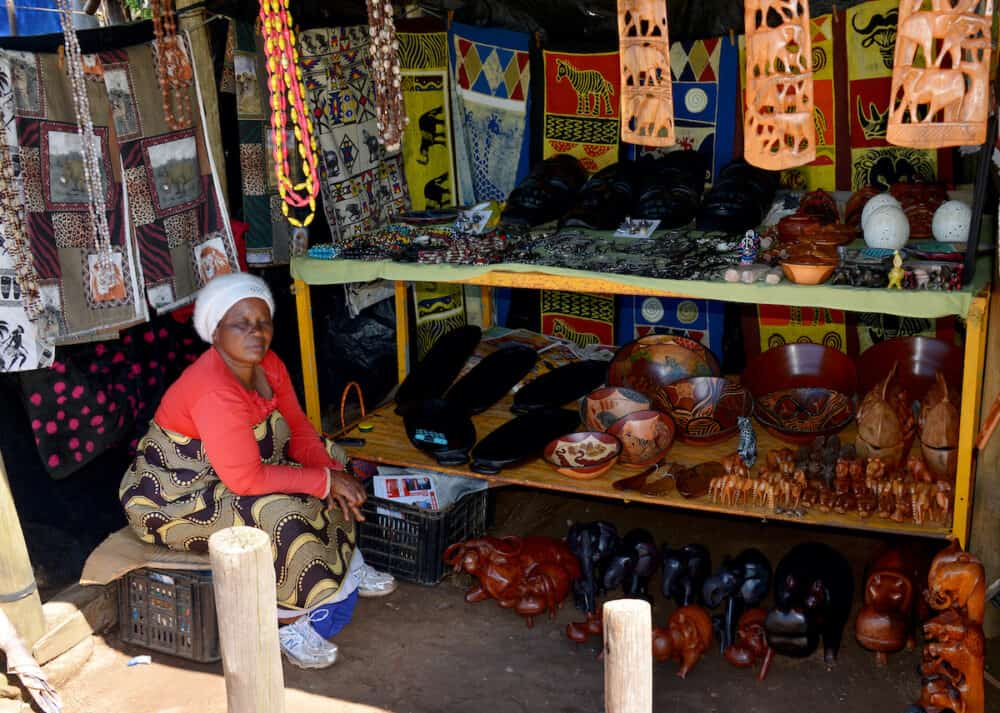
Airport & Hotel Porters
Arriving at an airport with all your luggage can be a whole situation. If it wasn’t for the helpful airport porter assisting me and my mess, it would have taken me much longer to make my way to the exit and find a taxi.
Tipping depends entirely on you, your preferences and the level of service provided, but tipping airport and hotel porters is a common practice and an appreciative gesture from you.
Again, these people do not receive a high salary, meaning tips are essential to their daily earnings. It also opens the doors to slightly pushy porters. Still, it is entirely up to you whether you want the help; all it takes is to decline respectfully.
Airport Porters:
Airport porters assist with carrying your luggage at the airport. A 10 to 20 South African Rand (ZAR) tip per bag is standard. If you have more cumbersome luggage, consider tipping on the higher end of this range.
Hotel Porters:
Hotel porters help with carrying your luggage to and from your room. A tip of approximately 10 to 20 ZAR per bag is customary. Consider a slightly higher tip if staying at a higher-end or luxury hotel.
Cash in Local Currency:
Tipping cash, preferably in the local currency (ZAR), is advisable. Ensure you have some small denominations on hand for tipping purposes.
Quality of Service:
Consider the quality of service when determining the tip amount. A higher tip may be appropriate if the porter is friendly, helpful, and provides efficient service.
Large or Heavy Items:
Suppose you have large, complex or heavy items that require extra effort from the porter, such as oversized luggage or special equipment. In that case, providing a more substantial tip to compensate for the additional work is courteous.
Multiple Porters:
Suppose multiple porters assist you during your stay (e.g., at the airport and the hotel). In that case, you can tip each one separately based on their service.
Gratitude:
When tipping, expressing your gratitude verbally is polite by saying “thank you” to the porter for their assistance.
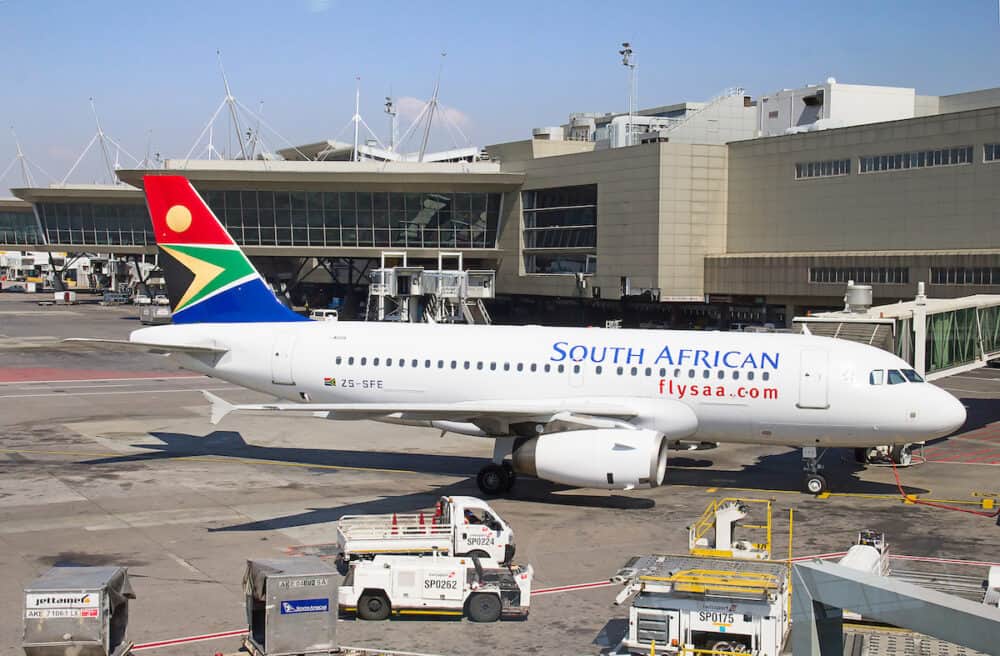
Car guards are worth mentioning in this article. It is suitable for travellers to be aware that in South Africa, we have many car guards everywhere in hopes of helping cars find parking, reverse out safely and watch over them in exchange for a tip for their services.
It became a growing factor when employment and homelessness became extreme a couple of years back.
Car guards in South Africa provide informal security services by watching over parked cars in public areas, such as shopping malls, markets, and entertainment venues.
While they don’t have an official salary and rely on tips from vehicle owners, there are no strict guidelines for how much to tip car guards. Tipping amounts can vary widely based on individual circumstances and location.
Be aware that certain car guards are not hired by official businesses, and you can work that out by the coloured government jacket they wear. Usually, it would be a luminescent green, yellow or orange, representing an official government worker.
Supporting ‘freelancing’ car guards is not recommended since they are not regulated, and some may work within gangs.
Official Government Car Guards:
These car guards wear the official government vest or jacket and only require a couple of coins in exchange for their services. It can range from a simple R2 to R10 and more for the level of service they provide. If you’re parking for an extended period, you might give a larger tip upon returning.
General Car Guards:
Many of us wish to support and help whoever we can when we can, but certain situations are up to your discretion. Reports have shown that giving money to unregulated carguards can increase drug and crime activity in different areas.
Still, if they did provide an excellent service to you, then there is no reason not to. Many people are wary because of these guards’ pushiness and high expectations.
Side note: If I found an unofficial car guard in the parking, before heading to my car, I would ask him first which car was mine, and that tended to help me decide whether they deserved any money from me.
As mentioned before, car guards typically prefer small cash or bills. Still, you will be surprised that many of them, especially in Cape Town, now carry small card machines for their services.

Tipping is an excellent way of showing your appreciation. In places like South Africa, the locals and residents heavily rely on gratuity as a primary form of income, which is why it is such a common practice.
People from places like Europe and America will likely find South Africa very affordable and tipping a couple of dollars, pounds or euros here. There can go an exceptionally long way for a local in South Africa and barely make a dent in your pocket or travel budget.
The question is, “to tip, or not to tip?”
Is South Africa A Good Place To Live?
Travel safety tips for south africa.

Katie, a dynamic travel expert and photographer, is dedicated to exploration and sharing her adventures through travel and lifestyle blogging. With a global perspective shaped by residences in Cape Town and beyond, she offers insights into off-the-beaten-path destinations and budget-friendly travel tips. Katie's expertise spans digital nomad living, travel planning, and empowering solo female travelers.
View all posts
Similar Posts

I’ve lived in South Africa for a long time, and it has been a fantastic journey so far. South…
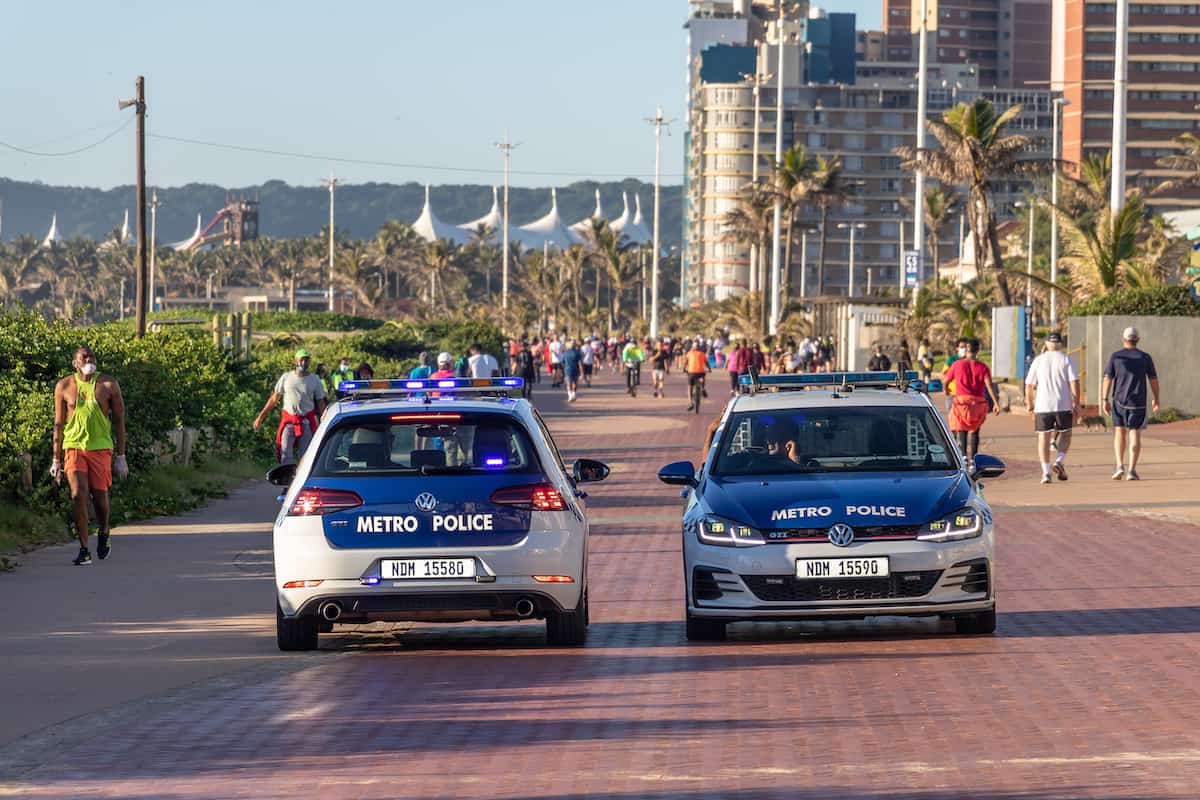
No matter where you decide to travel in the world, it’s always necessary to do at least some research…

How To Plan An Unforgettable African Safari, According To An Expert
A certified safari guide reveals key tips to planning the perfect African wildlife trip.
- Share on Facebook
- Share on Twitter
- Share on Pinterest
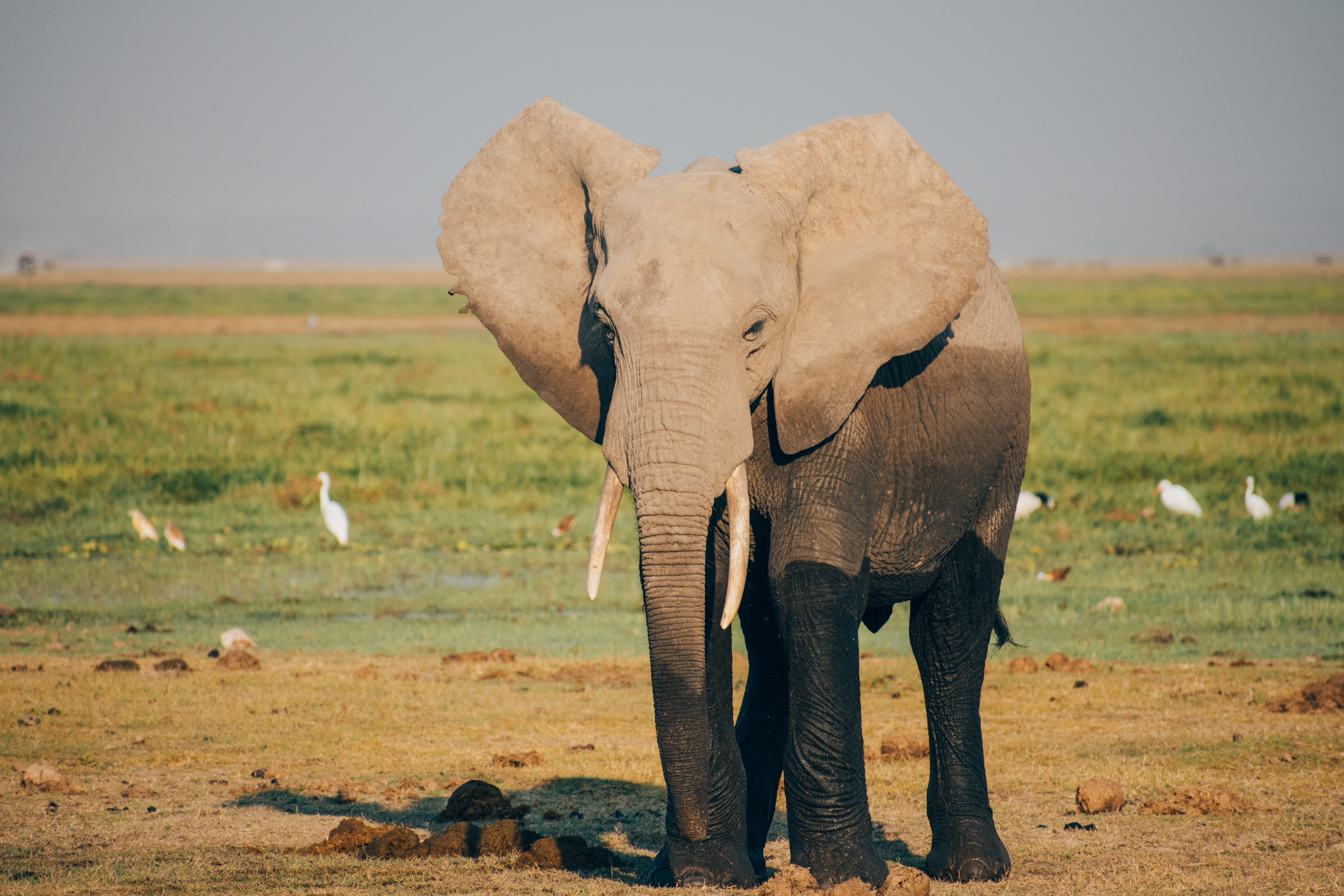
“I never knew of a morning in Africa when I woke up that I was not happy,” Ernest Hemingway famously said of his travels in Kenya and Tanzania. The legendary writer set off on a three-month safari in the summer of 1933 that ended up inspiring much of his work thereafter. Hemingway was notoriously well-traveled—but like most travelers finally ticking Africa off their list, a safari was unlike anything he had yet experienced.
Planning and executing an African safari is still considered a prestigious bucket-list item for many travelers, and it’s easy to see why. Where else will you get the chance to get up close and personal with a lion in its natural habitat or observe a family of elephants drinking at their watering hole?
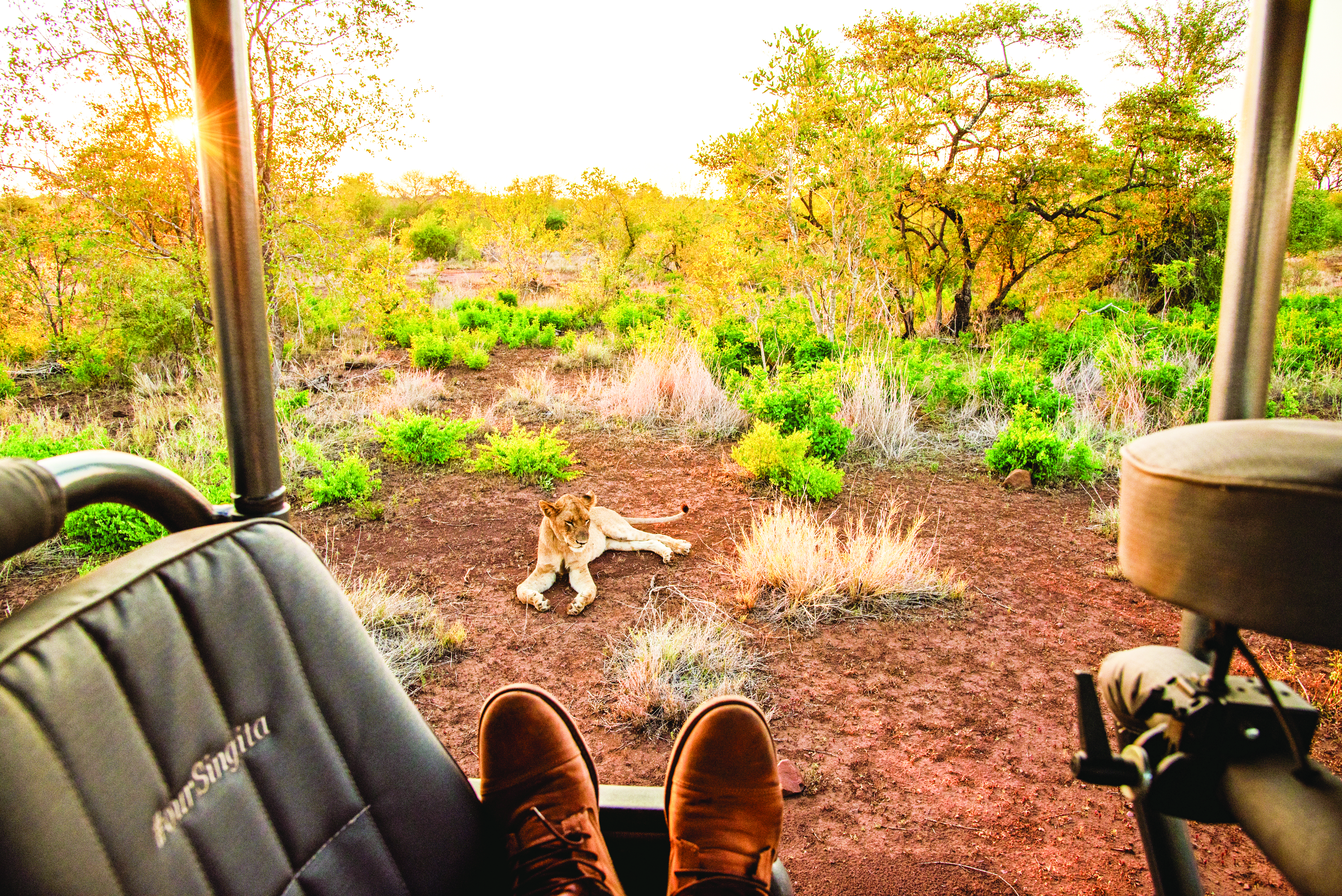
That said, planning a safari in Africa can be a daunting task; there’s a lot to take into account to ensure you’re booking the exact trip you want. We spoke to Jesse Hartig, a certified safari guide and Contiki tour manager to get his insights on exactly what travelers should anticipate and prepare for when planning a safari in Africa.
Here are Hartig’s top African safari tips, covering everything optimal animal sighting seasons to what what you should be packing in your rucksack:
Consider The Time Of Year
Being based in the Southern Hemisphere, South Africa has opposite weather systems/seasons when compared to the Northern Hemisphere. You need to decide if the season you’re planning to travel to this beautiful country fits your ideals, points out Hartig.
“Animals, especially large cats, can tend to be less active on hot summer days. This can sometimes also be uncomfortable for certain travelers to be out in the hot African sun during the safari,” explains Hartig.
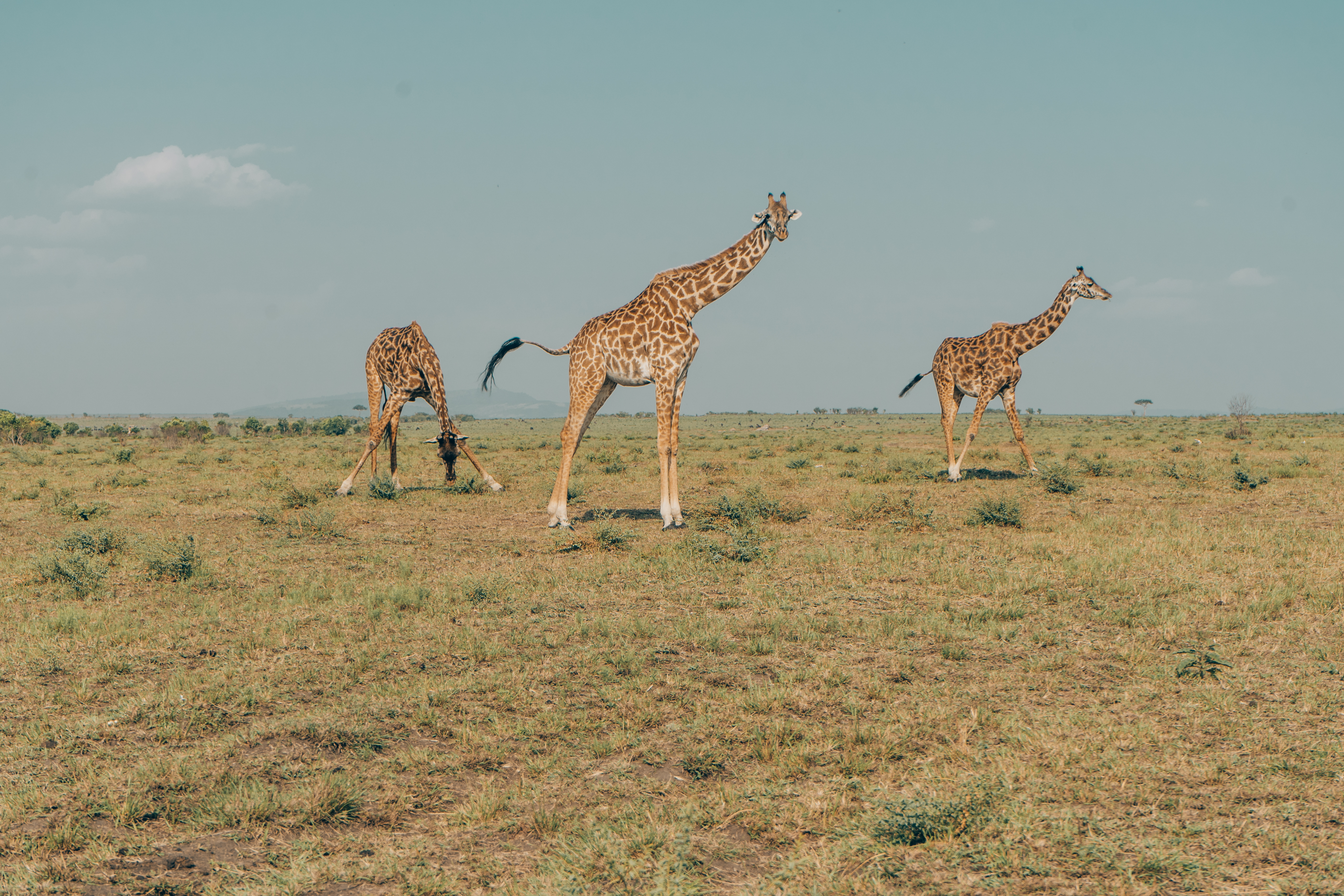
“The summer months are the most beautiful time of year as everything comes to life. You’ll see newborn young animals, especially antelope, and lots of beautiful birds gaining their colors that have been dormant throughout the winter months as they patiently wait prepare to attract their mates for breeding.”
Hartig pointed out that winter is known as the best time for safari as there are more moderate/milder temperatures and it is very comfortable to go out and look for game. “Keep in mind peak winter can bring cold mornings and evenings, but animals seem to be more active during the day as temperatures are not as high,” he explains.
“This is also a great time to optimize the chance of finding and viewing large cat species as the bush is not as thick as in summer and water is scarce, so the concentration of animals tends to radiate around the water sources in limited areas. There’s very little bug activity too.”
Plan What You Want To See & Do
This is a massive question you need to ask yourself: Are you a first-time safari goer? Are you looking to see specific species of animals or just trying to tick as many species off the list as possible?
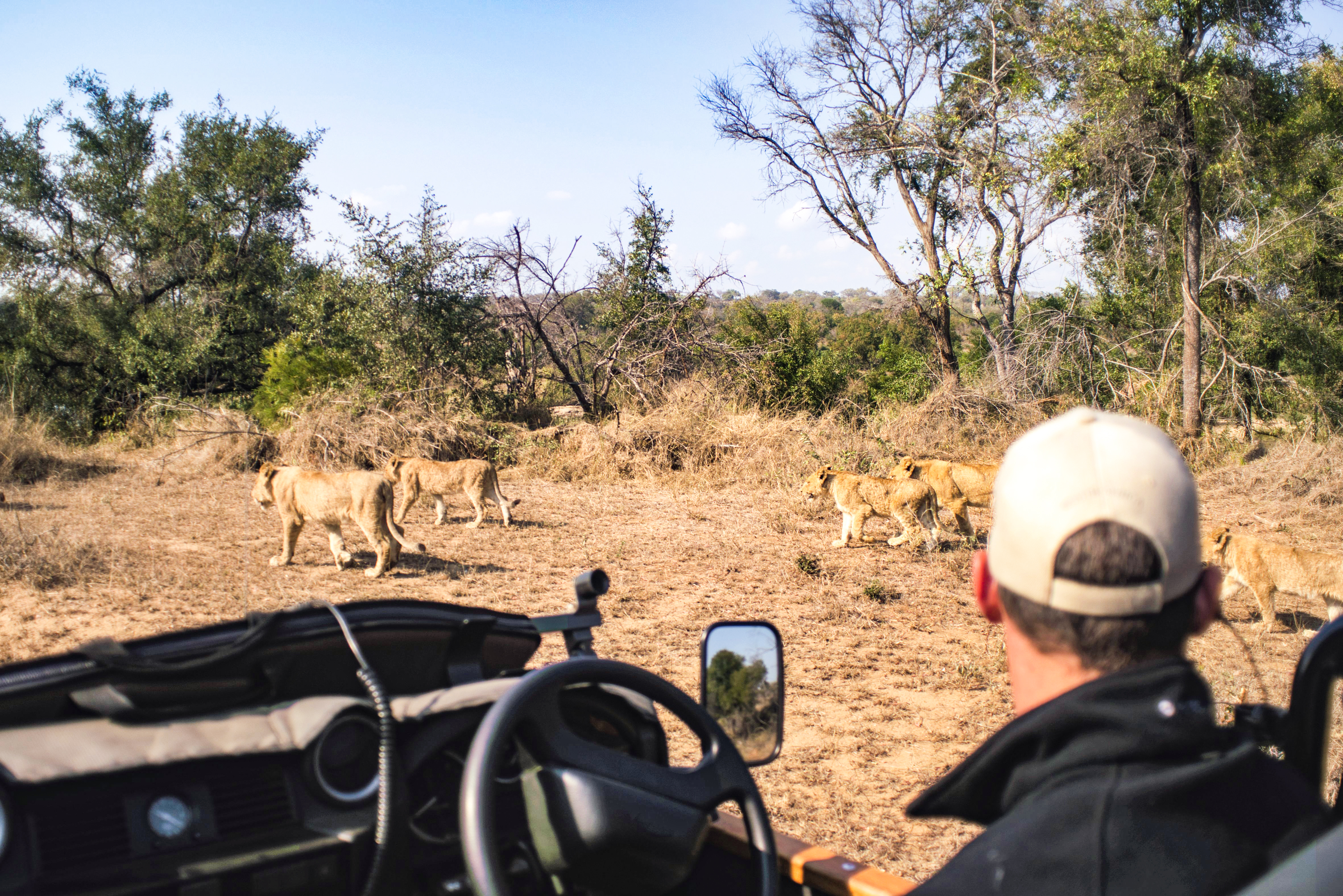
“Choosing where you go in Africa—whether it’s Southern Africa or East Africa—for the most part will provide you with the opportunity to see the big five along with many additional amazing species of animals. But each reserve in different geographical locations provides different opportunities, as some reserves lack certain species that others have but may have certain species of animals that are also specific to that region,” says Hartig.
If you are looking for something specific like the “great migration” of millions of zebra and wildebeest in East Africa, then time and place matter. This breathtaking stampede occurs year-round in a clockwise circle rotating through Kenya and Tanzania.
Potential safarists should also decide how many other experiences with food, culture and other activities they’d like to schedule. “If you are all about the safaris then East Africa is for you,” Hartig points out. “Southern Africa might be better if you want to experience other cultural experiences outside of wildlife.”
Pack Appropriately
You’ve probably seen folks on social media posing from Africa in ripstop and khaki—and there’s a good reason safari travelers opt for light-colored clothing.
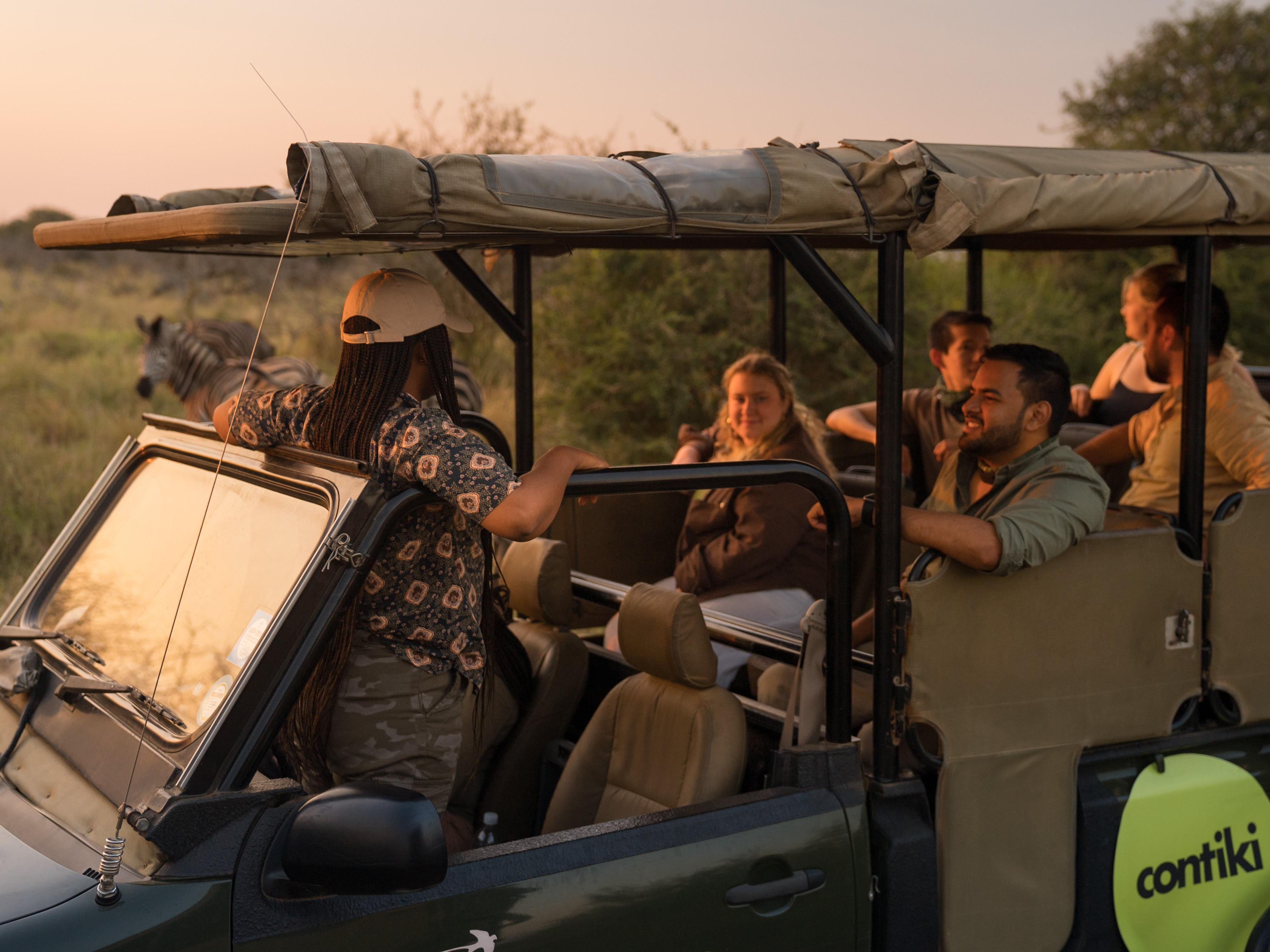
“Lightweight neutral-colored clothing like cotton is best—especially in summer,” says Hartig. “Avoid bright colored clothes for safari, which can spook animals and attract insects; khaki really is best.”
Hartig also added that you’ll want to bring layers for all types of weather to prepare yourself. Closed-toe shoes, hats, sunscreen, and insect repellent help ensure you’ll be comfortable.
Hartig also suggests bringing your own medical kit—especially in the summer—with over-the-counter painkillers, allergy medicine, eyedrops, electrolytes and vitamins.
He urges travelers to bring anti-malarial drugs if you plan to visit areas such as Kruger, Okavango, Delta, and/or East Africa. In terms of gear, you’ll absolutely want to bring binoculars and a camera with extra batteries and memory cards.
Consider Booking With A Group
“Not only is this a safer way to travel for a safari in African countries, but traveling with a group also allows shared memories of breathtaking and emotional moments you have always dreamed of out in the African bushveld,” says Hartig. “The sightings you can’t stop talking about around the campfire at the end of the day with other fellow travelers are the best parts of these experiences.”
“In my experience as a safari guide before becoming a Contiki tour manager—I have been in the industry for 12 years—I can personally say that solo travel, especially in Africa, may be at times challenging in some locations more than others,” says Hartig, adding that logistics on its own can be a nightmare at times.
“Depending on the seasons of tourism, independent travelers will have to compete with the millions of tourists that come over here for the exact reason and have to find a spot for their bookings on safaris and accommodation, and this is not always easy.”
Cash Is King
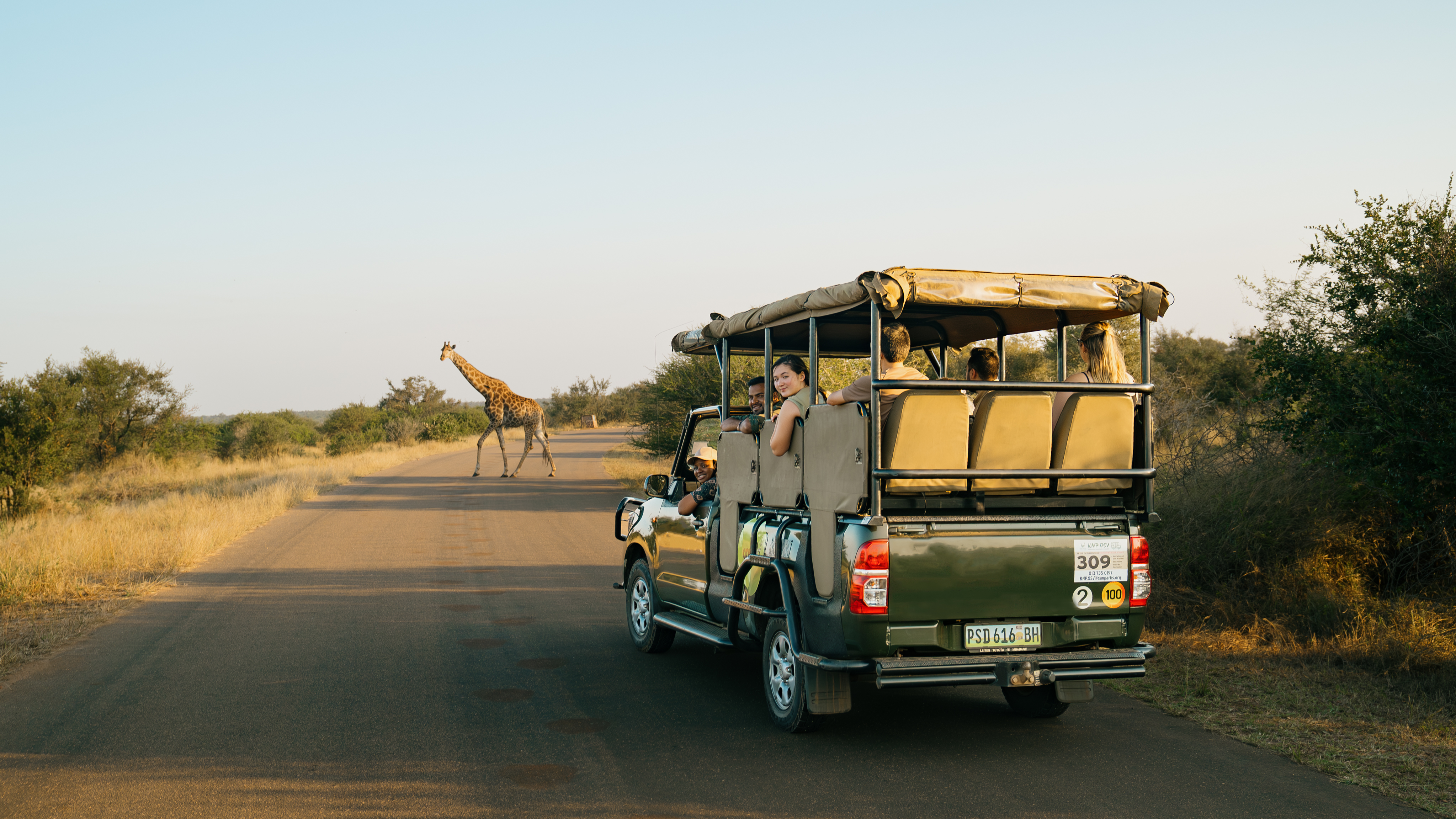
“Cash is king in Southern Africa, especially due to power issues we are having with loadshedding, which is essentially no electricity for a few scheduled hours a day throughout the country,” says Hartig.
“Even if you do have luck using your cards, cash can be used to pay for certain things, tip guides along the way, buy arts and crafts from local street vendors and also, if you’re out as a group and have a combined bill, it’s easiest with cash.”
Hartig also points out that bartering is the name of the game when buying arts and crafts from local street vendors and in markets; it’s not considered offensive or rude to barter—in fact, it’s expected. You can easily get the price down to 40 percent of the original ask, and it’s even easier to do so if you’re carrying cash.

- Entrepreneurs
- Influencers
- Signature “Boss” Series
- Tastemakers
- Brand Marketing
- Business Strategies
- Career Growth
- Company Culture
- Legal Affairs
- Startup Business
- Budgeting Tips
- House Hunting
- Investment Strategy
- Risk Management
- Beauty and Fashion
- Family Time
- House Projects
- On the Move
- Product Reviews
- Recreational Activities
- Room Styling
- Fitness Goals
- Intimate Relationships
- Healthy Eating
- Mental Wellbeing
- Spiritual Health
- Destinations
- Food and Drink
- Hotel Reviews
- Music Festivals
- Travel Tips

The Best Destinations and Tips for Memorable Safari Tours in Africa
- March 26, 2024
The dusty dirt tracks of Tanzania, the lush plains of Kenya, and the rugged rivers of Botswana—Africa’s diverse landscapes are home to some of the world’s wealthiest ecosystems that have captivated travelers for centuries.
A safari tours in Africa offers an unparalleled o pportunity to spot spectacular wildlife up close in their natural habitats. From the massive herds of wildebeests and zebras migrating across the Serengeti to the stealthy lions hunting under the cover of night in Kruger National Park, Africa teems with me morable wildlife encounters awaiting discovery.
Every trip to the continent would be complete with embarking on a safari adventure. In this guide, we will explore some of the top safari destinations across Africa and provide essential tips to help you ma ke the most of your wildlife-viewing experience and capture the thrills and magic of an African safari.
The Best Locations for Safari Tours in Africa
Africa is home to over 50 countries, each with its unique blend of landscapes, cultures, and wildlife. Ho wever, there are some destinations that stand out above the rest as must-visit locations for an unforgettable safari experience.
Located in East Africa, Tanzania boasts some of the most iconic safari destinations in the world. The Serengeti National Park , Ngorongoro Crater, and Mount Kilimanjaro are just a few of the must-see locations in this country. With its vast savannahs and diverse array of wildlife, Tanzania is the perfect destination for a classic African safari experience.
Tanzania safari tours offer the chance to witness the Great Migration, where millions of wildebeests, zebras, and other animals journey across the Serengeti in search of food and water. Visitors can also spot the Big Five (lion, elephant, leopard, rhinoceros, and cape buffalo) as well as a variety of other animals, such as giraffes, hippos, and cheetahs.
Neighboring Tanzania, Kenya, is another popular destination for safari tours in Africa that offers a diverse range of landscapes and wildlife. The world-renowned Maasai Mara National Reserve is located here and provides the opportunity to witness the Great Migration from the Kenyan side.
Visitors can also explore other national parks, such as Amboseli, Tsavo, and Sambu ru, for a chance to spot the Big Five, as well as a variety of bird species. Kenya also offers cultural experiences with its Maasai and Samburu tribes that live alongside the wildlife.
South Africa
Located at the southernmost tip of Africa, South Africa is another top safari destination known for its diverse landscapes and rich wildlife. Kruger National Park is the most famous safari destination in South Africa, offering the opportunity to spot the Big Five and other animals, such as wild dogs, zebras, an d giraffes . The country also boasts stunning coastal regions such as Cape Town and the Garden Route, which offer a unique combination of wildlife viewing opportunities with beautiful ocean views.
Botswana may not be as famous as its neighboring countries, but it is a hidden gem for safari enthusiasts. The Okavango Delta, one of the largest inland deltas in the world, is located here and offers incredible wildlife viewing opportunities with its diverse ecosystem of wetlands, grasslands, and savann ahs. Visitors can also explore Chobe National Park, known for its massive elephant herds, as well as the Makgadikgadi Pans, for a unique desert safari in Africa.
Tips for an Unforgettable Safari
To ensure your safari adventure becomes an unforgettable e xperience, here are some essential tips to keep in mind. Wildlife viewing can significantly depend on the season. Generally, the dry season is the best time for safari tours in Africa as animals tend to gather around waterholes, making them easier to spot. However, the we t season also has its advantages, as it brings out lush greenery and baby animals that are a delight to see.
It is also essential to choose your accommodation wisely. Staying at tented camps or lodges within the national parks can enhance your safari exp erience by offering you the opportunity to hear the sounds of wildlife at night and be surrounded by nature.
Another important tip is to respect the wildlife and their habitats. Always follow the rules set by your safari guide, and do not disturb or harm a ny animals for the sake of a better photo or experience. Remember, these are wild animals and should be treated with caution and respect.
Lastly, remember to immerse yourself in the experience fully. Take your time to observe and appreciate the wildlife a nd landscapes, and try to disconnect from technology as much as possible. This will allow you to capture the thrills and magic of the best safari tours in Africa.
A Once-in-a-lifetime Trip
A safari in Africa is a once-in-a-lifetime experience that offers you the chance to witness some of the world’s most iconic animals in their natural habitats. With the right destination and tips, you can make your safari adventure a truly unforgettable one . So pack your bags, grab your camera, and get ready to capture the thrills of an African safari that will stay with you forever.
Continue on this fantastic journey and explore the different cultures, cuisines, and experiences that this fascinating contine nt has to offer. From ancient landmarks to bustling cities, Africa is a diverse and vibrant continent that will leave you in awe at every turn. Start planning your safari adventure today and get ready for an unforgettable African experience.

About Author / Tamie Sheffield
Tamie Sheffield’s fear of missing out (FOMO), her passion for meeting people and exploring new places keeps her “home” on the road or in the sky! She’s the queen of the one-way ticket, a go-to travel influencer, and a savvy networker with a restless spirit to share her love of traveling. From a Pennsylvania farm girl, to a Hollywood TV host Tamie gave up the red carpet in favor of a never-ending bucket list that has inspired her to visit 125 countries.

How to Effectively Predict the Price of Bitcoin in 2025
Expo west 2024- your sneak peak into the best natural food trends.

You Might Also Like
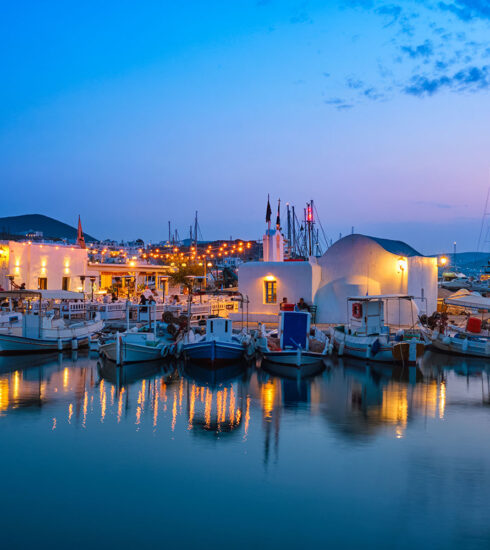
Top 5 Enchanting Villas in Naoussa, Paros for a Magical Island Stay
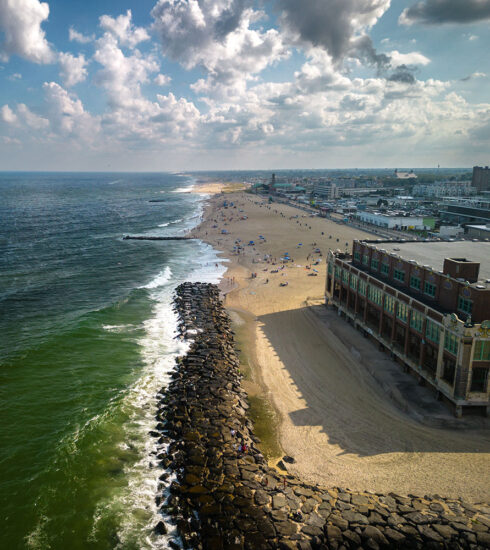
Why Living in Monmouth County is the Perfect Beach Town For Millennials

Top Guide To Traveling Through Italy On The Orient Express La Dolce Vita
Start typing and press Enter to search
Videos show terrifying moment bull elephant lifts safari truck
The safari guide who warded off the elephant was praised by wildlife experts.
Frightened tourists can be seen ducking between seats during a tense standoff between a bull elephant and a safari truck in Pilanesberg National Park, South Africa.
Videos of Monday’s incident show a bull elephant lifting the 22-seat truck up several times with his trunk before letting it drop. The driver can be heard calling for the elephant to "go away" and slapping his hand against the side of the truck to scare away the animal.
Hendry Blom, a bystander who caught the incident on camera, told ABC News: "We were definitely scared, especially for the people in the truck because we thought they might die."
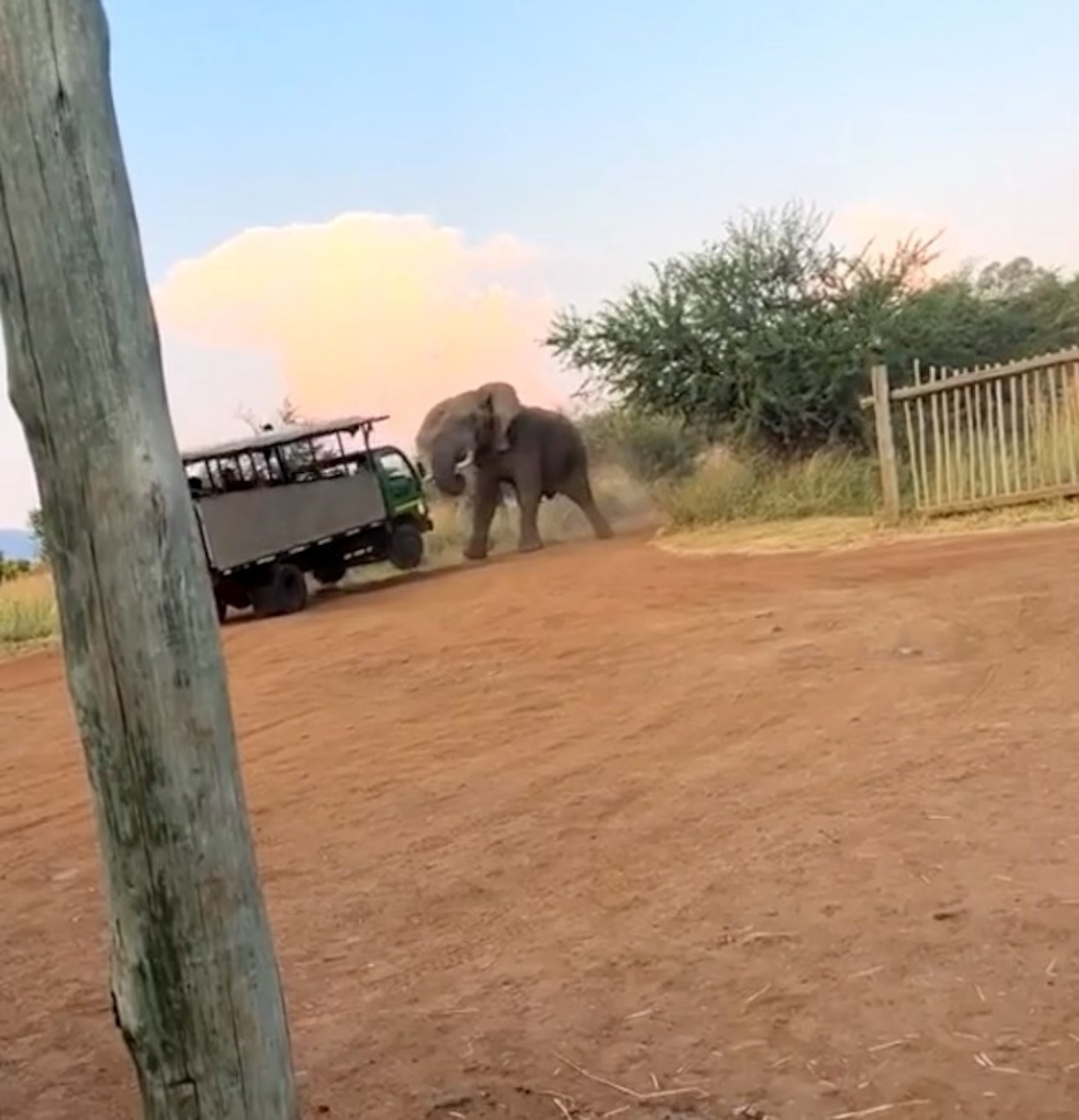
Another video from inside the truck shows frightened tourists cowering on the floor of the vehicle. One woman can be heard praying as the elephant approaches.
MORE: Global warming could increase risk of human-elephant conflict, researchers say
Poncho Mogodiri, field operations manager of Mankwe Game Trackers, the tour company involved in the incident, told ABC News the guide and guests were in animal hide when the bull elephant approached. "Hides provide you with the rare opportunity to unobtrusively view the wildlife and birds at close quarters," according to Pilanesberg National Park.
Mogodiri said some of the tourists "came too close to the elephant to take pictures and he started getting aggressive."
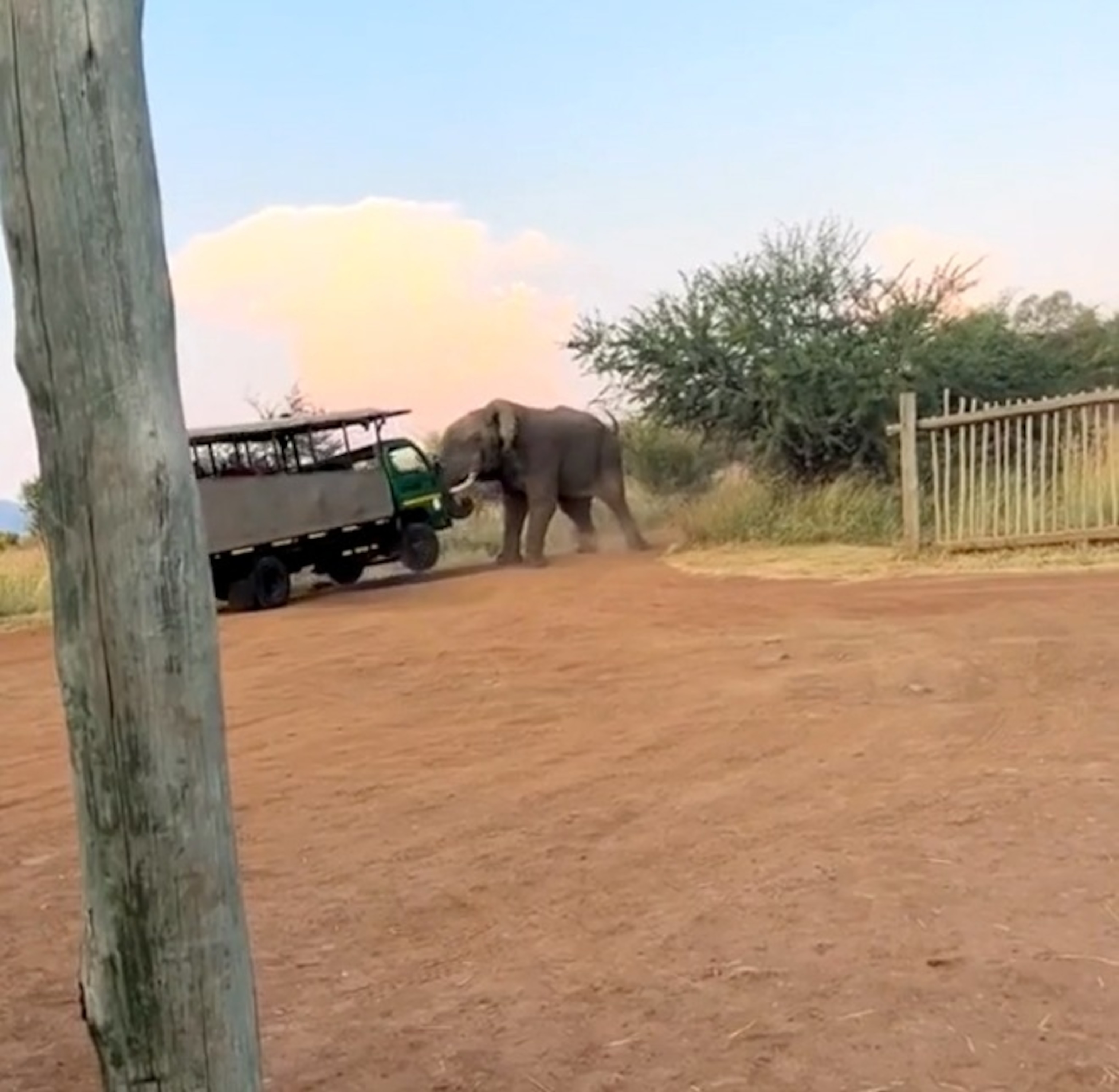
The guide's actions -- revving the engine, slamming car doors and shouting to ward the elephant away -- have been widely praised by wildlife experts. Mogodiri said the guide reacted "by the book."
"Anyone that’s worked with elephants will tell you when a bull like that charges, you don’t turn and run, you need to make as much noise and stand your ground," said Ron Magill, communications director at Zoo Miami.
MORE: 80-year-old man pleads guilty to genetically engineering giant hybrid sheep in 'audacious scheme,' DOJ announces
Mogodiri confirmed the bull was in musth, or when an elephant "experiences an increase in reproductive hormones and becomes highly aggressive," according to the Pilanesberg National Park website.
No one was injured in the incident, though Mankwe Game Trackers told ABC News one family had been offered counseling after being left "extremely rattled." The Pilanesberg National Park said it will be conducting an internal investigation of the incident.
Related Topics
Top stories.

Trump must 'immediately desist' from targeting judge's daughter, prosecutors say
- 2 hours ago

Total solar eclipse 2024: Path, time and the best places to view
- Mar 29, 5:04 AM

Tennessee politicians strip historically Black university of its board
- Mar 28, 6:20 PM

5 dead and over 100 hospitalized from recalled Japanese health supplements
- Mar 29, 3:11 AM

For years she thought her son had died of an overdose. The police video changed all that
- Mar 29, 6:03 AM
ABC News Live
24/7 coverage of breaking news and live events
- WEATHER ALERT Winter Storm Warning Full Story
- WEATHER ALERT High Surf Advisory Full Story
- WEATHER ALERT Flood Watch Full Story
- Track the rain with the LIVE Megadoppler 7000 HD Full Story
- PETS & ANIMALS
Aggressive elephant lifts safari car filled with tourists into the air in South Africa

A frightening moment for a group of tourists in South Africa was caught on camera when an elephant approached their safari truck and partially lifted it up into the air.
The incident happened March 18 in Pilanesberg National Park, northwest of Johannesburg.
The group of local South Africans were touring the area when they got too close to the elephant bull to take pictures. That's when the large animal became aggressive and approached the safari truck.
Video from the scene shows the elephant lifting the front portion of the vehicle with its tusks before letting it drop to the ground. Screaming can be heard in the video.
The guide backed up the vehicle and slammed his hand against what appears to be the door in attempt to convince the elephant to stop.
The tour operator Mankwe Game Trackers told ABC News they understand the elephant was in musth, a periodic state of the bull elephant characterized by aggressive behavior and a surge of testosterone levels.
Nobody was hurt in the encounter, but the park offered counseling for those who were the most rattled.
Related Topics
- SOUTH AFRICA
- SOUTH AFRICA TOURISM
- CAUGHT ON VIDEO
Top Stories

Storm timeline: Here's when it will rain in SoCal
- 3 hours ago

Noah Cuatro's parents plead no contest to murder of Palmdale boy
- 2 hours ago

NorCal Girl Scouts scammed with fake $100 bills for cookies, feds say

Our America: A Queen's Journey | Watch the full episode

$4 million settlement reached in fatal San Bernardino police shooting
- 34 minutes ago
Arnold Schwarzenegger reveals he had pacemaker surgery recently
Landslide concerns grow as another storm heads to SoCal
Hawthorne police take homicide suspect into custody following standoff

Animals Around the Globe
10 Best African Countries for Safari
Posted: December 19, 2023 | Last updated: December 19, 2023
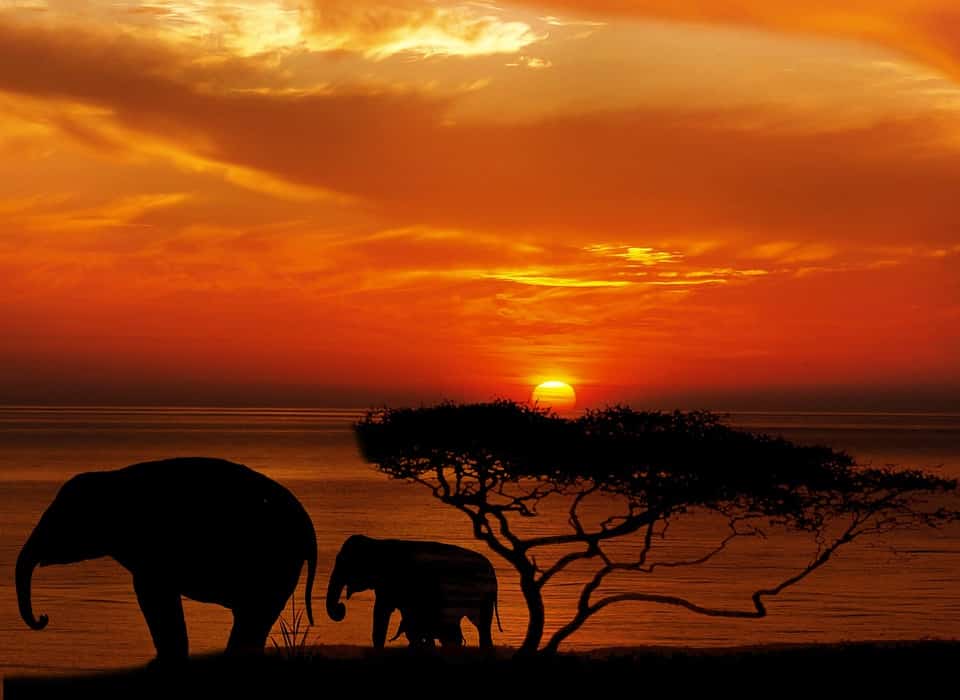
#1 Botswana
Recommended Tours:
Thus, poachers are seen as enemies of the people. As a result, Botswana has come into view as Africa's most sought-after ecotourism destination. Starting from the Chobe National Park to the Moremi Nature Reserve, you'll be able to witness numerous gems all around the country.
Back in 2014, Botswana widely banned the hunting of wild animals and implemented strict laws which are still in practice. The country resumes its zero-tolerance for poaching and their very own environmental minister, Tshekedi Khama, has even launched a shoot-to-kill policy for poachers.
Botswana, with its wildlife conservation and natural parks, is a haven for nature lovers. It is currently in the top 5, as its approach to the protection and conservation of wildlife is worth the praise. As a country, it is very forward-thinking, some may even call it aggressively forward-thinking when it comes to its preservation and anti-poaching laws.
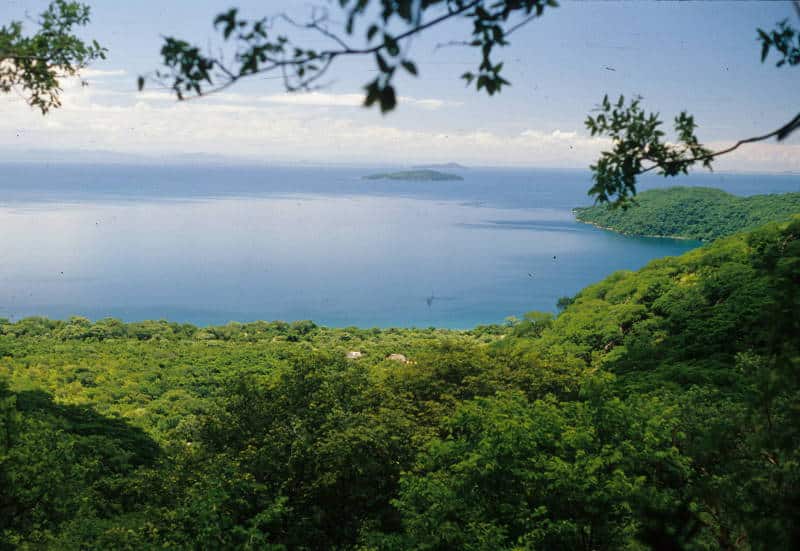
Its fertile land provides a safe and comforting home to around 200 mammal species. This includes elephants, hippos, monkeys and so much more. Along with 650 bird species and 5,500 plants. Even though the country is still underdeveloped and most of the population live in rural households, its national parks, and sight-seeing destinations are on the top 10 of our lists.
Even though many would face some difficulties in locating Malawi on a map, given how tiny it is, the country is home to the world-renowned Lake Malawi National Park. This is practically one-third of the country and is the most biodiverse lake in the world.
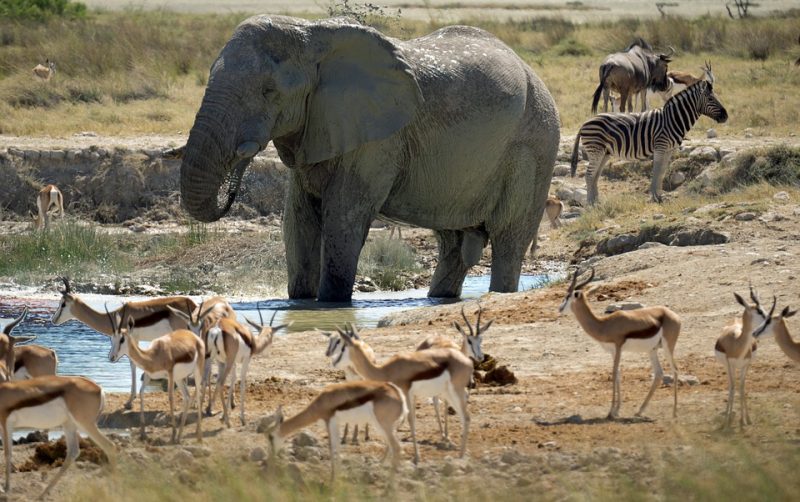
Most of the land in Namibia is occupied by the Kalahari and Namib Deserts. Along with that, the country also has 12 national parks and many other areas which are protected. So, if you go there for a safari, you'll have many rich areas to see and explore.
When it comes to countries with the least amount of population, Namibia is one of them. Which proves to be a good thing for nature. This is because most of the land in Namibia is still unspoiled by human filth or any sort of development, giving nature a chance to breathe.
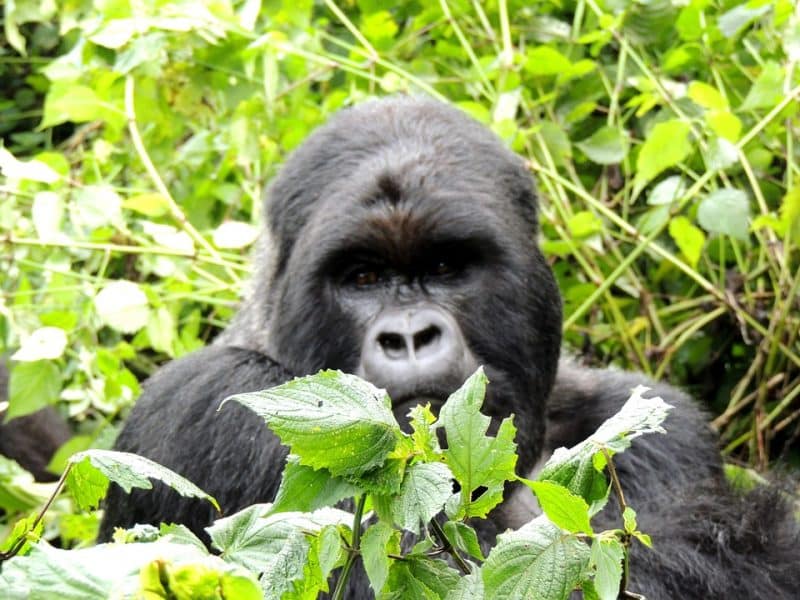
In the country's Volcanoes National Park, you'll find 10 habituated gorilla families. Groups of 8 trekkers can visit them for one hour per day. But that's enough to get the best African safari experience. And as a nature lover, you'll enjoy the experience to the max.
If you've been around for some time, you'll be familiar with Rwanda's mountain gorillas. They were famously broadcasted and their fight for survival was shown on National Geographic . This was all thanks to the late Dian Fossey back in the 1970s who advocated for the rights of these mountain gorillas throughout her life.
Considering the tragic history surrounding the mass genocide of the people of Rwanda back in 1994, it's truly a blessing what the country has achieved in the past 25 years. There have been countless investments in infrastructure. This has resulted in the country being a very fast-growing destination for ecotourism.
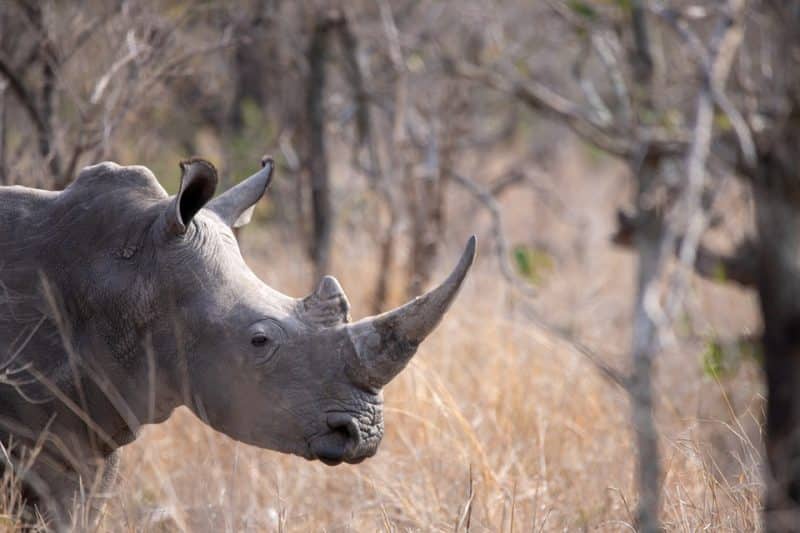
#6 South Africa
But given all the advantages, it's safe to conclude that South Africa also suffers from over-tourism. I mean, if you have so many great attractions, people will flock towards it. Chances are that you'll find yourself in the middle of dozens of unruly visitors who are not too keen on obeying the rules. This occurs mostly during the peak seasons.
Annually, the country has one million visitors. Its biggest attraction is the Kruger National Park with its enrichment in biodiversity. Visitors there also have the liberty to self-drive, thus, getting a first-person private but superb experience.
For some time now, South Africa has been climbing the charts to become one of the most popular destinations for African safaris. Given its location, South Africa is a very convenient and cheap destination for people from the United States. Besides that, the country also boasts a well-developed infrastructure which makes it perfect for luxury travelers as well.
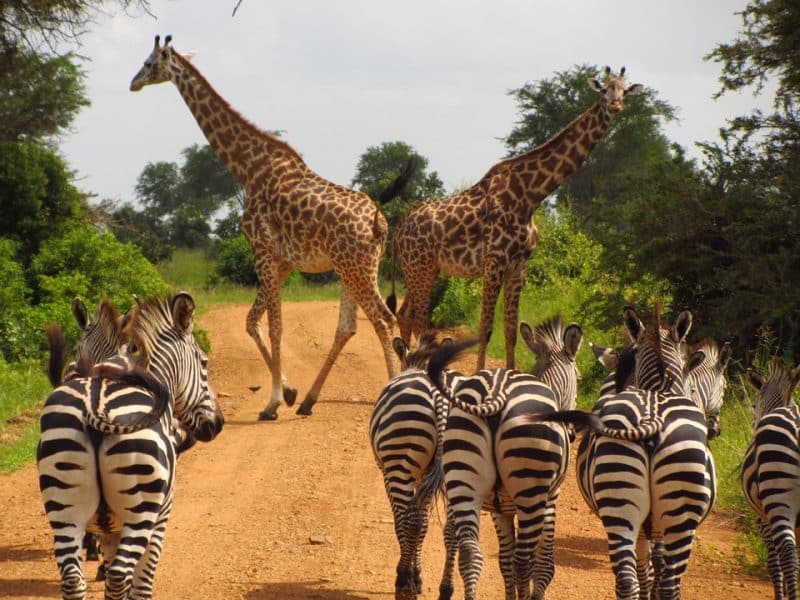
#7 Tanzania
One of the most popular locations would be the Ngorongoro Conservation Area. The country is also a haven for 1100 different bird species. It's no wonder that Tanzania gets this much rep. Especially when the country boasts so many wonders.
We talked about Kenya being the top destination for Safari. Now Tanzania here takes second place in being the continent's most popular safari destination. And why shouldn't it? The country has 16 national parks and an extraordinary amount of wealth and wildlife wonders for the people to witness.
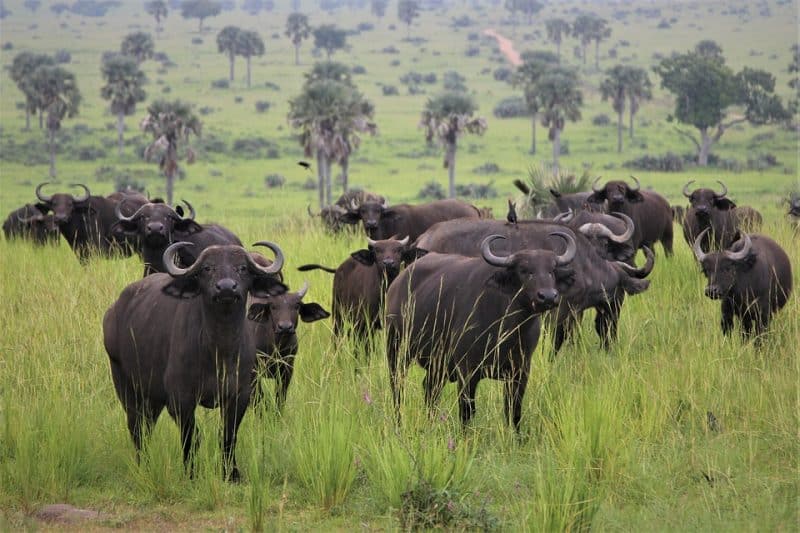
Some of its natural attractions include housing the highest mountain range in Africa. It also has the world's largest free-standing volcano and the second-largest freshwater lake. With its 30 national parks and other wildlife reserves, Uganda boasts many more sanctuaries which are worth the visit. Especially if you're a lover of nature and wildlife.
Often called "The Pearl of Africa", Uganda is certainly a great pick for an African safari. Its reputation as being one of the best ecotourism destinations comes from the country's natural attractions and wildlife.
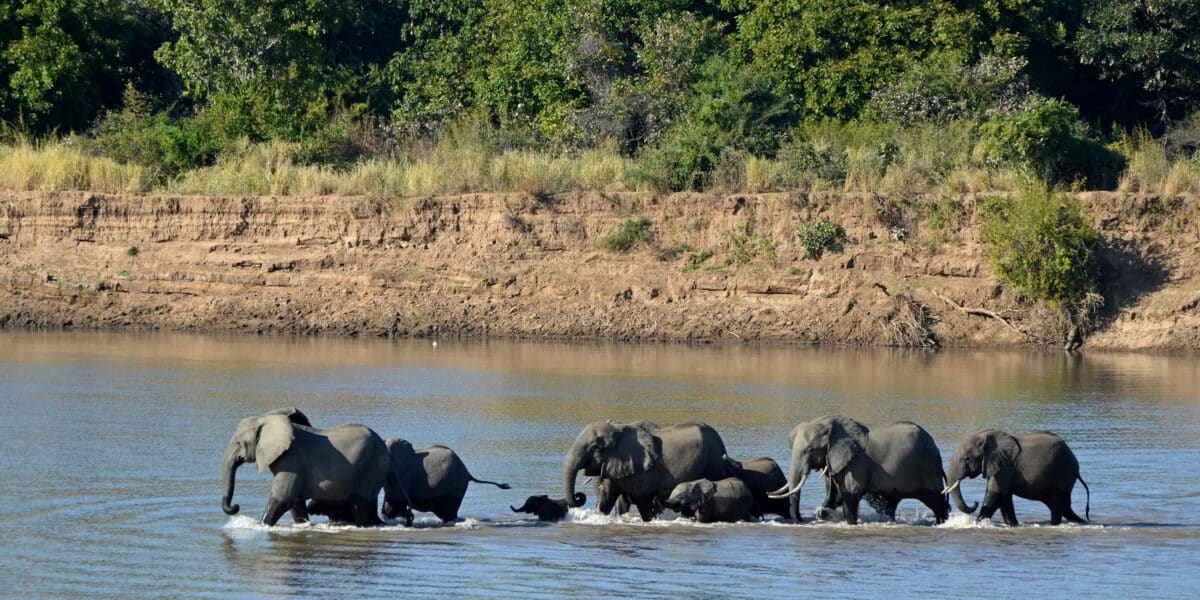
Out of its 20 national parks, the Mosi-oa-Tunya National Park is home to many wildlife animals such as African elephants, Angolan giraffes, Cape buffalo, etc. Other than that, there are many private ownerships of National parks, notably the Kasanka National Park which is near the basin of Lake Bangweulu. It's a safe place where visitors can see 400 different avian species.
Zambia may be a bit far down the list of popular destinations for your African safari, but many consider it to be a destination for diversified and immersive safari experiences, and making a notable feature on our 10 Best African Countries for Safari guide. The country is steadily focusing on conservation as their president has shown a keen interest and is working on building the nation's economy as well as the infrastructure.
More for You
MSNBC, NBC leaders were caught flat-footed, out of touch with staff on Ronna McDaniel fiasco: Insider
How Long Do Eggs Last?
This trans man transitioned, detransitioned then transitioned again. What he wants you to know.
Russian and Chinese Navy Ships Enter East China Sea
I worked for Beyoncé for a year. She wasn't a diva and wasn't passive — it was a master class in executing a creative vision
The 10 Healthiest Types of Alcohol to Drink, According to a Registered Dietitian
Oscar-Winning Actor Louis Gossett Jr. Has Passed Away
This is the easiest way to peel hard-boiled eggs
Federal judge rules in favor of Oregon church in key First Amendment lawsuit against city
15 Teacup Dog Breeds That Are Tiny and Adorable
Russian Su-27 Hit By Friendly Fire Plunges Into The Black Sea In Flames
What Vitamins Should Not Be Taken Together?
McDonald’s brings beloved breakfast sandwich back to select locations
‘NCIS,' ‘Shameless' Actor Nolan Freeman Arrested For Allegedly Storming The Capitol On January 6
Are banks, post offices, UPS and FedEx open on Good Friday? Here's what to know
Letitia James' Assistant May Face Charge of Criminal Tampering
Chiefs' Andy Reid impresses with perfect ceremonial first pitch at Royals' Opening Day
11 Facts You Should Know About Hard-Boiled Eggs
Bucket List Trip: The Most Iconic Landmark in Each US State
Are There Any B-36 Bombers Still Flying?

IMAGES
VIDEO
COMMENTS
Yes, it is customary to tip at hotels in South Africa for various services such as housekeeping, luggage handling, and room service. For housekeeping staff, leaving a tip of ZAR20-50 per day is recommended. For luggage handlers, a tip of ZAR10-20 per bag is appropriate, while room service staff can receive a tip of around 10% of the total bill ...
All you need to know about tipping on safari in Africa, including how much to budget for and how staff gratuities are split. Int Toll Free Numbers 1-866-438-8677. 1-888-360-2392; 1-800-619-441; ... A Beginner's Guide to a South Africa Safari. Travel Article. The Ultimate Kenya Safari Travel Guide.
The standard practice in South Africa is to tip the tour guide and coach driver at the end of your tour. If you are doing a group tour, then we recommend tipping anything from R20 to R50 per person. ... Safaris Guide $ 10-15 Per day per person. 2) Porters to your room $ 2-5 3) Waiters $ 3-5 per day. August 29, 2020 at 10:55 am . MOllel says ...
Specifically, when on a South Africa safari you usually tip the guide separately and the rest of the staff together. It is unusual to tip a camp manager. When to tip ... Most camps and safari lodges in South Africa have a tip box of some description. Sometimes the tip box will be for all the staff; sometimes it'll be for the staff excluding ...
Guide To Tipping In South Africa. Car guards, petrol attendants, safari rangers and trackers, and other service industry workers. ... Average tip: Three-day safari at R100-R250 per couple per night Something to consider: It's generally accepted that you tip the ranger and tracker separately. At luxury lodges tips for your ranger and tracker ...
How much to tip in Tanzania: We recommend tipping +- 8-10 USD per guest per day for a group guide, about 5-10 USD per guest per day for a safari chef, +- 2 USD per guest per day for the general staff and +- 3USD per city transfer. Tipping Kilimanjaro: Tipping while climbing Kilimanjaro is usually done as a group rather than per person.
On a South Africa safari, the preferred currency is South African Rand. In Namibia both Namibian Dollars (NAD) and South African Rand (ZAR) are acceptable as they have the same exchange rate. Some safari lodges or camps may provide specific recommendations or guidelines regarding tipping.
How Much You Should Tip on African Safari. Tipping practices often mirror visitors' cultural norms. Americans and Canadians, known for their generosity, generally offer more substantial tips, while Europeans typically fall within a moderate range. Travelers from South America and the Far East might have different expectations due to varying ...
Our South Africa tipping etiquette guide for your travels with top tips on tipping in South Africa. Toll Free Numbers: 1-888-414-6513 -808-189-1052, ... A definitive African safari tipping guide for travelers unsure of tipping etiquette in Africa. In this guide to tipping on safari in Africa, we'll tell you who to tip, and how much to tip ...
Best guide for tipping norms on Africa safaris. Toll Free Numbers: 1-888-414-6513 -808-189-1052, All Other Countries - +27 21 791 0878. ... Tipping on Safari in South Africa & Southern African Countries. Southern Africa is largely governed by the bloc's largest economy, South Africa. The value of the Eswatini Emalangeni, Lesotho Maloti, and ...
Butler. $5-$10 per day. Transfer drivers. $5 per journey. When it comes to timing, it's generally best to tip at the end of your safari on your last day at camp. To tip individuals like your guide, tracker or butler, it's as easy as handing over the tip when you say goodbye to them. When tipping camp staff, some safari companies have tip ...
Rwanda. In Cities: 10% of the bill at restaurants. Driver Guide in Cities: $20 per couple per day. Trekking Porters: $20 per porter per trek. Trekking Guide and Trackers: $50 per couple per day. Butlers: $15 per couple per day. Lodge Staff: $20 per couple per day. It is important to note that these tipping guidelines are just that - guidelines.
The Big Five (lion, leopard, elephant, rhino and buffalo) are the five African safari animals deemed the most dangerous to hunt by colonial-era hunters in the late 19th- and early 20th-century. Yes, it's a useful marketing tool. And yes, many South Africa safari-goers (and companies) are still in their thrall.
For instance, in South Africa, tipping is deeply ingrained in the culture, especially within the service and hospitality industry. Workers often rely heavily on tips to support their families. However, different countries may have different expectations. ... Your Guide to Tipping on Safari. Read More. December 6, 2023 Safari North West Province ...
Most lodges will have communal tip box where you can 'post' your total tip as you check out, and all the tip money is then pooled and shared between the relevant staff members - an acceptable tip level is about ZAR 100 per room per day. Obviously, tipping is completely optional and what you leave is totally at your own discretion - we would ...
At budget hotels, tips for housekeeping are not expected but are nevertheless always welcome. As a general guide, tip: $1.00 per bag for porters. $1.00-$2.00 per day for hotel staff. $3.00-$5.00 per day for personal butlers, trackers, drivers. $10.00 per day for professional guides and/or drivers on your trip.
A good friend from South Africa first gave me this safari tip. He suggested that 4 days is typically enough time for the majority of people on safari. At first, I was surprised, because I had originally envisioned a week-long safari, and was worried that the safari deserved more time, or that staying only four days would feel rushed.
Tipping your guide in South Africa based on the knowledge and expertise they displayed is a good start. For the general staff at camps and lodges, shared tips work well. You can tip staff in the South African Rand. Group game drive or walking tour per day: US$9-15; Private game drives and guide per day: US$10-17; General staff per day, per ...
1 How much to tip in South Africa A guide to gratuities in the Rainbow Nation. 1.1 Understanding the tipping culture in South Africa. ... It is recommended to tip the safari guide, who will accompany you on your game drives and provide valuable insights into the wildlife and environment. A tip of around 10-15% of the total cost of your stay is ...
First Time Safari Tip #3: Now! Now! Anyone familiar with "Africa time" will understand that there are several meanings to the word now. There is "now," "just now," and "now now." "Now" could mean anywhere from five minutes to two months later. "Just now" means in the next hour or so.
City Tours: Half-Day Guide. You will likely go on at least one half-day tour with a guide when exploring our beautiful Africa. They will drive you around and accompany you to all the incredible attractions you visit. For a half-day guide, we recommend tipping $10-15 (R190-285 or €9-14) per couple.
What Is A Reasonable Tip In South Africa. Tipping customs in South Africa are similar to many other countries, and what constitutes a reasonable tip can vary based on the level of service, the type of establishment, and personal preferences. If you are still determining the amount, always aim for 10% or higher for any industry in South Africa.
Pack Appropriately. You've probably seen folks on social media posing from Africa in ripstop and khaki—and there's a good reason safari travelers opt for light-colored clothing. (Contiki ...
South Africa. Located at the southernmost tip of Africa, South Africa is another top safari destination known for its diverse landscapes and rich wildlife. Kruger National Park is the most famous safari destination in South Africa, offering the opportunity to spot the Big Five and other animals, such as wild dogs, zebras, an d giraffes. The ...
A large bull elephant appears to attack a safari truck at Pilanesberg National Park, March 18, 2024, in South Africa. "The Field Guides Association of SA points out the video offers little context ...
My first more affordable trip, a lodge in South Africa with separate safari excursions, cost me about $1,100. My second, an all-inclusive lodge in Tanzania, cost me about $4,000 after a 50% off deal.
Top 5 Choice Destinations for Your Africa Safari Trip . Here are our top five African wildlife safari destinations to help you plan your trip. Kenya's Maasai Mara National Reserve
A frightening moment for a group of tourists in South Africa was caught on camera when an elephant approached their safari truck and partially lifted it up into the air. The incident happened ...
If you're craving the ultimate safari adventure, look no further. We've meticulously curated the ultimate guide to unveil the 10 Best African Countries for Safari, designed especially for ...